ELK, Log Management, Resources
21 min read
Last updated:
When it comes to comparing all of the best solutions for log management and analysis it can be incredibly difficult to compare key features and pricing per annum side by side to see what solutions you should consider trialling.
With many solution providers increasingly hiding the full cost of their service behind sign up screens and salespeople, we wanted to bring you the ultimate open guide to log management providers to give you a clear picture of all of your available options for ensuring complete observability, monitoring and management of your data.
Contents
- 1. Logit.io
- 2. Scalyr
- 3. Splunk
- 4. Datadog
- 5. Sumo Logic
- 6 Middleware
- 7. Retrace by Stackify
- 8. Logz.io
- 9. Log Harvestor
- 10. Backtrace
- 11. Dockter
- 12. Elysium Analytics
- 13. Humio
- 14. Bulletlog
- 15. Zebrium
- 16. Netwitness
- 17. Exambeam Log Management
- 18. ALog ConVerter
- 19. Motadata Log Management
- 20. CloudPhysics
- 21. Corner Bowl Event Log Manager
- 22. Blesk
- 23. Wrble
- 24. i-Vertix
- 25. LogFusion Pro
- 26. Logiq.ai
- 27. Papertrail
- 28. Logtail
- 29. Graylog
- 30. dbForge Transaction Log
- 31. Devo
- 32. Exceptionless
- 33. FrameFlow
- 34. Observe
- 35. LogRhythm
- 36. Logary
- 37. Loggly
- 38. Cloudlytics
- 39. SenseLogs
- 40. Syslog-ng
- 41. XpoLog
- 42. Webspy Vantage
- 43. SolarWinds Log Analyzer
- 44. Goaccess
- 45. Seagence
- 46. Rookout
- 47. Rapid7
- 48. ERA Search
- 49. Chaossearch
- 50. ObservIQ
- 51. Apex Software
- 52. LogDNA
- 53. New Relic
- 54. WhatsUp Gold
- 55. Clone Systems
- 56. Snare Solutions
- 57. LanScopeCat
- 58. InTrust
- 59. LogicMonitor
- 60. LogPoint
- Summary Table
1. Logit.io
 The Logit.io log management platform enables SRE teams at leading companies such as Maersk, IBM, Murphy Oil & Nikon to ensure complete observability of their operations and strengthen their security and alerting abilities.
The Logit.io log management platform enables SRE teams at leading companies such as Maersk, IBM, Murphy Oil & Nikon to ensure complete observability of their operations and strengthen their security and alerting abilities.
The platform is built with high scalability in mind and saves engineers hundreds of hours every month, allowing them to get back to deploying code and transforming businesses faster as a result.
Alongside comprehensive log management, the platform is suitable for a variety of additional use cases including but not limited to; SIEM, APM, container monitoring, & deep metrics management.
The Logit.io platform also includes the following fully managed open source software: ELK, OpenSearch & Grafana dashboards.
With our rapid onboarding, you can begin viewing your logs in Logit.io in as little as 5 minutes. Read our documentation articles such as Getting Started with Log Management to send sample logs to the platform or read our how-to blog articles to understand more about a specific source (such as Python and Serilog) and send this data to Logit.io.
Key Features:
- Unlimited users
- No vendor lock-in
- No data egress fees
- Overusage protection
- Easy to understand billing
- Autoscaling open platform
- Fully managed upgrade paths
- Two factor authentication (2FA)
- Enterprise uptime SLAs available to 99.999%
- Highly available data centres in EU, UK and US regions
- Approved by GOV.UK as a Platform As A Service (PaaS)
- Hundreds of integrations
- Hot, warm, cold architecture with automated Elastic index management
- Authentication options including SSO, SAML, Google, Azure, Github, Email and more
Unlock complete visibility with hosted ELK, Grafana, and Prometheus-backed Observability
Start Free Trial2. Scalyr
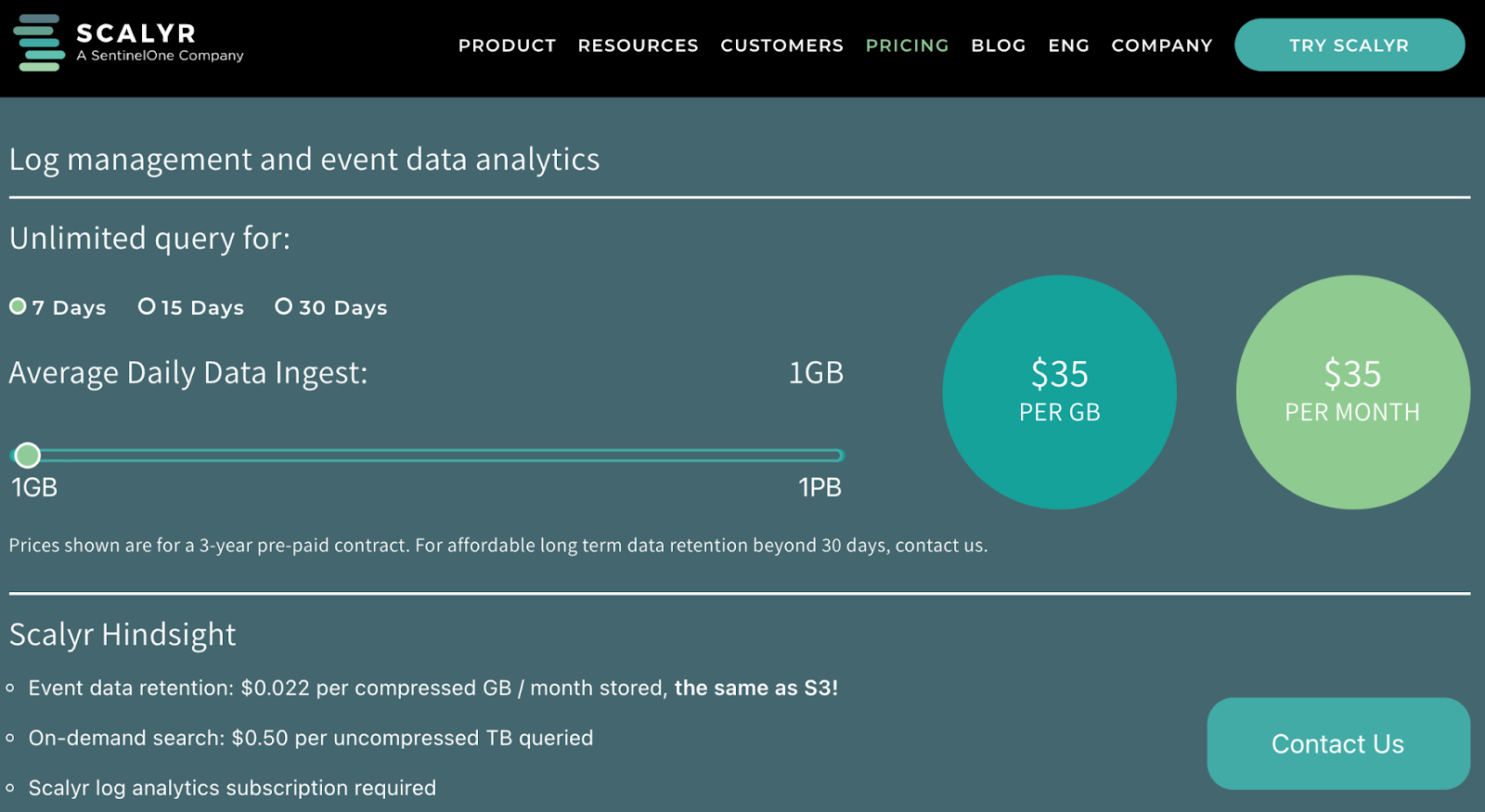 Scalyr’s integrated service platform is built to allow engineers to process terabytes of data rapidly for root cause analysis and error resolution. Customers may have to watch out for the platform's tendency to use automated billing. If you go over your contracted data limits unexpectedly the cost associated with exceeding your data limits will be added by default to your bill for that month.
Scalyr’s integrated service platform is built to allow engineers to process terabytes of data rapidly for root cause analysis and error resolution. Customers may have to watch out for the platform's tendency to use automated billing. If you go over your contracted data limits unexpectedly the cost associated with exceeding your data limits will be added by default to your bill for that month.
A solution that offers overusage limits as standard (such as Logit.io) would provide more of a safeguard against being overcharged for an unexpected data spike.
Key Features:
- No query language expertise required
- Parallel cloud compute infrastructure
- NoSQL columnar database.
- Metrics analysis
- Fast log search
3. Splunk
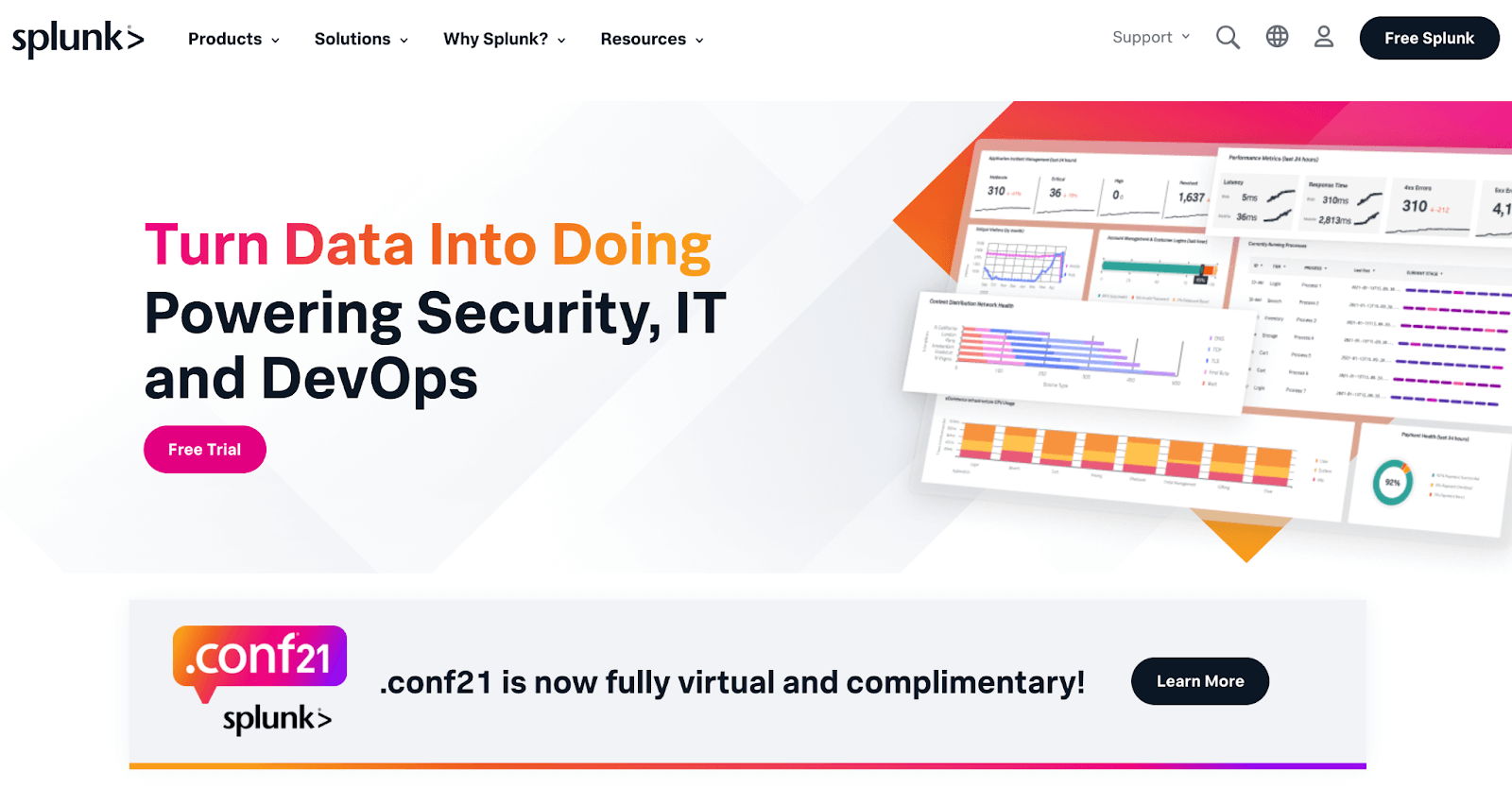 Splunk not only provides log management as a service but also offers SIEM primarily for enterprise users. You can find out more about what is SIEM here. Their platform is well known among engineers for its use for large scale projects (for example, organisations that have to manage over 200,000 devices).
Splunk not only provides log management as a service but also offers SIEM primarily for enterprise users. You can find out more about what is SIEM here. Their platform is well known among engineers for its use for large scale projects (for example, organisations that have to manage over 200,000 devices).
In terms of pricing, some estimates that were recently discussed on a community board for the platform said that $770 per ingested GB per month is a ballpark figure which gives you an idea of this cost for using this platform (not including any minimum ingestion requirements).
Key Features:
- Infrastructure monitoring
- Collect and index data
- Analyse and monitor
- Application delivery
- Compliance
- Alerts
4. Datadog
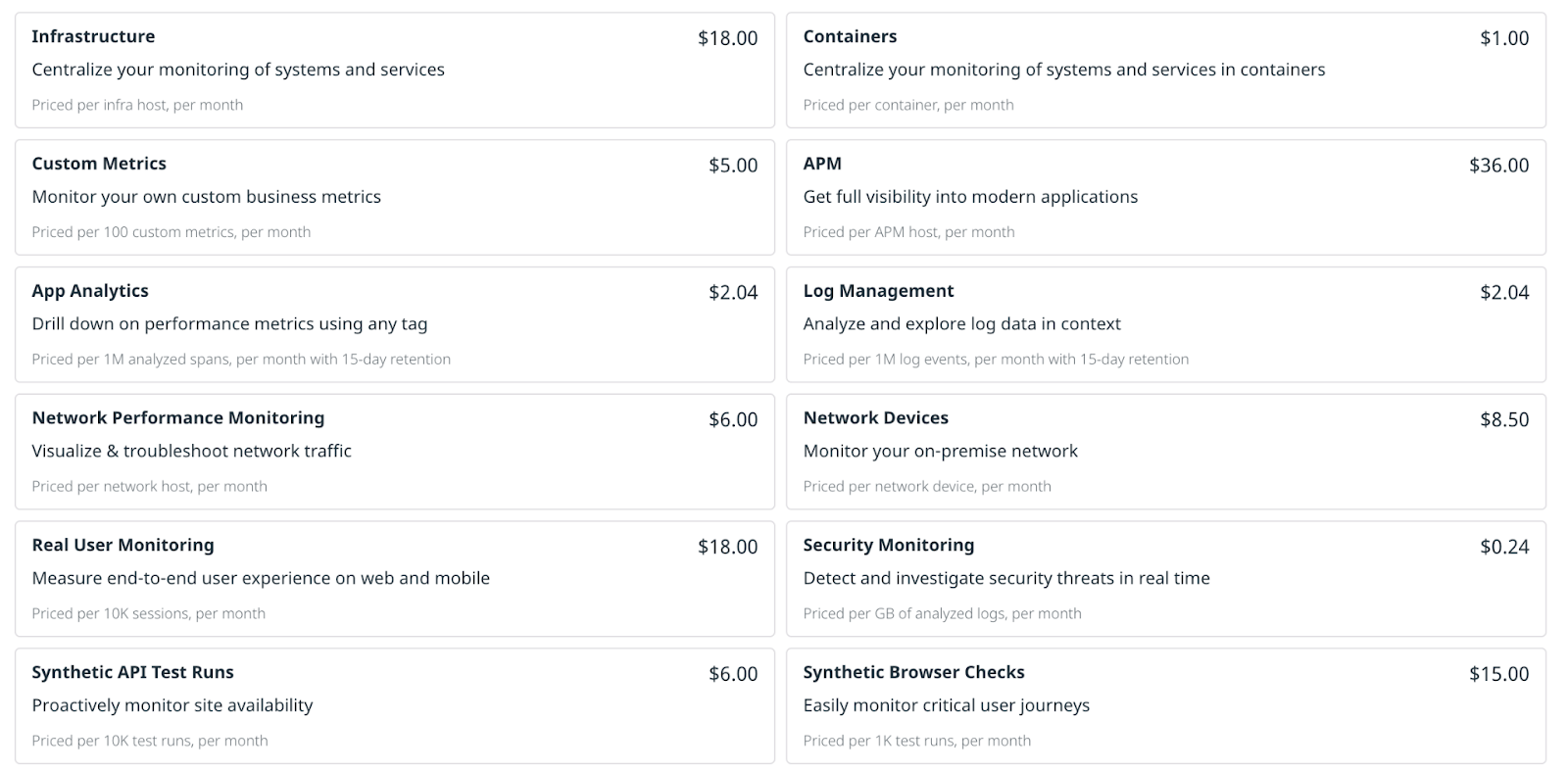 Datadog's log management solution allows users to decouple log ingestion from indexing for effective parsing, archiving and monitoring. The solution also includes metrics management, application analysis, synthetics monitoring and an additional monitoring service for on-premise role-based devices.
Datadog's log management solution allows users to decouple log ingestion from indexing for effective parsing, archiving and monitoring. The solution also includes metrics management, application analysis, synthetics monitoring and an additional monitoring service for on-premise role-based devices.
Datadog's APM users rate the platform highly for its ability to collect and ingest many different data sources as well as its excessive number of data points which inform intuitive dashboard generation.
Key Features:
- Continuous profiler
- Session replay
- CI visibility
- Serverless
- Notebooks
- Alerting
If you are interested in seeing more solutions like Datadog then why not read our guide comparing all of Datadog's competitors?
5. Sumo Logic
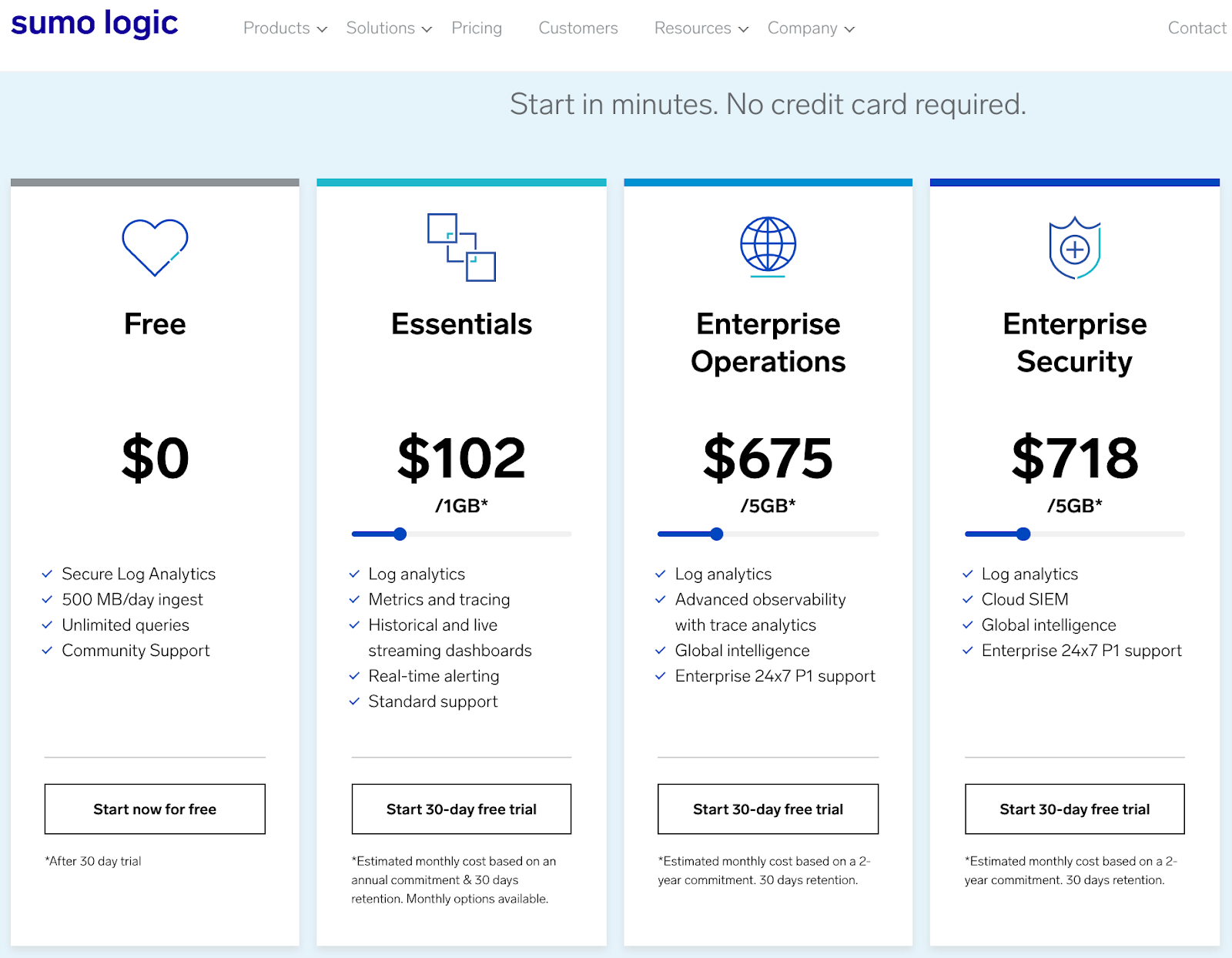 If a unified platform is required for analysing your metrics and logs then Sumo Logic's observability solution may be a good fit for this particular use case. Sumo Logic customers cite the main benefits of this tool being its strong querying language, scheduled queries and support for email alerts as well as Webhooks.
One drawback that was mentioned is data ingestion can be somewhat delayed by up to five minutes.
If a unified platform is required for analysing your metrics and logs then Sumo Logic's observability solution may be a good fit for this particular use case. Sumo Logic customers cite the main benefits of this tool being its strong querying language, scheduled queries and support for email alerts as well as Webhooks.
One drawback that was mentioned is data ingestion can be somewhat delayed by up to five minutes.
Key Features:
- Unlimited queries
- Live streaming
- Log analytics
- 24x7 support
- Tracing
- Alerts
- SIEM
6 Middleware

As a full-stack observability platform, Middleware helps developers to collect, monitor, and analyse log data from applications, cloud services, and on-premises systems in real-time and subsequently aid them in troubleshooting performance and security issues before they affect users.
In terms of pricing, Middleware offers a Free Forever Developer Account that grants access to all features within monthly limits. For paid users, log monitoring costs $0.3 per 1 GB/month for up to 10 GB logs.
Key Features:
- Real-time log collection
- Correlation with other telemetry data like metrics, traces, and events.
- Custom alerts and notifications
- Complete control over data ingestion.
- Over 100+ predefined integrations.
- Single-script Installation
- Lightweight Agent
7. Retrace by Stackify
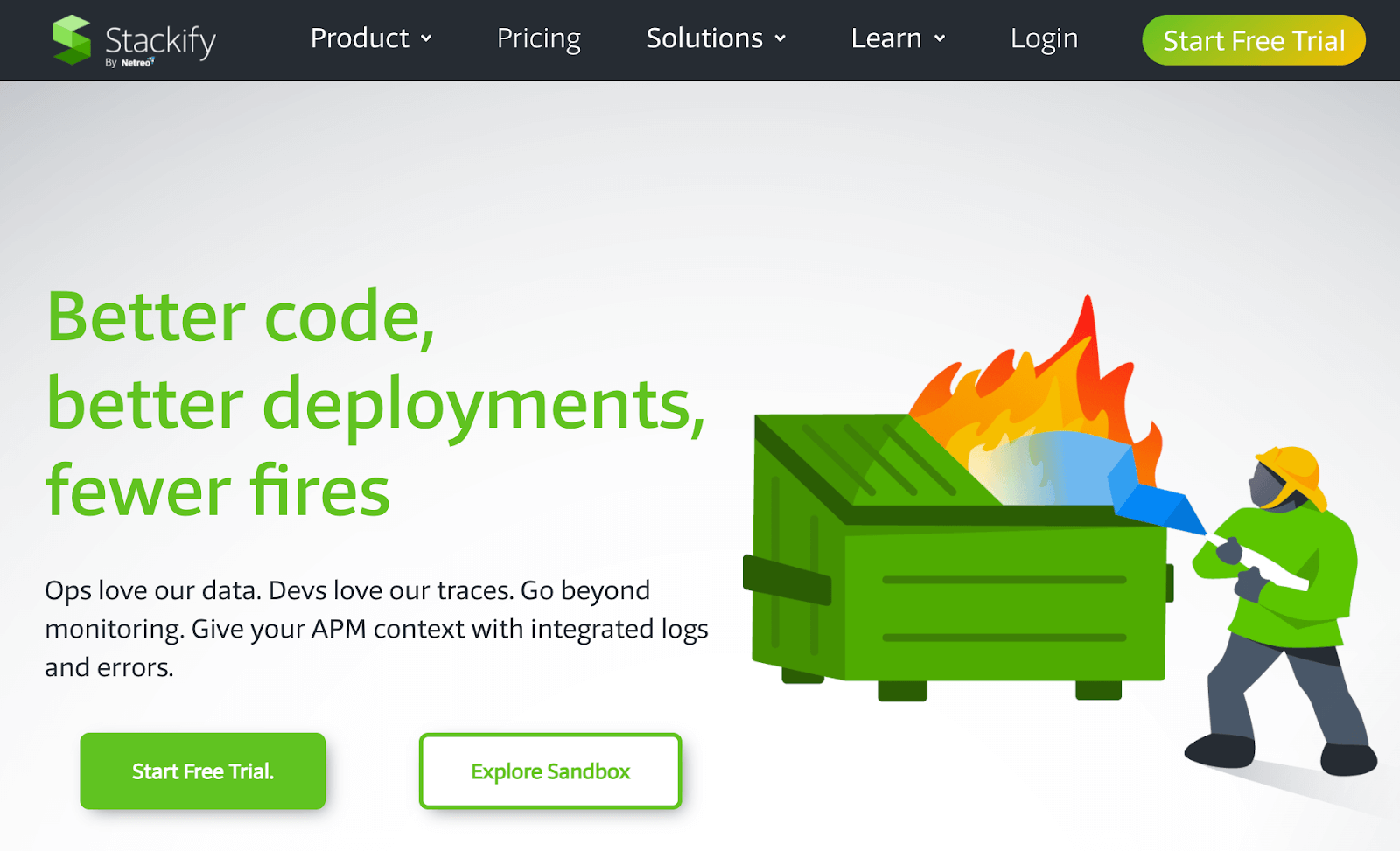 Stackify's Retrace platform enables its users to proactively monitor applications and is used by engineers across both QA and production environments.
Stackify's Retrace platform enables its users to proactively monitor applications and is used by engineers across both QA and production environments.
Their platform includes APM in addition to log management and is currently offering new users the chance to explore their premium offering of their code review tool, Prefix, for a limited time.
Key Features:
- Reporting on where your log messages originated in your code
- Combines log management and APM
- Advanced logging
- Log analytics
8. Logz.io
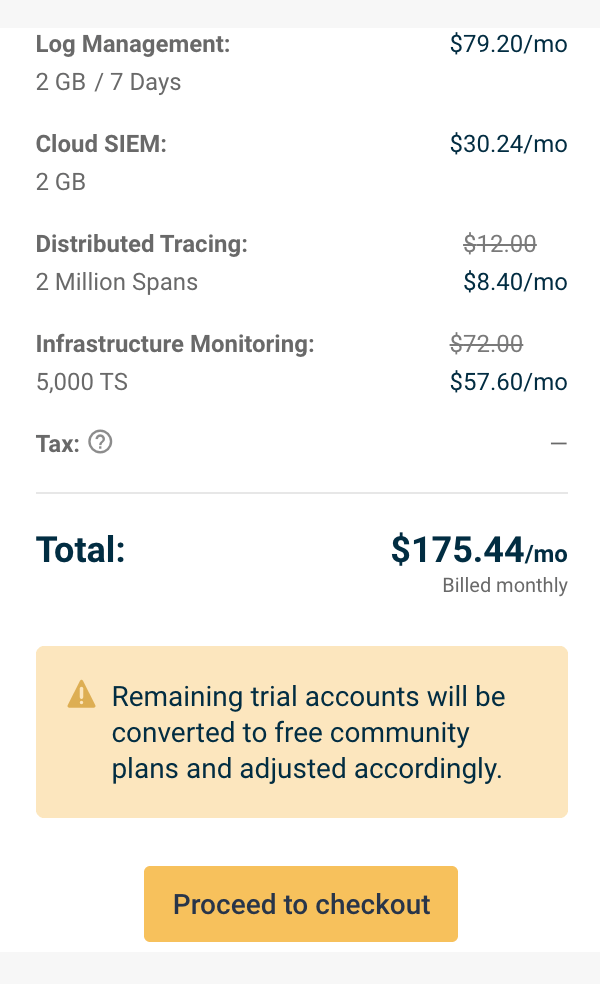 The logging solution offered by Logz.io is built for scalability and enables its users to monitor logs for simplifying security. Their solution offers a selection of pre-built dashboards which give working examples to those that are new to the process of setting up impressive Kibana dashboards.
The logging solution offered by Logz.io is built for scalability and enables its users to monitor logs for simplifying security. Their solution offers a selection of pre-built dashboards which give working examples to those that are new to the process of setting up impressive Kibana dashboards.
In terms of drawbacks, Logz.io was said to not be as fast on performance time as other proprietary solutions (such as Humio) by some users who had trialled the platform in recent years.
Key Features:
- Automatic parsing
- Log aggregation
- Volume analysis
- Sub accounts
- Log patterns
9. Log Harvestor
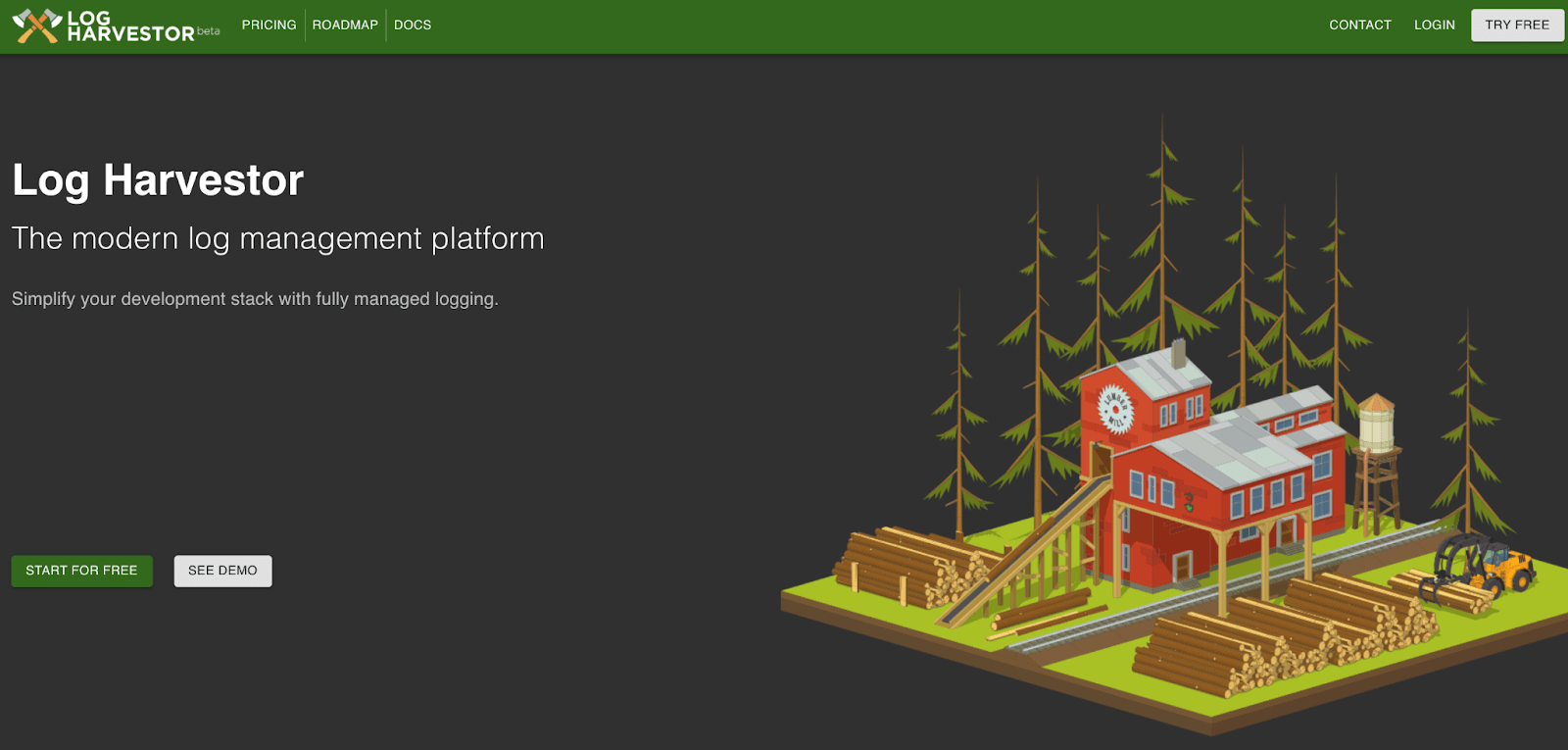 Log Harvestor is a newer solution for log management that recently debuted on Product Hunt. As this platform is such a newcomer to the log management market they have launched a roadmap to keep users in the know with all of the upcoming developments coming to Log Harvestor soon.
Log Harvestor is a newer solution for log management that recently debuted on Product Hunt. As this platform is such a newcomer to the log management market they have launched a roadmap to keep users in the know with all of the upcoming developments coming to Log Harvestor soon.
Key Features:
- Multi-User
- Phone & Email Support
- Alerting & Expanded Analytics
10. Backtrace
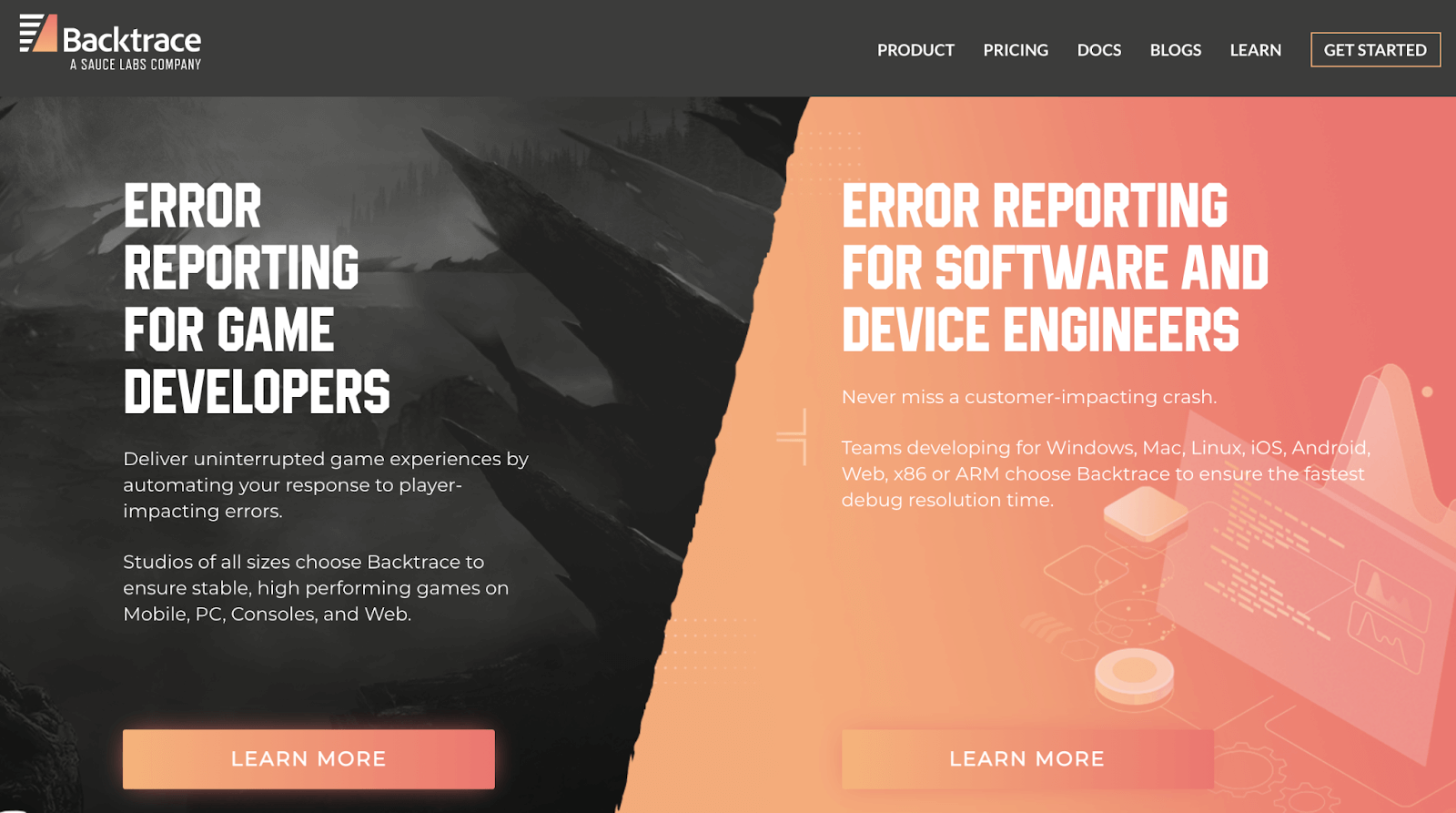 Backtrace’s log management solution has primarily been built with game developers in mind. As a tool, Backtrace can be integrated with existing tools that you already use (including the aforementioned Datadog) and adds relevant context embedded side-by-side for improved troubleshooting of all your error logs.
Backtrace’s log management solution has primarily been built with game developers in mind. As a tool, Backtrace can be integrated with existing tools that you already use (including the aforementioned Datadog) and adds relevant context embedded side-by-side for improved troubleshooting of all your error logs.
Key Features:
- Advanced deduplication
- Command-line access
- Custom deployments
- Download dump files
- SSL Encryption
11. Dockter
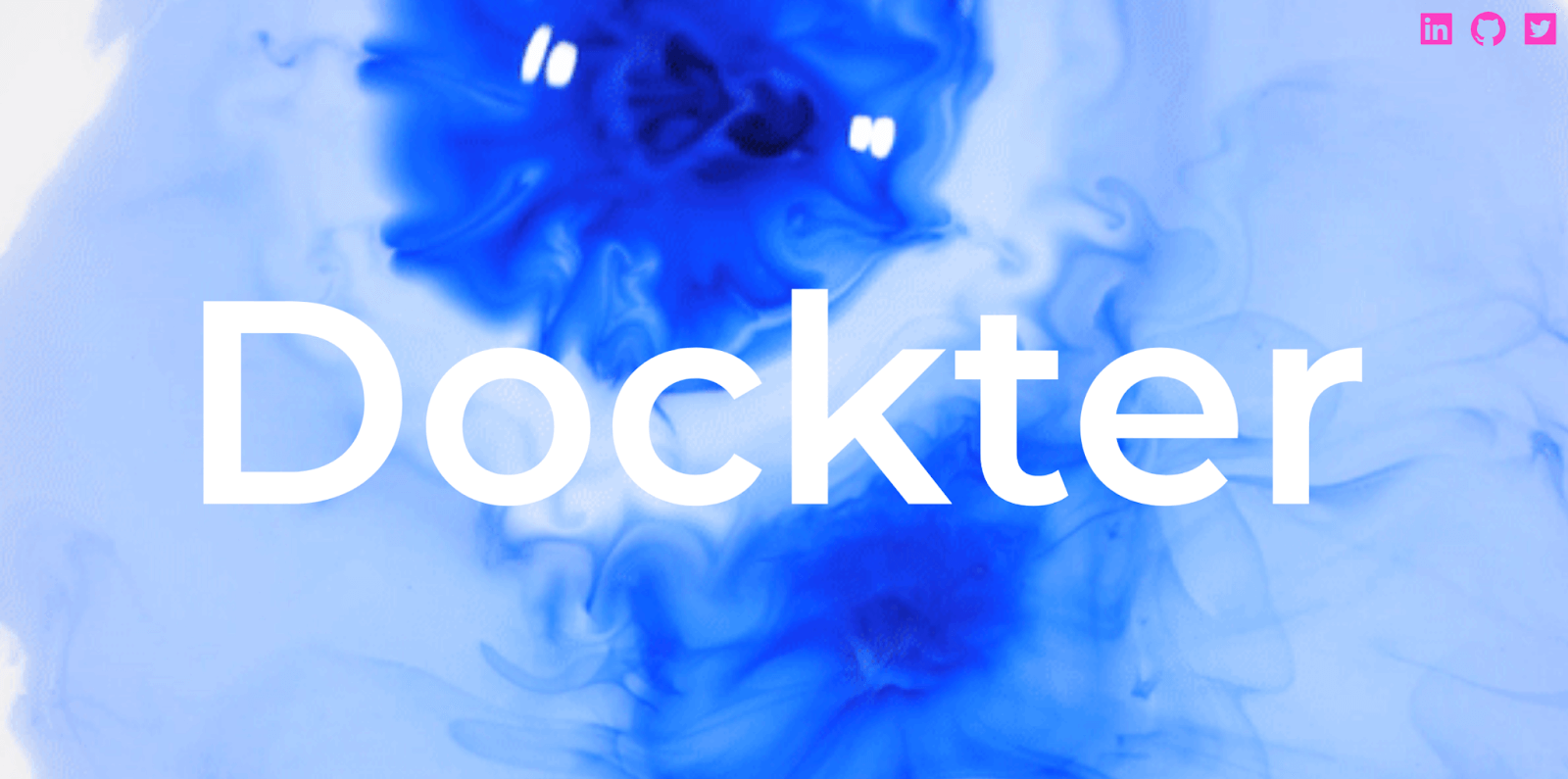 If Docker log management is your primary requirement then Dockter’s low-overhead open-source solution may provide exactly what you need to solve this highly specific use case. Dockter can offer many of the features that other solutions previously cited boast, namely real-time aggregation, search and storage.
If Docker log management is your primary requirement then Dockter’s low-overhead open-source solution may provide exactly what you need to solve this highly specific use case. Dockter can offer many of the features that other solutions previously cited boast, namely real-time aggregation, search and storage.
Key Features:
- Filter, sort, and manage logs
- Real-time aggregation
- Search, sort & filter
- Interactive GUI
12. Elysium Analytics
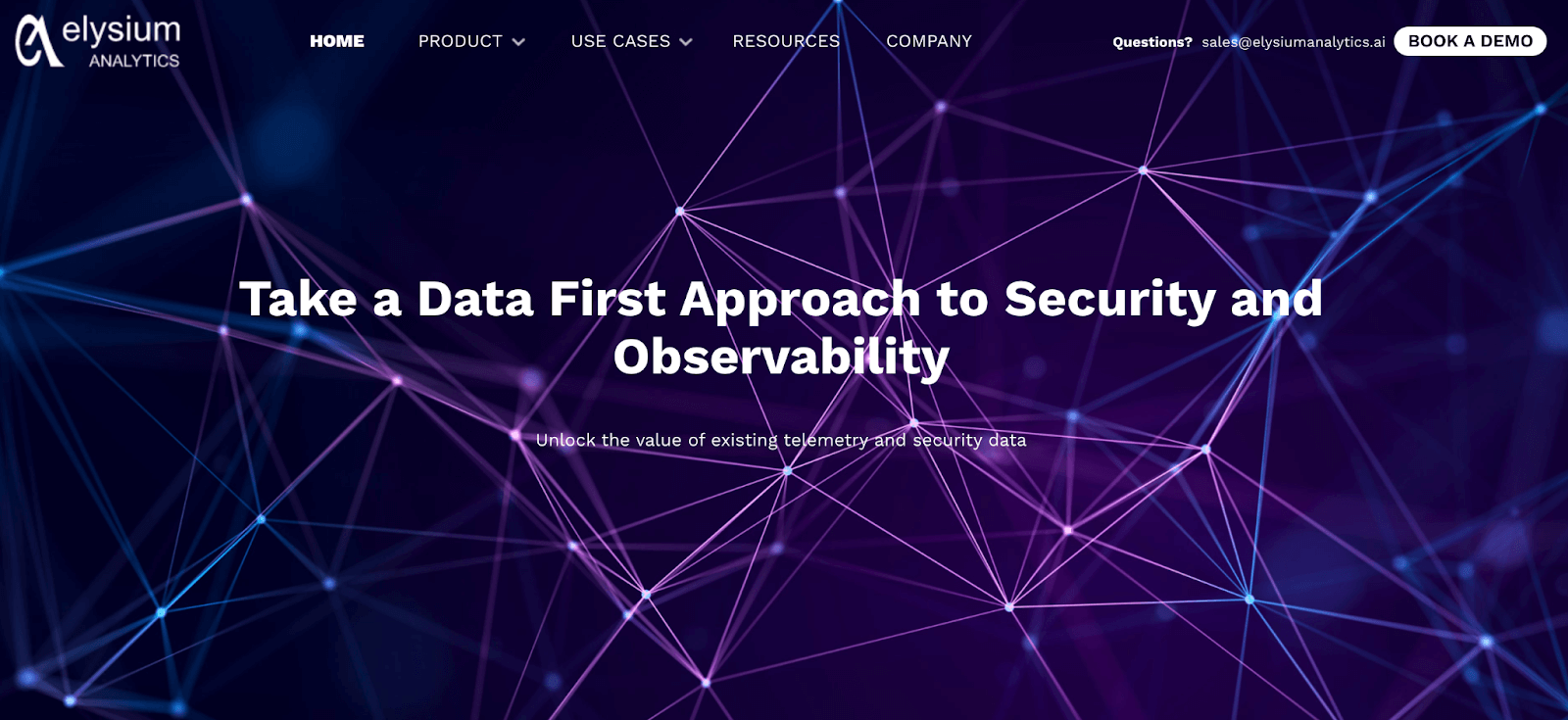 Elysium Analytics allows users to improve visibility of the signals of malicious user events and improve their ability to accurately triage data. Their solution is used by those in DevOps, IT-Ops and SecOps for ingesting structured and semi-structured data.
Elysium Analytics allows users to improve visibility of the signals of malicious user events and improve their ability to accurately triage data. Their solution is used by those in DevOps, IT-Ops and SecOps for ingesting structured and semi-structured data.
Elysium Analytics compresses ingested data by 70% to alleviate concerns that would have previously arisen for users who had to use an additional third party data storage solution for archiving their uncompressed data.
Key Features:
- Operational disturbances report
- Full-text search
- Data collection
- Alerting
13. Humio
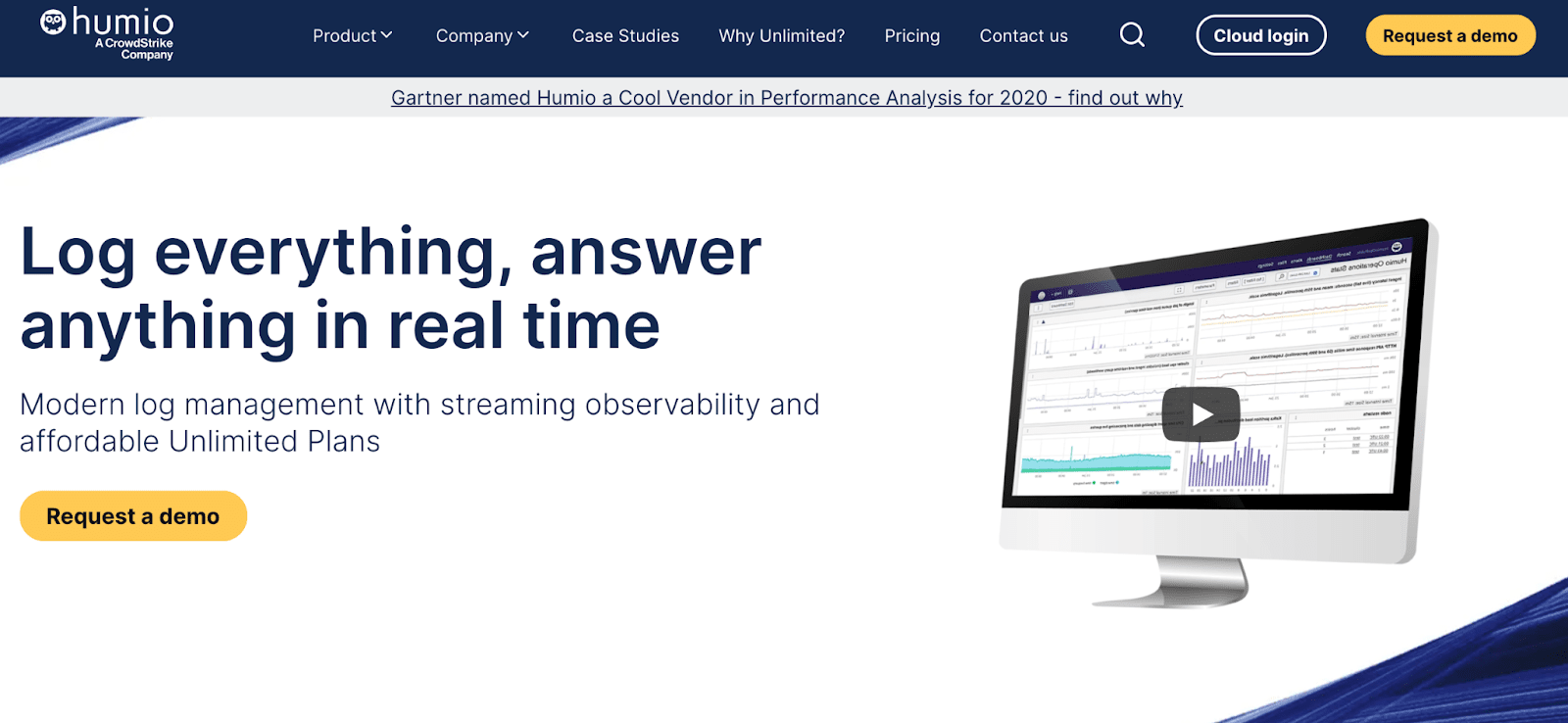 Enterprise users that require large-scale logging may find Humio's log management platform to offer the scalability they require for effective data management. Unlike other platforms, Humio's dashboards are also able to harness Falcon data so that users can correlate and integrate this data alongside the rest of their system data.
Enterprise users that require large-scale logging may find Humio's log management platform to offer the scalability they require for effective data management. Unlike other platforms, Humio's dashboards are also able to harness Falcon data so that users can correlate and integrate this data alongside the rest of their system data.
Key Features:
- Storage optimisation
- Unlimited ingestion
- Index-free design
- Data streaming
- SIEM
14. Bulletlog
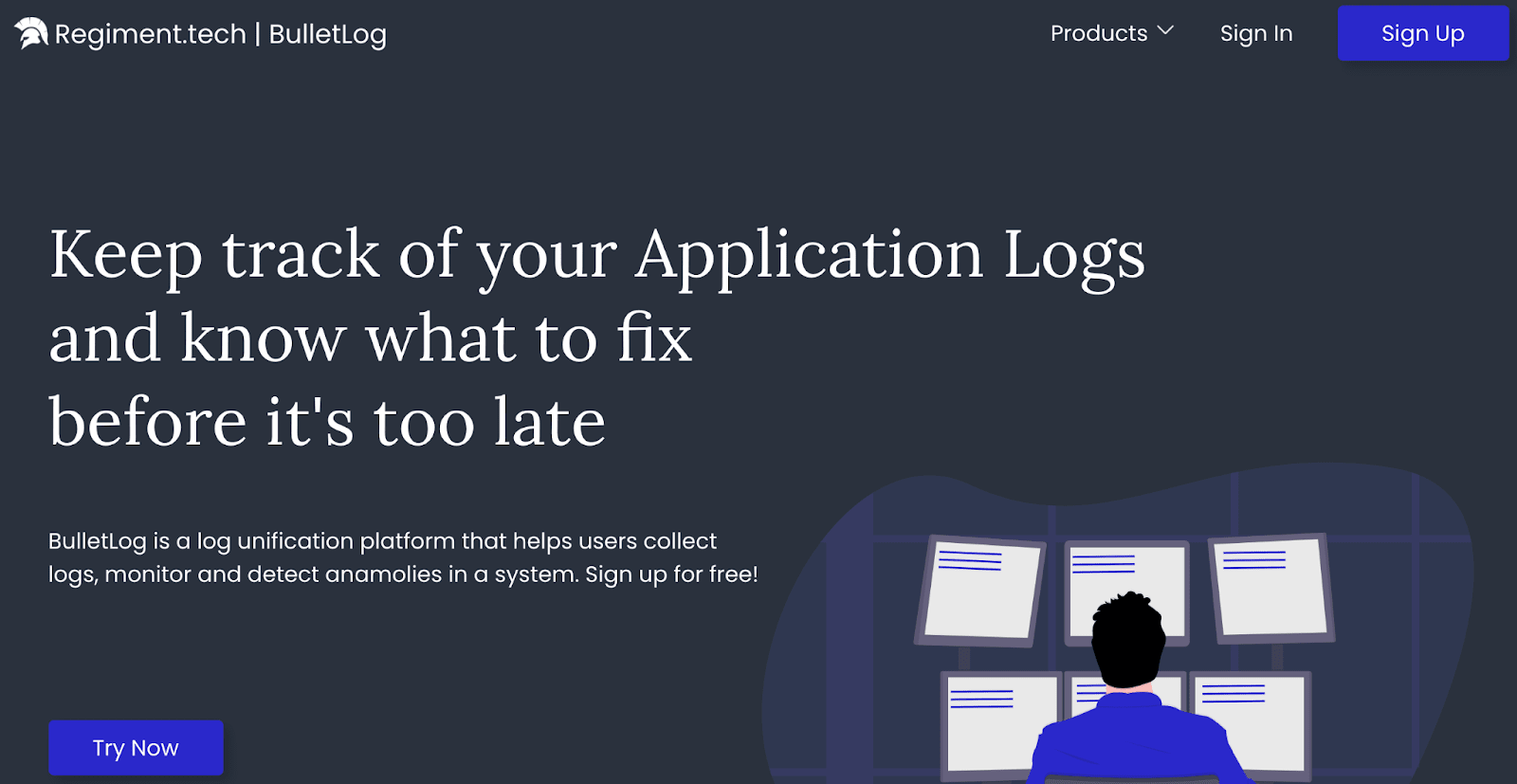 Bulletlog offers a data unification platform for collecting application logs, pinpointing debug issues and setting alerts. This Regiment.tech backed platform can also be used for simply tracking errors and offers users an alternative to hosting open-source logging software.
Bulletlog offers a data unification platform for collecting application logs, pinpointing debug issues and setting alerts. This Regiment.tech backed platform can also be used for simply tracking errors and offers users an alternative to hosting open-source logging software.
Key Features:
- Numerous framework integrations
- Slack and email notifications
- 24X7 support
- Log Search
15. Zebrium
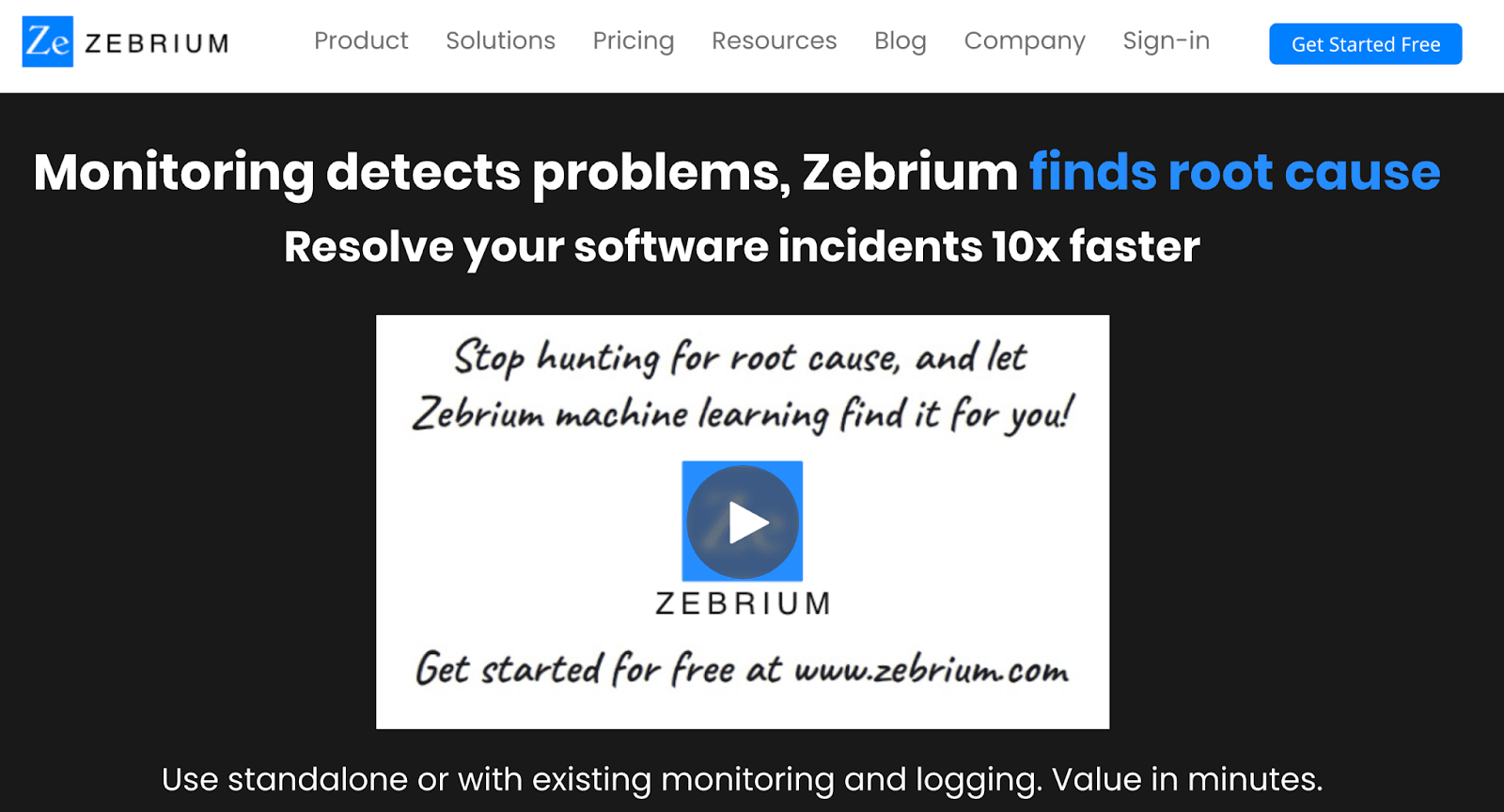 If you require a cloud-based log management tool that continually scans in the background for anomalies then Zebrium may be the right solution to capture your next software error.
If you require a cloud-based log management tool that continually scans in the background for anomalies then Zebrium may be the right solution to capture your next software error.
The Zebrium platform has also recently launched its service as an on-premise VPC-deployable offering that can use the same machine learning technology from their original platform.
Key Features:
- Role-based-access-control (RBAC)
- Broad platform support
- ML-based structuring
- Regex Search
16. Netwitness
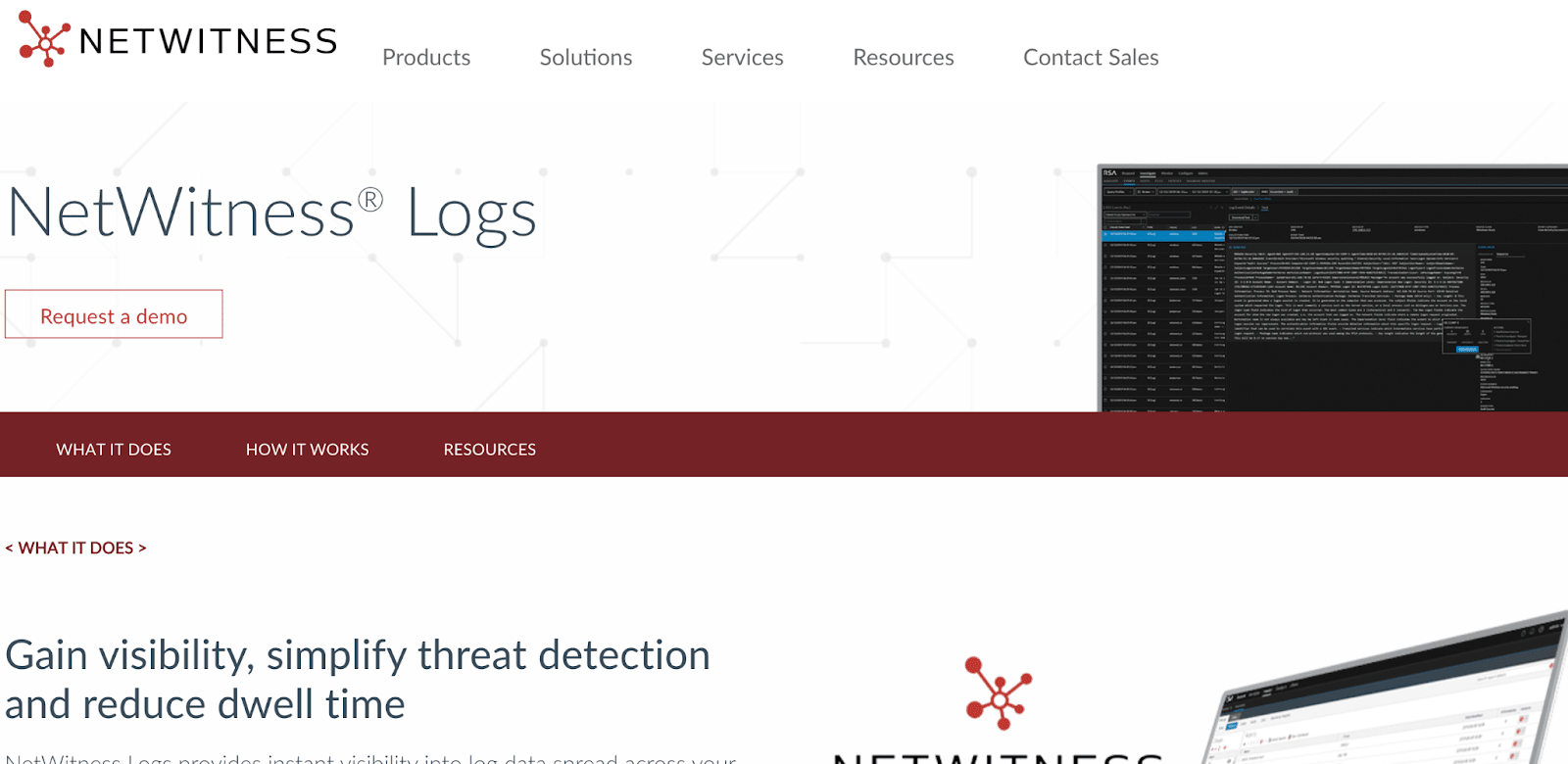 Netwitness’s log tracking software allows users to gain visibility and experience the benefits of SIEM and Open XDR within a single platform. This software solution is also classified as a forensics tool due to its strength in helping its users to demonstrate regulatory compliance for various security initiatives (including CMMC).
Netwitness’s log tracking software allows users to gain visibility and experience the benefits of SIEM and Open XDR within a single platform. This software solution is also classified as a forensics tool due to its strength in helping its users to demonstrate regulatory compliance for various security initiatives (including CMMC).
Key Features:
- Simplify Windows log monitoring
- Compliance support
- Flexible reporting
- Threat detection
17. Exambeam Log Management
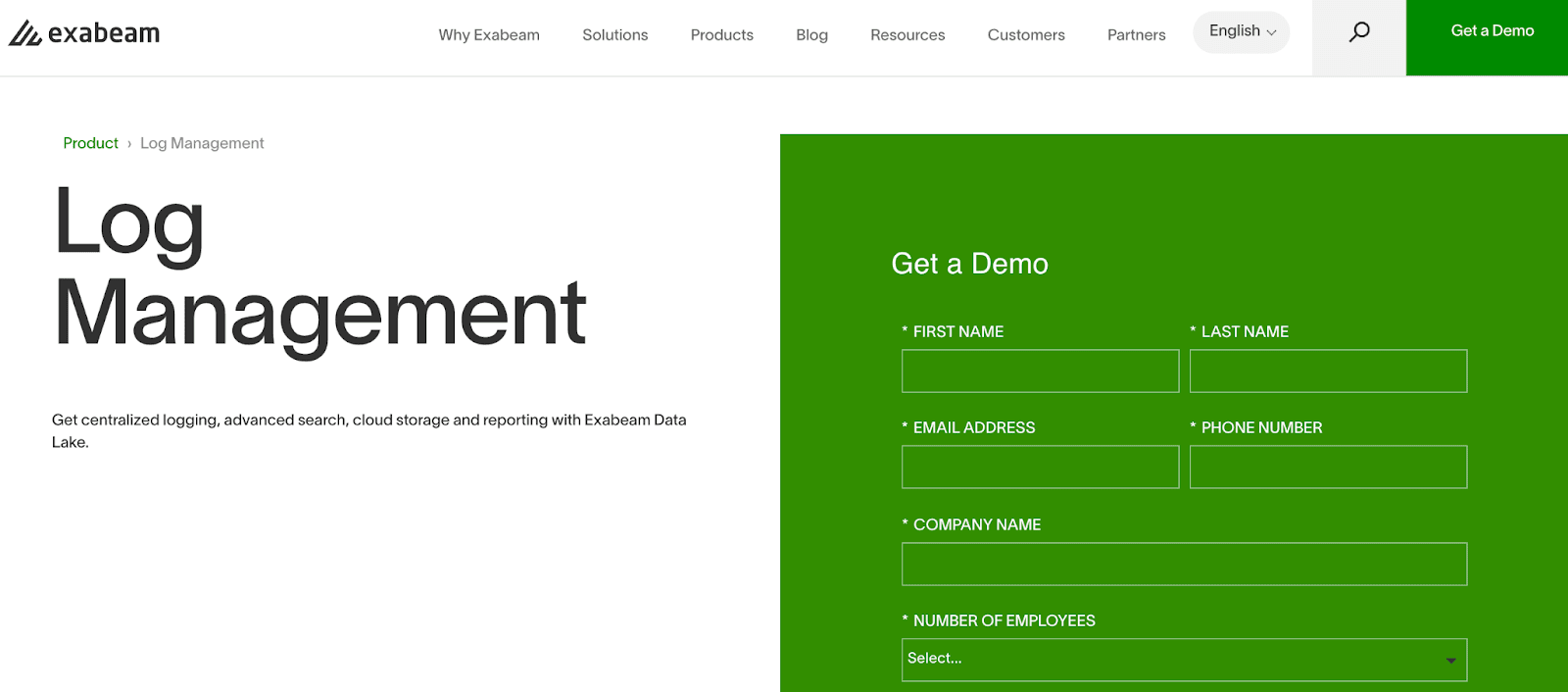 Exambeam is another service provider that allows its users not only access to log search features but also SIEM and XDR in addition to threat detection, investigation and response (TDIR).
Exambeam is another service provider that allows its users not only access to log search features but also SIEM and XDR in addition to threat detection, investigation and response (TDIR).
If you are new to the term “data lake” then be rest assured that by using Exambeam you can still benefit from features including; centralised logging, search, reporting and cloud storage options.
Key Features:
- Natural language querying
- Context-Aware log parsing
- Unlimited logging
- Data lake
18. ALog ConVerter
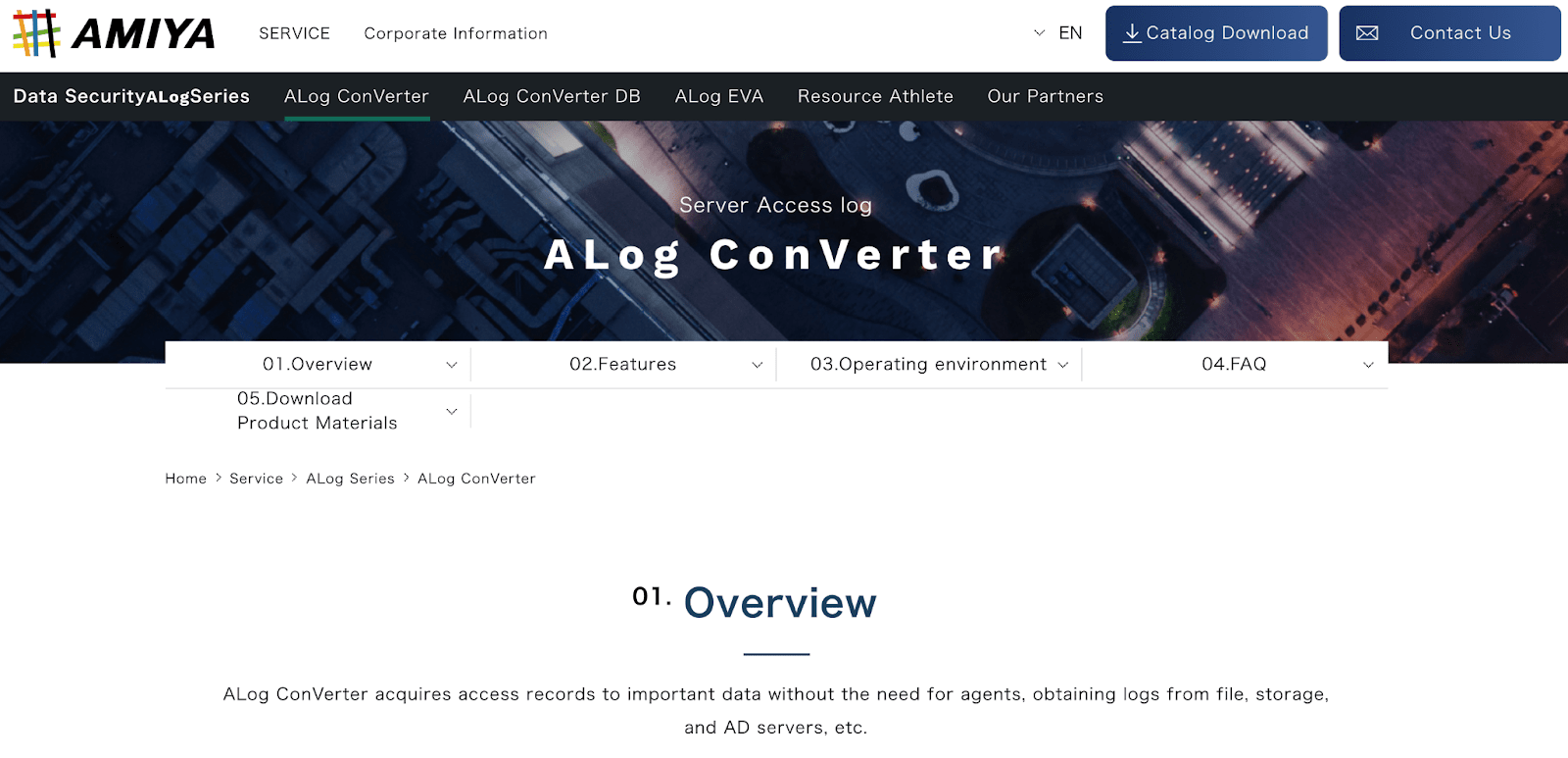 ALog ConVerter is a server log monitoring solution that doesn’t require agents to send logs from a variety of devices. It is essential to monitor servers and server logs over time so that you are able to see if your server's performance is degrading over time or is showing signs that a crash is imminent.
ALog ConVerter is a server log monitoring solution that doesn’t require agents to send logs from a variety of devices. It is essential to monitor servers and server logs over time so that you are able to see if your server's performance is degrading over time or is showing signs that a crash is imminent.
Key Features:
- Archiving & retention
- Compliance tracking
- Server monitoring
- Event logs
- Audit trail
19. Motadata Log Management
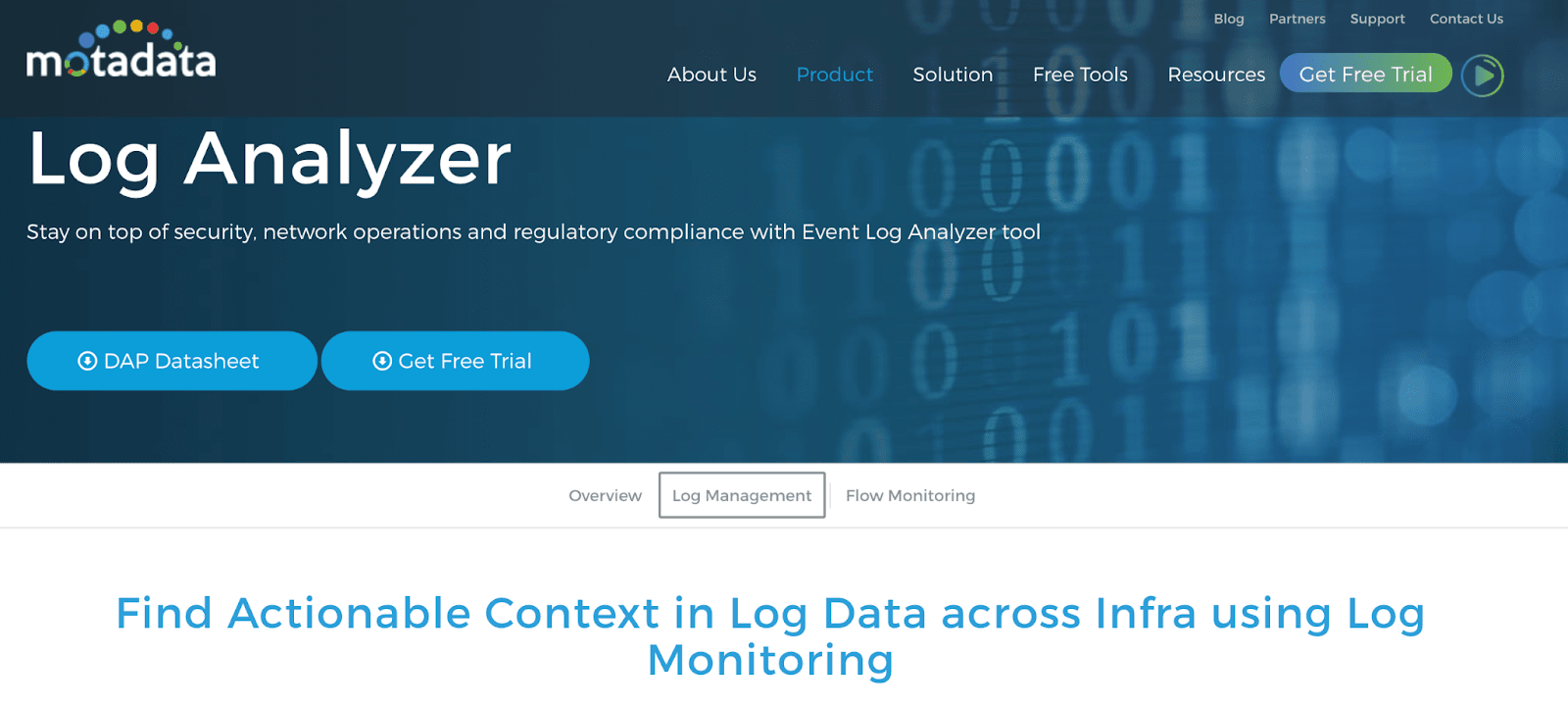 Motadata’s event log scraping tool provides users with actionable insights across networks and infrastructure. Event log analysis often proves itself to be invaluable in the centralisation of information, audit, warning, error and failure events that are being recorded across distributed system architecture.
Motadata’s event log scraping tool provides users with actionable insights across networks and infrastructure. Event log analysis often proves itself to be invaluable in the centralisation of information, audit, warning, error and failure events that are being recorded across distributed system architecture.
Key Features:
- Monitor multi-cloud environments
- Customisable retention
- Operational insights
- Correlate logs
20. CloudPhysics
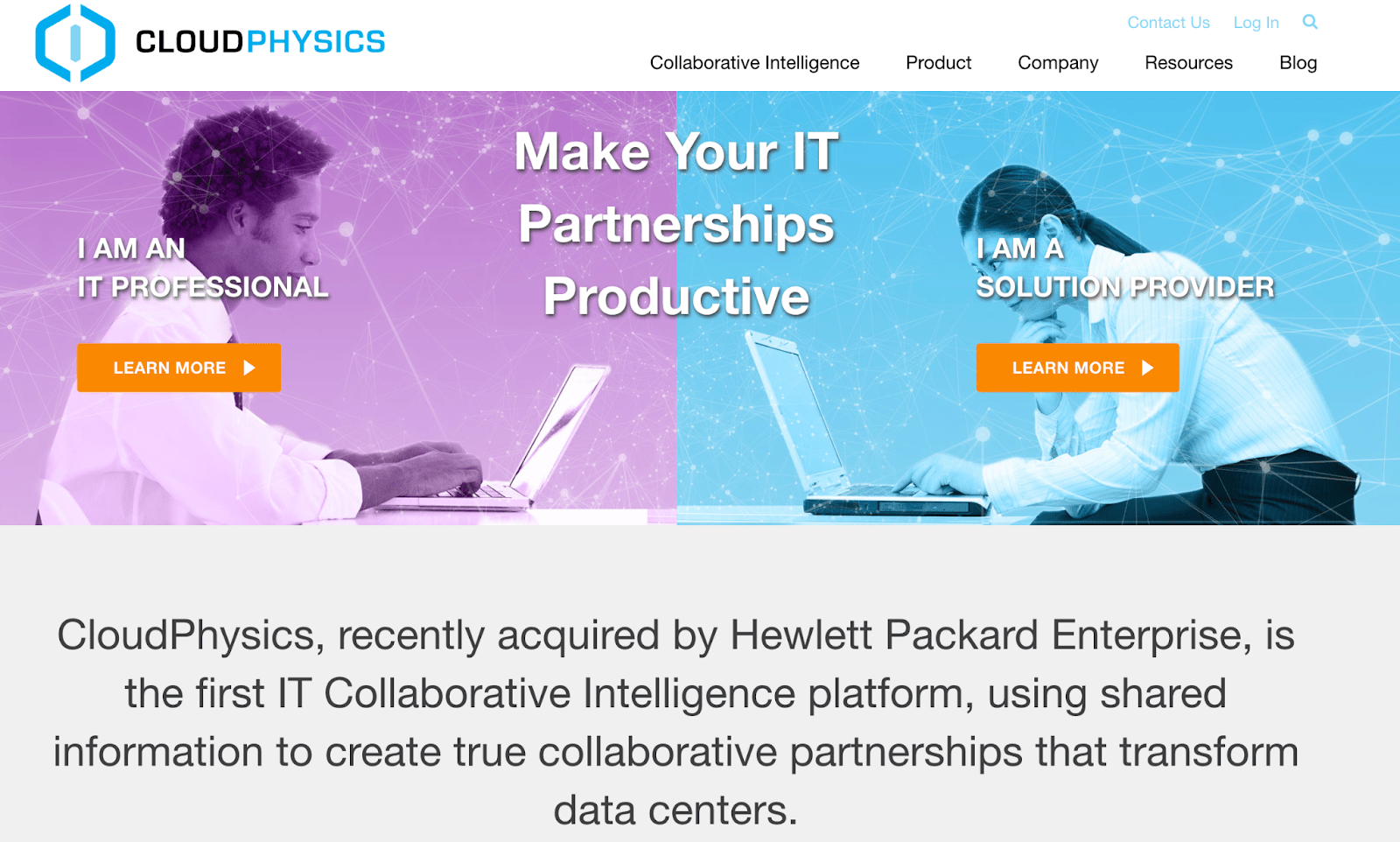 CloudPhysics offers a log management application as part of their wider platform which specialises in providing analytics for virtual datacenters. This collaborative intelligence platform offers extensive support options and includes user access to a video tutorial channel and a well maintained knowledgebase.
CloudPhysics offers a log management application as part of their wider platform which specialises in providing analytics for virtual datacenters. This collaborative intelligence platform offers extensive support options and includes user access to a video tutorial channel and a well maintained knowledgebase.
Key Features:
- Help article knowledgebase
- Customize your data feeds
- Unlimited user accounts
- Analytics and reports
21. Corner Bowl Event Log Manager
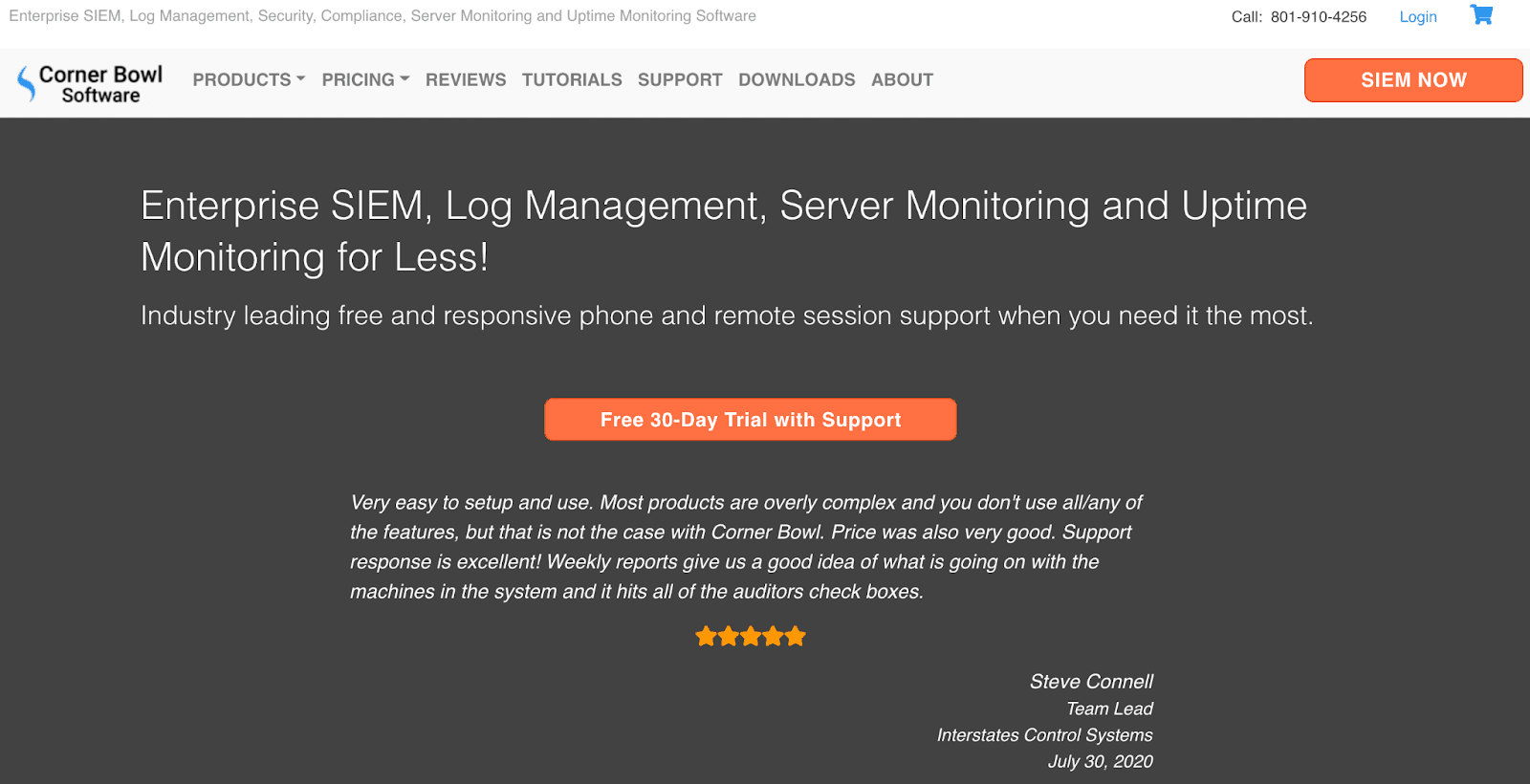 Corner Bowl Event Log Manager provides a solution for SIEM, log management and uptime monitoring that has multiple options for support, including phone-based sessions. A platform such as Corner Bowl’s solution which is cross-compatible with a variety of use cases can prove itself to be of better value in the long term over solutions that only offer one service.
Corner Bowl Event Log Manager provides a solution for SIEM, log management and uptime monitoring that has multiple options for support, including phone-based sessions. A platform such as Corner Bowl’s solution which is cross-compatible with a variety of use cases can prove itself to be of better value in the long term over solutions that only offer one service.
Key Features:
- Schedule compliance and auditing reports
- Azure Active Directory auditing
- Sends SMS and email alerts
- Windows event log viewer
22. Blesk
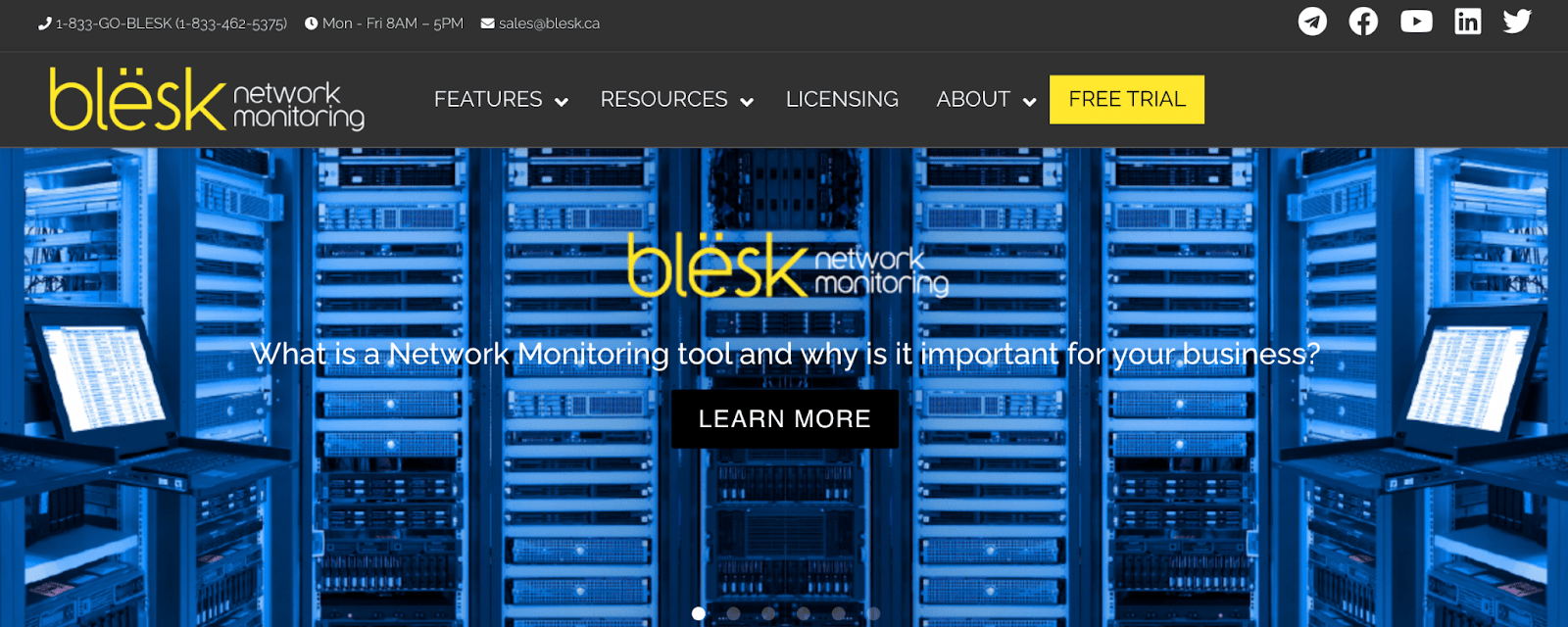 Blesk's network and event log monitoring tool is an on-premise ITSM suite that includes an event log manager alongside its features not monitoring both network traffic and application performance metrics.
Blesk's network and event log monitoring tool is an on-premise ITSM suite that includes an event log manager alongside its features not monitoring both network traffic and application performance metrics.
To get started with Blesk you will need to ensure that you can meet the following minimum system requirements: Available memory - 8GB, Quad-core CPU processor and 80GB of free hard drive space.
Key Features:
- Port mirroring accompaniment
- Device removal strategy
- REST API management
- NPM tree customization
23. Wrble
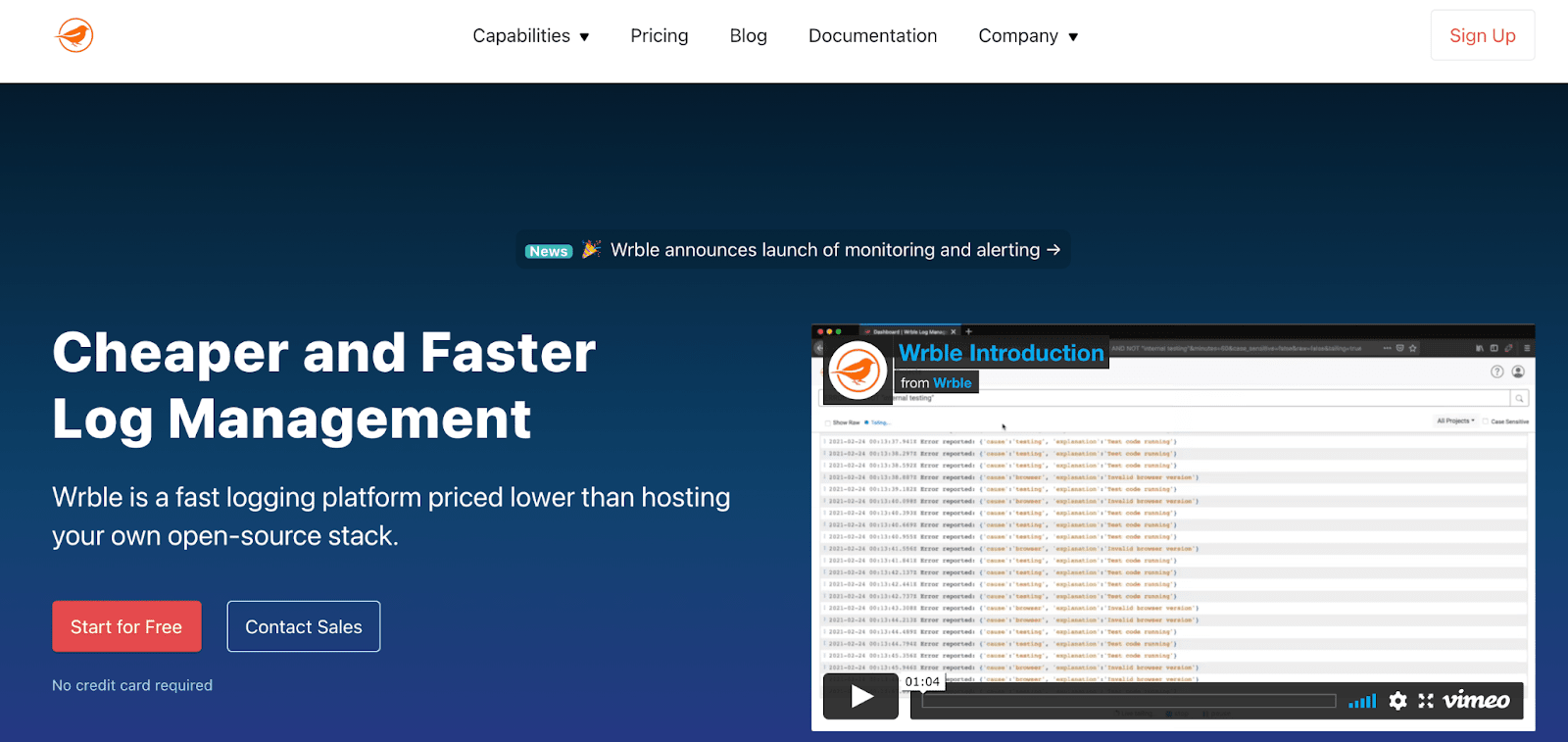 Wrble enables its users to ingest historical data by using their APIs to back-fill valuable logs and can also be used to ingest data across mobile, web & IoT devices. The platform offers limited API access and one-month raw retention for up to five users on their basic plan.
Wrble enables its users to ingest historical data by using their APIs to back-fill valuable logs and can also be used to ingest data across mobile, web & IoT devices. The platform offers limited API access and one-month raw retention for up to five users on their basic plan.
Key Features:
- Multiple searches of cohorts
- Near real-time querying
- Automated alerts
24. i-Vertix
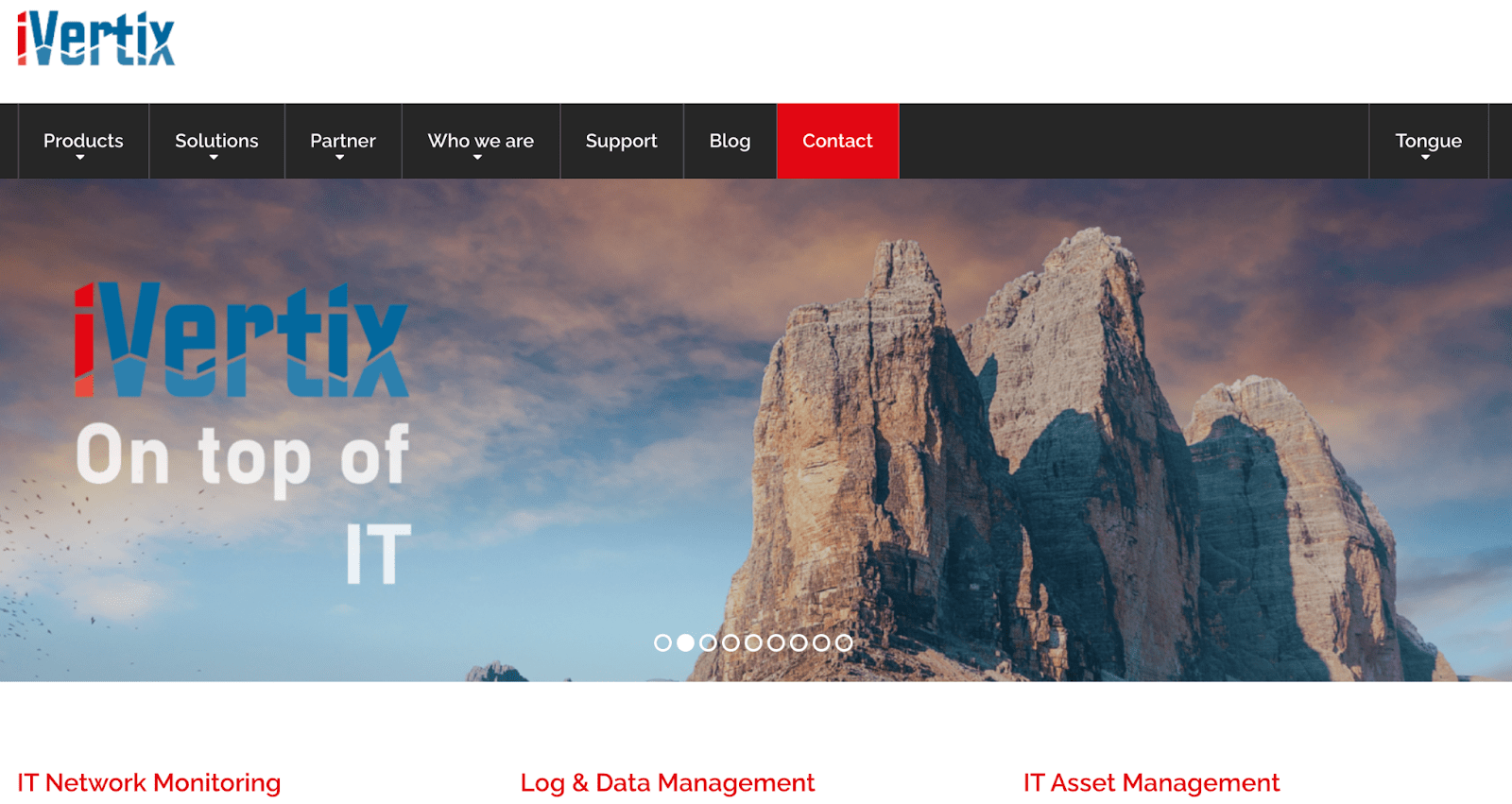 i-Vertix caters to users that require a centralised logging solution that can be analysed in real-time for further improved data accuracy. Centralised logging is beneficial for engineers that want to view a single source of truth on the status of their systems and operating environments.
i-Vertix caters to users that require a centralised logging solution that can be analysed in real-time for further improved data accuracy. Centralised logging is beneficial for engineers that want to view a single source of truth on the status of their systems and operating environments.
Key Features:
- Extract, transform and load
- Log normalisation
- Enriched logs
25. LogFusion Pro
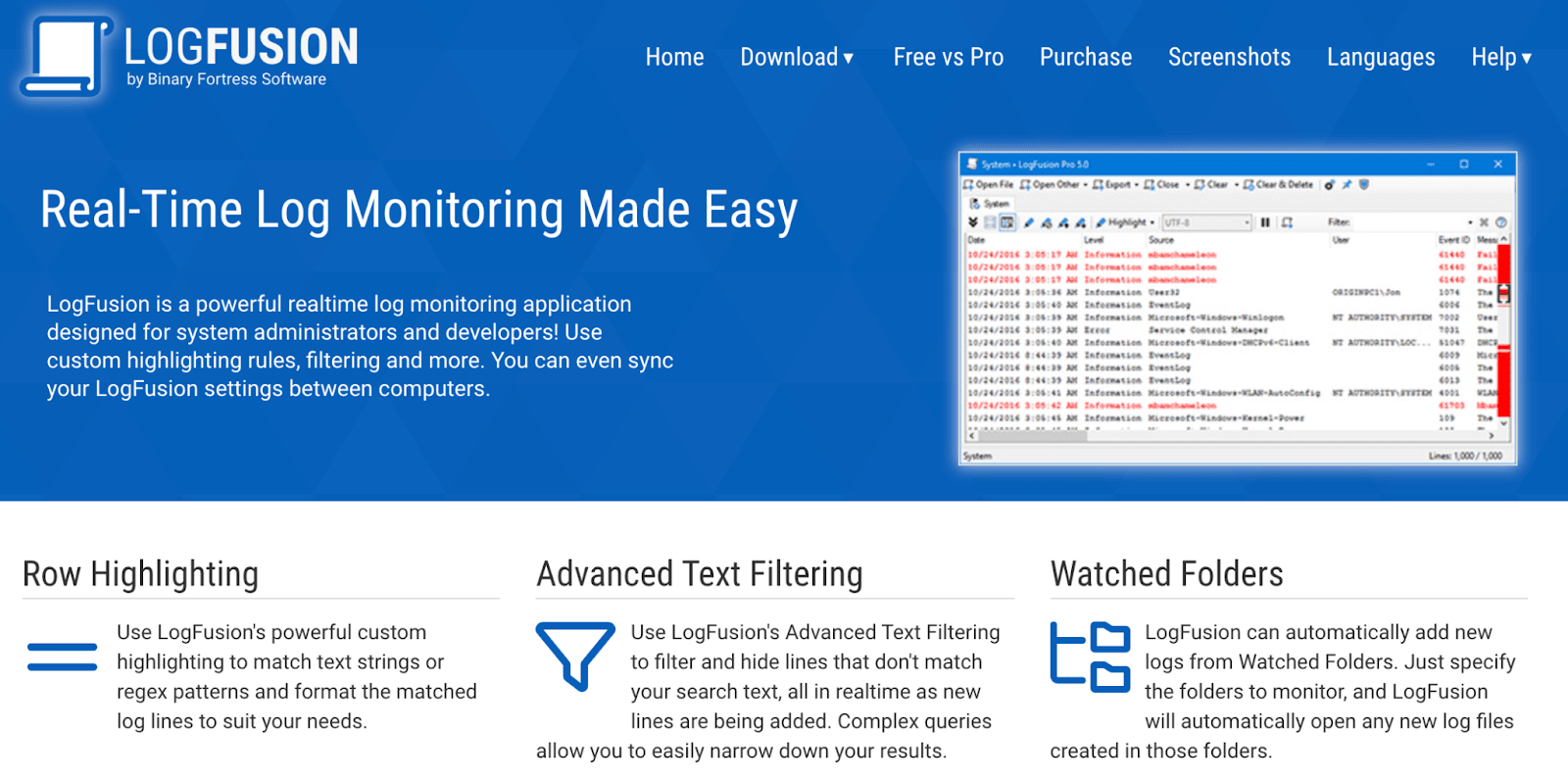 LogFusion Pro is another real-time log management tool that enables users to benefit from customer highlighting rules, advanced filtering and search. LogFusion Pro has recently launched a new beta of their other service offering, DisplayFusion, and there is ongoing support to translate the existing LogFusion platform into 63 different language variations.
LogFusion Pro is another real-time log management tool that enables users to benefit from customer highlighting rules, advanced filtering and search. LogFusion Pro has recently launched a new beta of their other service offering, DisplayFusion, and there is ongoing support to translate the existing LogFusion platform into 63 different language variations.
Key Features:
- Custom logging categories
- Sync highlight rules
- Row highlighting
- Log tail
26. Logiq.ai
 LogIQ is used for large-scale log ingestion and offers users the ability to gain data EPS control in order to increase the quality and relevance of their data. Based upon the large minimum usage fee, small businesses may not find this platform to be their first choice as a log management solution. For enterprise customers who need to meet large data retention and ingestion requirements, this platform may likely fulfil their needs more closely.
LogIQ is used for large-scale log ingestion and offers users the ability to gain data EPS control in order to increase the quality and relevance of their data. Based upon the large minimum usage fee, small businesses may not find this platform to be their first choice as a log management solution. For enterprise customers who need to meet large data retention and ingestion requirements, this platform may likely fulfil their needs more closely.
Key Features:
- Detect and analyze threat patterns
- Holistic data visualisation
- Supercharged retention
27. Papertrail
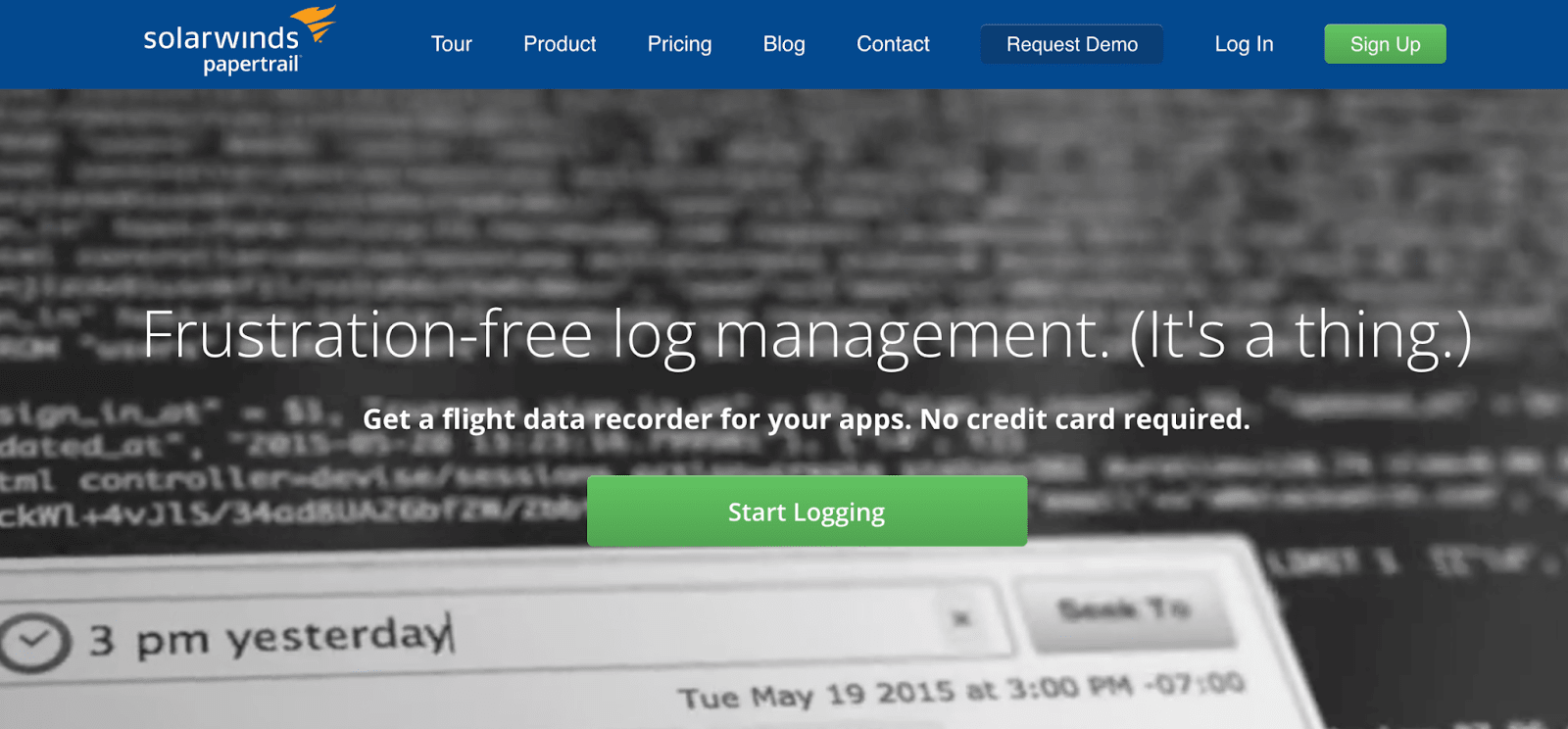 Papertrail provides cloud-based log management for Sysadmins and DevOps that require seamless aggregation of their log files. This SolarWinds owned logging application is able to analyse WordPress logs, manage DigitalOcean applications and troubleshoot issues with Kubernetes.
Papertrail provides cloud-based log management for Sysadmins and DevOps that require seamless aggregation of their log files. This SolarWinds owned logging application is able to analyse WordPress logs, manage DigitalOcean applications and troubleshoot issues with Kubernetes.
Key Features:
- Create per-user access control policies
- Archive up to a year's worth of data
- Cron job monitoring
- Automate backups
28. Logtail
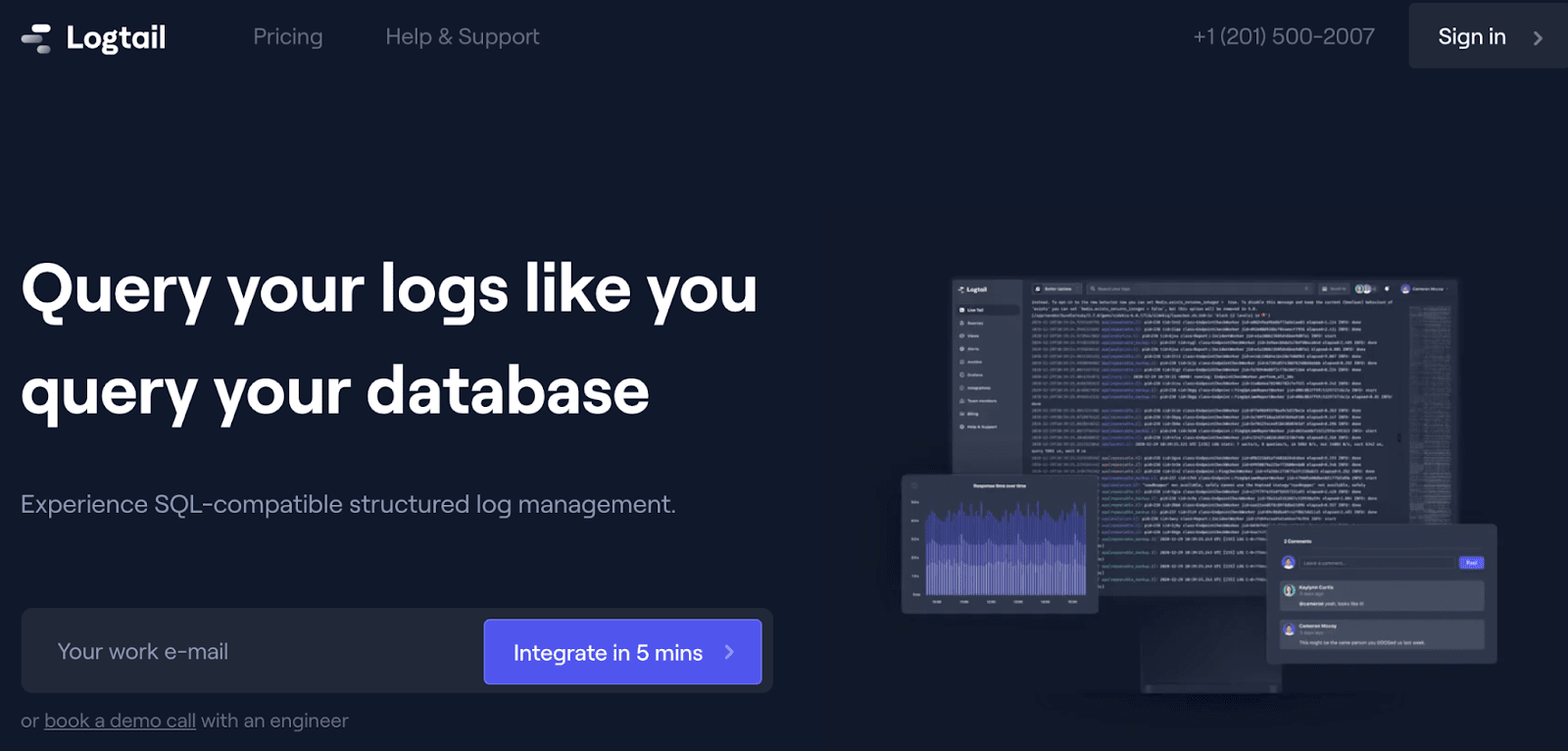 If being able to use SQL querying is a significant feature benefit then Logtail may offer the logging solution most suitable for your engineering team. Logtail is a relatively newer player in the log management market than many other solutions that have already been named in this article.
If being able to use SQL querying is a significant feature benefit then Logtail may offer the logging solution most suitable for your engineering team. Logtail is a relatively newer player in the log management market than many other solutions that have already been named in this article.
Key Features:
- SQL-compatible datastore
- Reporting dashboards
- Anomaly detection
29. Graylog
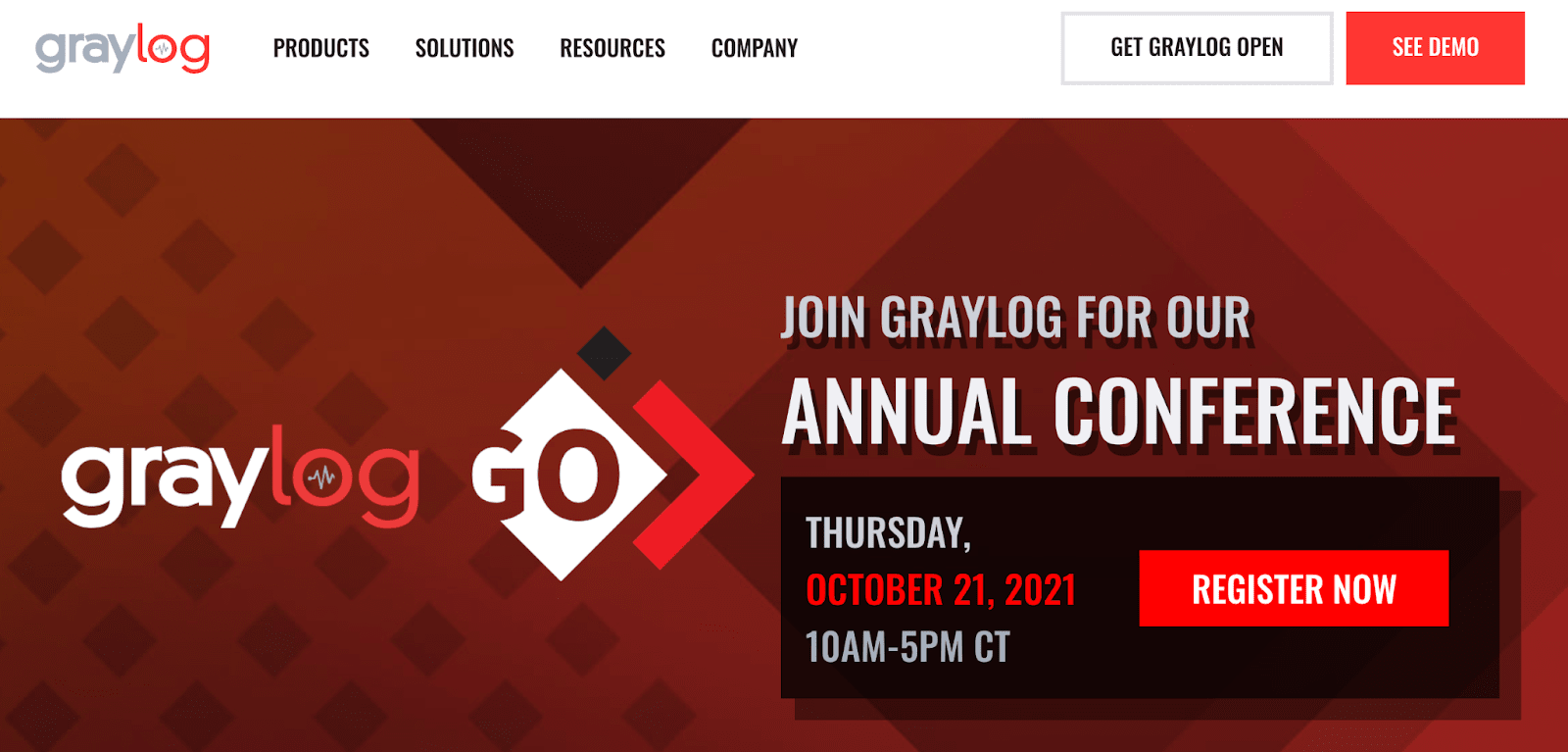 As an established log management solution, Graylog has been around for over a decade and offers both open and enterprise options to its users. Sysadmins may choose to use Graylog for the following alert monitors in order to streamline and protect their systems; alert on too many failed logins, alert if the domain admin account is accessed or modified, alert if users are added which have privileged access and alert upon account lockouts.
As an established log management solution, Graylog has been around for over a decade and offers both open and enterprise options to its users. Sysadmins may choose to use Graylog for the following alert monitors in order to streamline and protect their systems; alert on too many failed logins, alert if the domain admin account is accessed or modified, alert if users are added which have privileged access and alert upon account lockouts.
Key Features:
- Manage log collector configuration
- Fault tolerance
- Content packs
- SIEM
30. dbForge Transaction Log
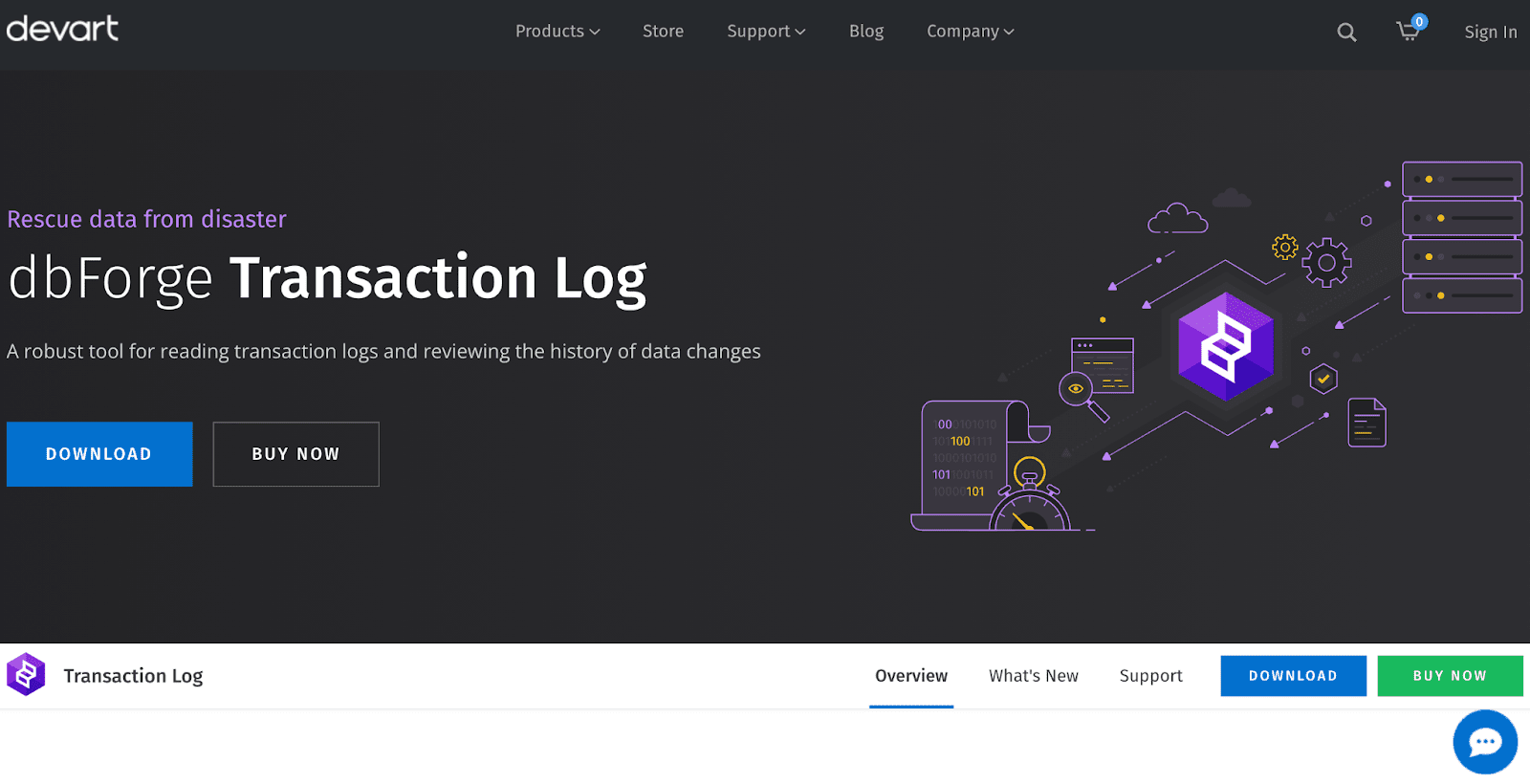 If you are looking for a highly specific logging solution for simply handling SQL transaction logs then dbForge may be the tool most suited for this particular niche use case. The dbForge Transaction Log tool can display operations, transaction name, status, schema name, object name, event time and LSN in an easily viewable UI (user interface).
If you are looking for a highly specific logging solution for simply handling SQL transaction logs then dbForge may be the tool most suited for this particular niche use case. The dbForge Transaction Log tool can display operations, transaction name, status, schema name, object name, event time and LSN in an easily viewable UI (user interface).
Key Features:
- Rollback database transactions
- Deleted record recovery
- View change history
31. Devo
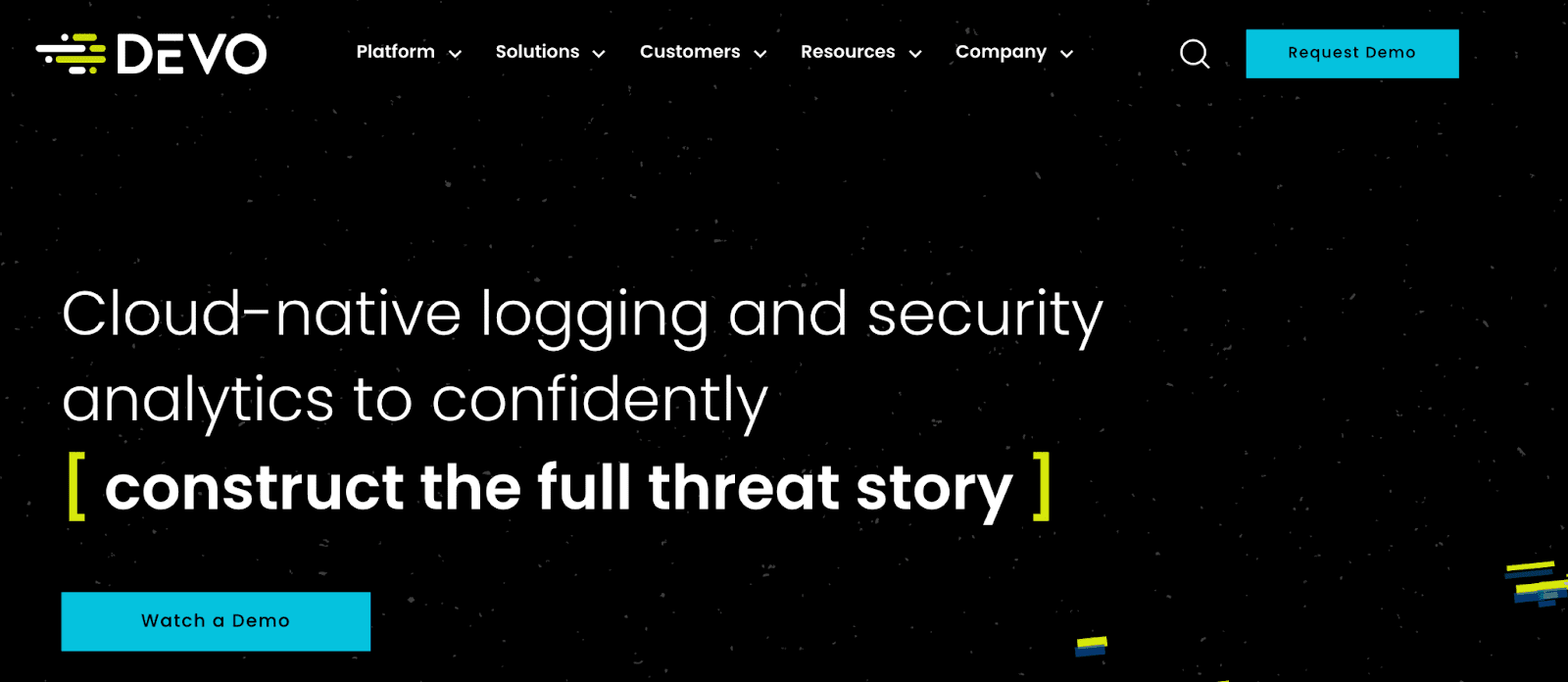 Devo’s platform has been built to enable Cybersecurity professionals with the capacity to pinpoint threats within their logs and metrics. This cloud-native logging tool is highly recommended for helping users to demonstrate NIST 800-171 compliance (as is Splunk).
Devo’s platform has been built to enable Cybersecurity professionals with the capacity to pinpoint threats within their logs and metrics. This cloud-native logging tool is highly recommended for helping users to demonstrate NIST 800-171 compliance (as is Splunk).
Key Features:
- Cloud-native logging solution
- Data management
- Threat detection
- Scalable
32. Exceptionless
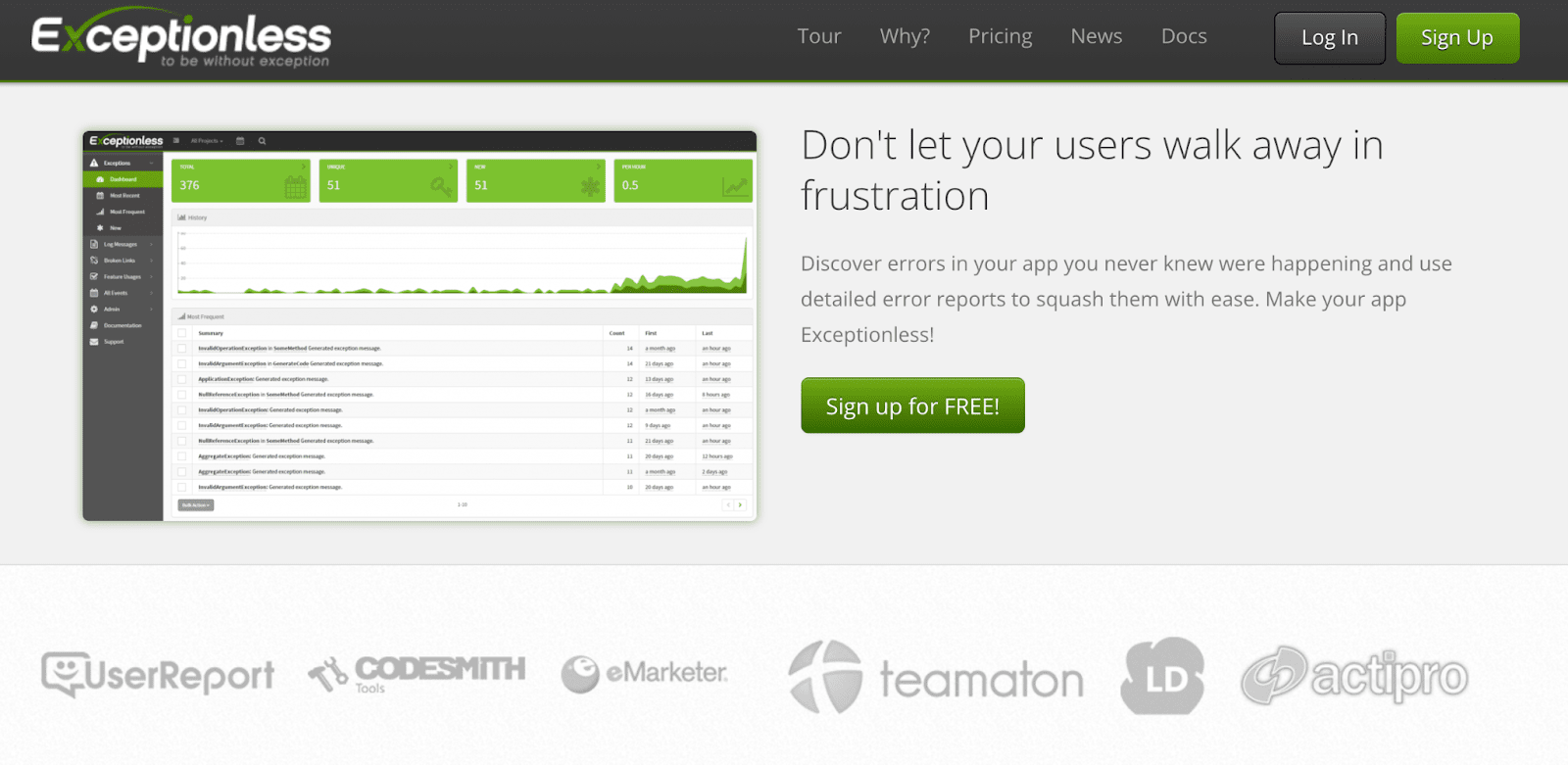 Exceptionless makes identifying errors occurring within your applications easier by offering a platform for improved visibility. The Exceptionless logging solution even offers a live count of events ingested so far on their site.
Exceptionless makes identifying errors occurring within your applications easier by offering a platform for improved visibility. The Exceptionless logging solution even offers a live count of events ingested so far on their site.
Key Features:
- Intelligent grouping
- Error reporting
- Custom objects
- Easy setup
33. FrameFlow
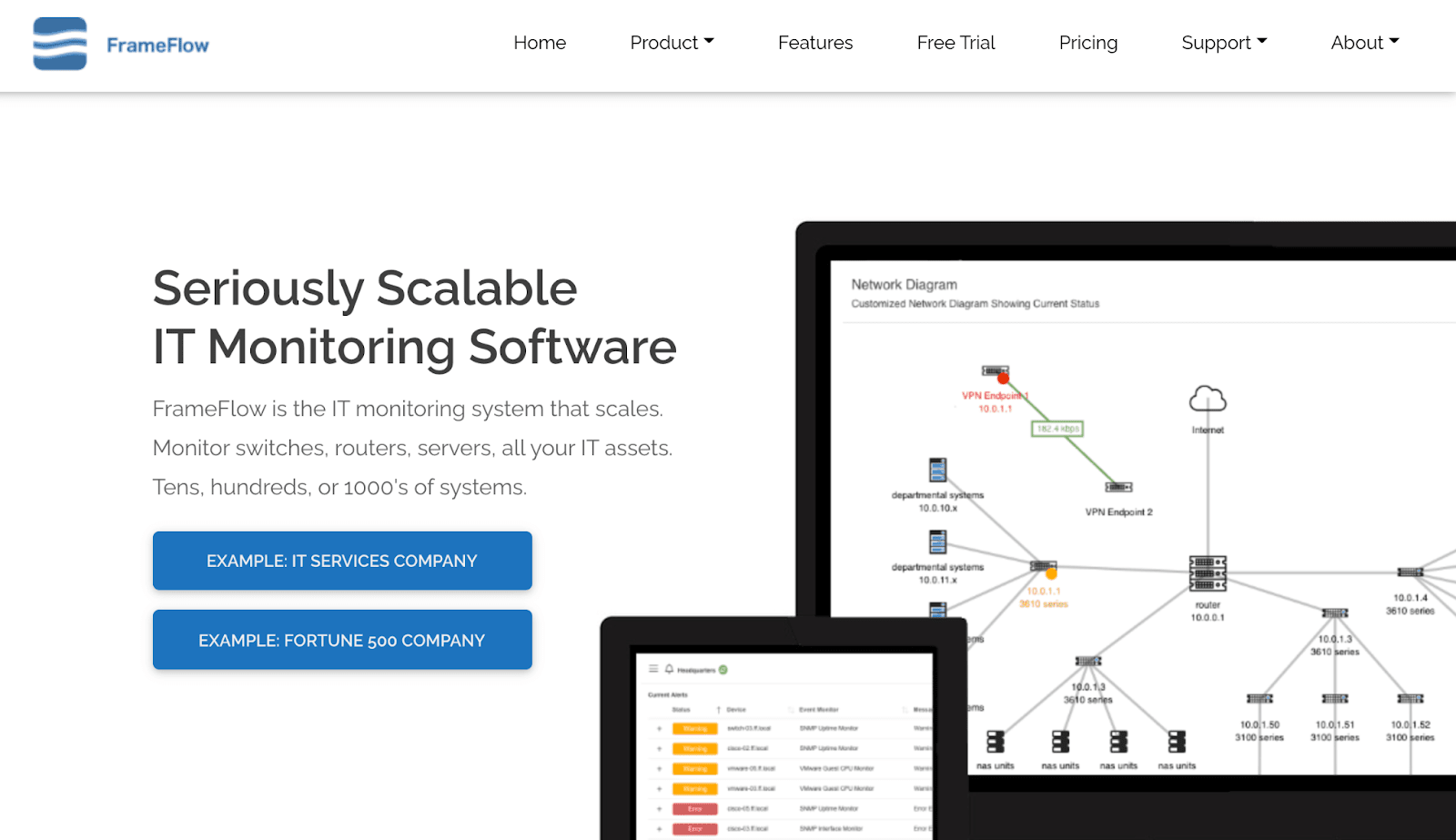 The FrameFlow IT monitoring and logging system is used by IT leaders to improve the observability of routers, servers and various other IT assets. This system is often used for monitoring Windows event logs and reports can be configured to display only new event log records, logs matching alert criteria and is also able to export matching events to a SQL server database of your choice.
The FrameFlow IT monitoring and logging system is used by IT leaders to improve the observability of routers, servers and various other IT assets. This system is often used for monitoring Windows event logs and reports can be configured to display only new event log records, logs matching alert criteria and is also able to export matching events to a SQL server database of your choice.
Key Features:
- System health event monitor
- MySQL event monitor
- SNMP browser
- Email alerts
34. Observe
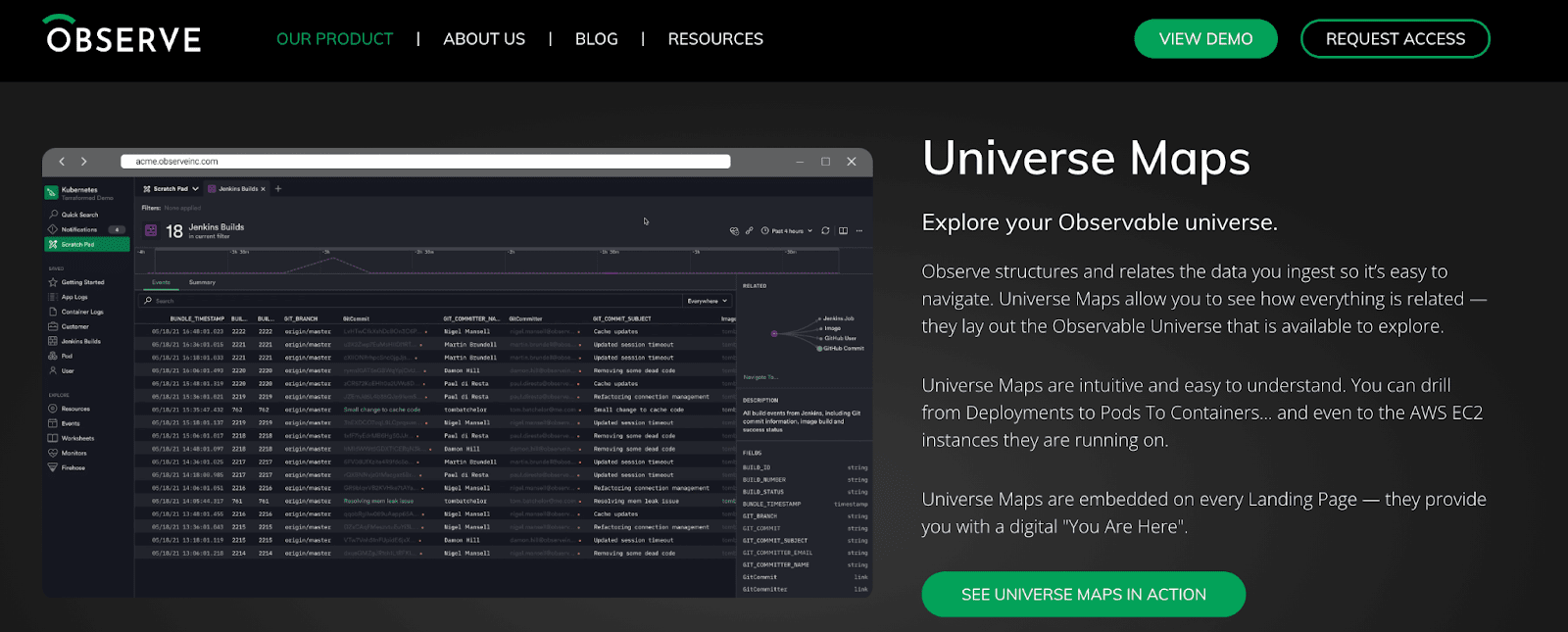 Observe provides users with structured logging management within an intuitive and responsive analytics dashboard. Their platform functionality also extends to include the management of metrics and traces to provide essential added context to your analysis.
Observe provides users with structured logging management within an intuitive and responsive analytics dashboard. Their platform functionality also extends to include the management of metrics and traces to provide essential added context to your analysis.
Key Features:
- Observe structures
- Worksheets
- Alerting
- Portals
35. LogRhythm
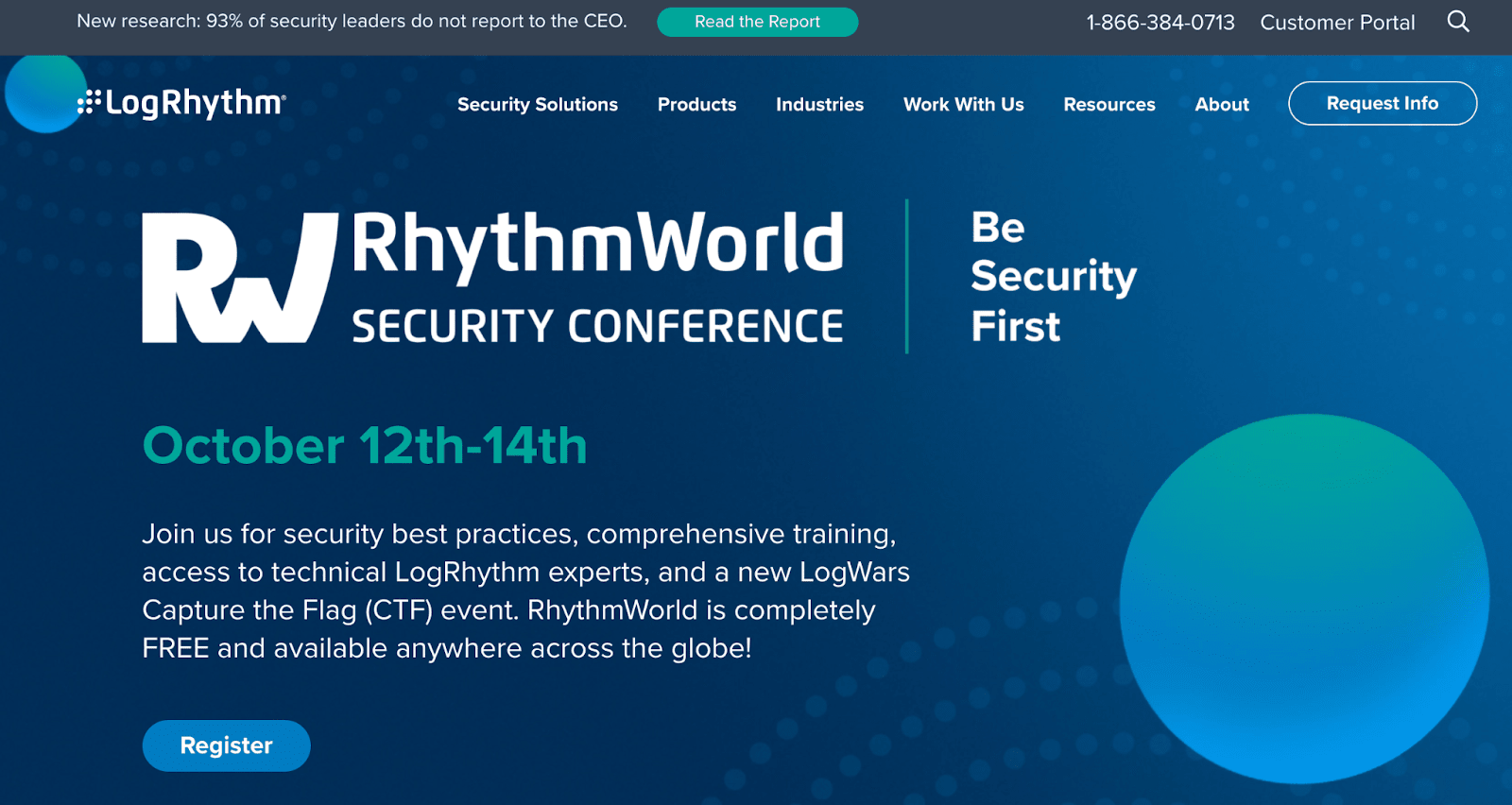 LogRhythm’s logging analysis tool enables users to scale their data collection and analytics activities. LogRhythm also gives users the option to explore their NextGen SIEM platform for users with more demanding security requirements.
LogRhythm’s logging analysis tool enables users to scale their data collection and analytics activities. LogRhythm also gives users the option to explore their NextGen SIEM platform for users with more demanding security requirements.
Key Features:
- Enforce continuous compliance
- Unstructured search
- Normalise log data
- Intelligent archiving
36. Logary
 Logary offers an open-source logging solution that offers visibility on the performance of applications. Open source tools are often preferred over proprietary solutions due to being suited for speed, flexibility and their ability to attract talented contributors who are willing to invest time to maintain technology projects they are passionate about.
Logary offers an open-source logging solution that offers visibility on the performance of applications. Open source tools are often preferred over proprietary solutions due to being suited for speed, flexibility and their ability to attract talented contributors who are willing to invest time to maintain technology projects they are passionate about.
Key Features:
- App metric and log analysis
- Never throw exceptions
- F# idiomatic code
37. Loggly
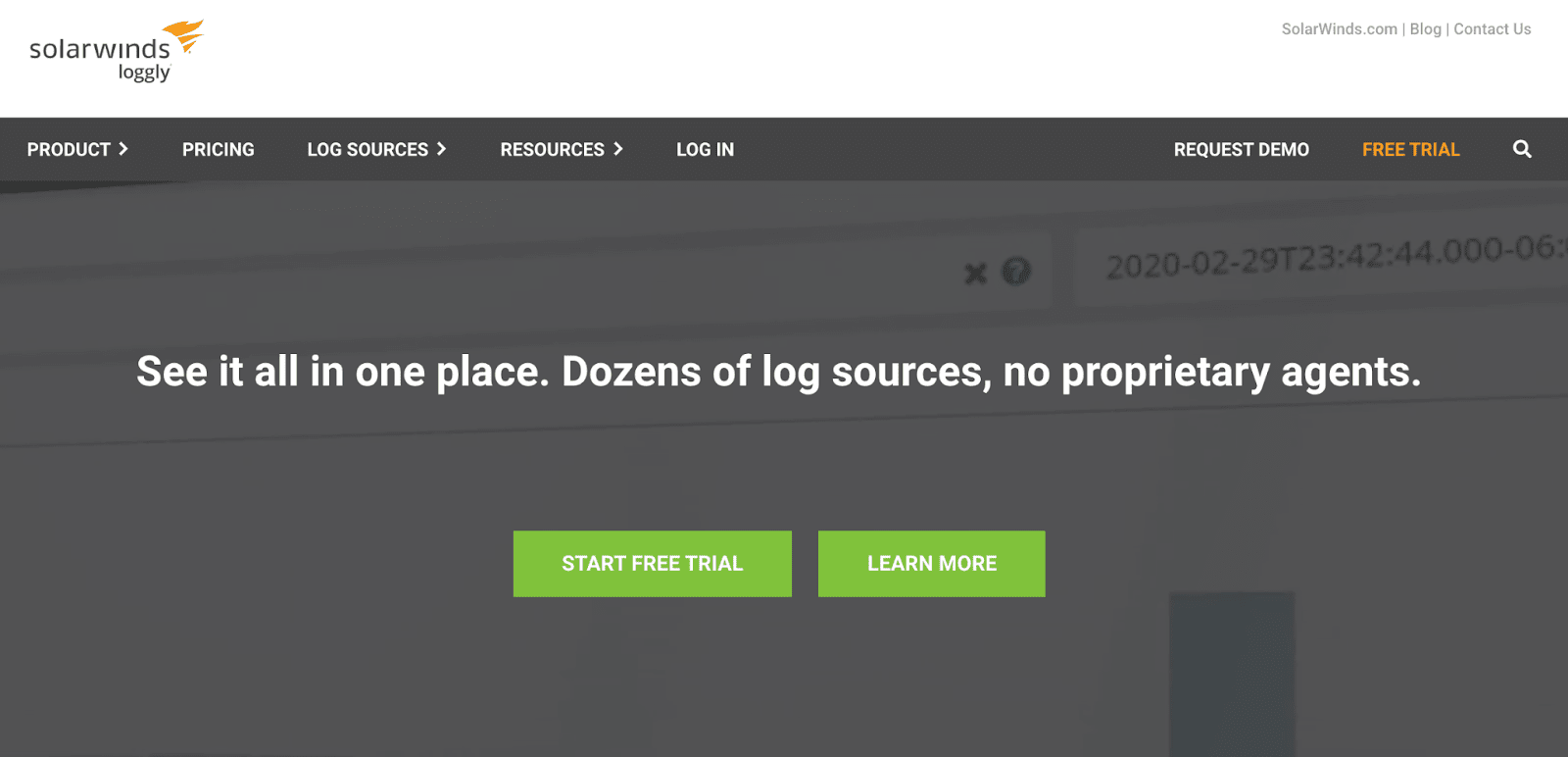 Loggly’s server log management platform is another SolarWinds backed solution for ingesting data from a variety of sources. Loggly can be used across a large number of use cases including for Meteor, Java, IIS, Docker and Apache logging.
Loggly’s server log management platform is another SolarWinds backed solution for ingesting data from a variety of sources. Loggly can be used across a large number of use cases including for Meteor, Java, IIS, Docker and Apache logging.
Key Features:
- Automated log summaries
- Custom derived fields
- Unlimited users
- Email alerting
38. Cloudlytics
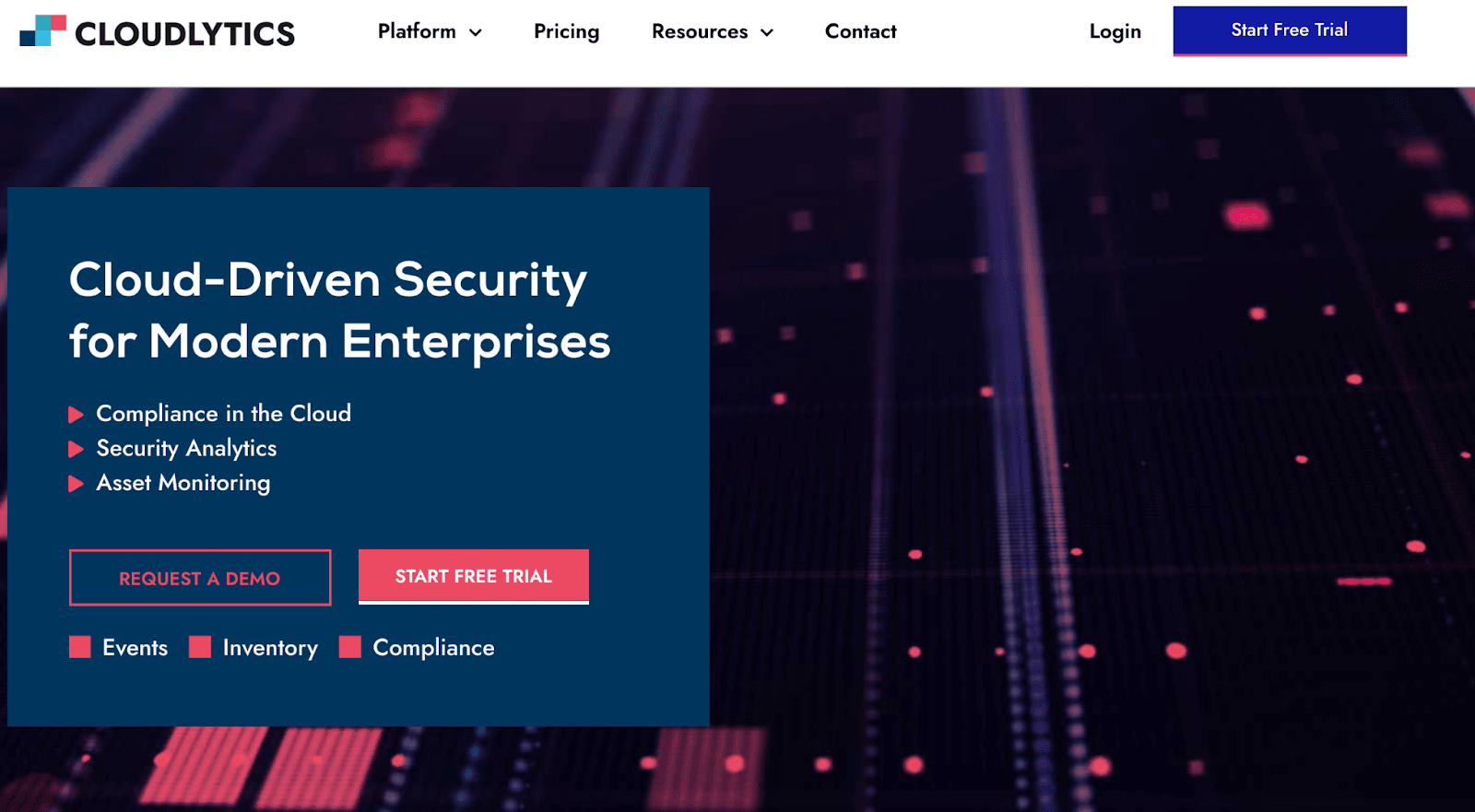 Cloudlytics is a cloud-agnostic platform that offers improved visibility of AWS, GCP and Azure infrastructure. Their log management features are most often used for compliance and auditing governance.
Cloudlytics is a cloud-agnostic platform that offers improved visibility of AWS, GCP and Azure infrastructure. Their log management features are most often used for compliance and auditing governance.
Key Features:
- 150+ native integrations
- Predefined dashboards
- Access management
- Asset monitoring
39. SenseLogs
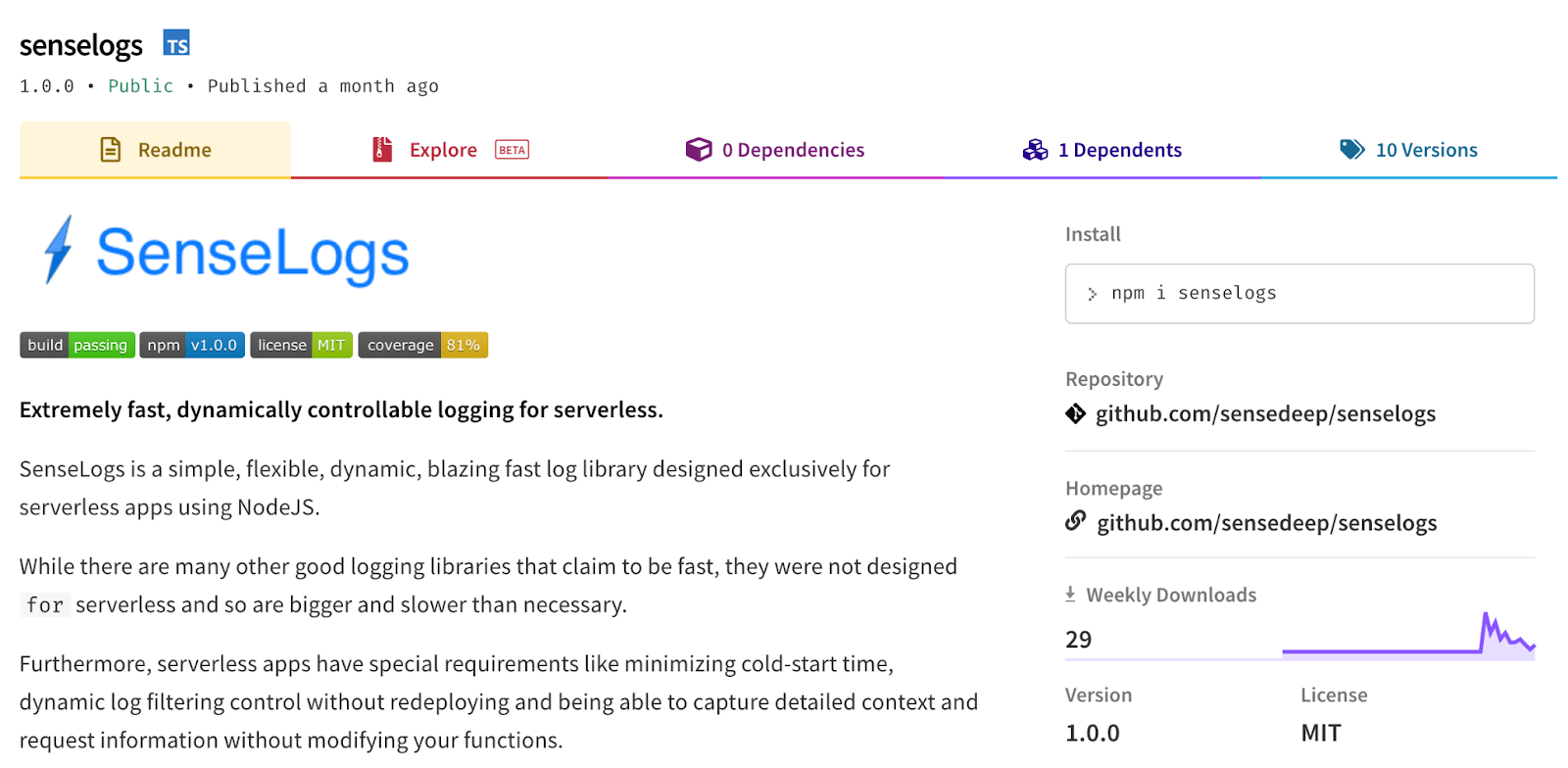 SenseLogs is an open-source log library built for NodeJS serverless app logging. Logging libraries that are not built with serverless applications in mind may not be fast enough to meet the demands of this use case. Additional considerations also have to be made to consider factors such as reducing cold-start time and ensuring detailed context of logs is preserved.
SenseLogs is an open-source log library built for NodeJS serverless app logging. Logging libraries that are not built with serverless applications in mind may not be fast enough to meet the demands of this use case. Additional considerations also have to be made to consider factors such as reducing cold-start time and ensuring detailed context of logs is preserved.
Key Features:
- CloudWatch log viewer
- Blazing fast log library
- Flexible log channels
- Log sampling
40. Syslog-ng
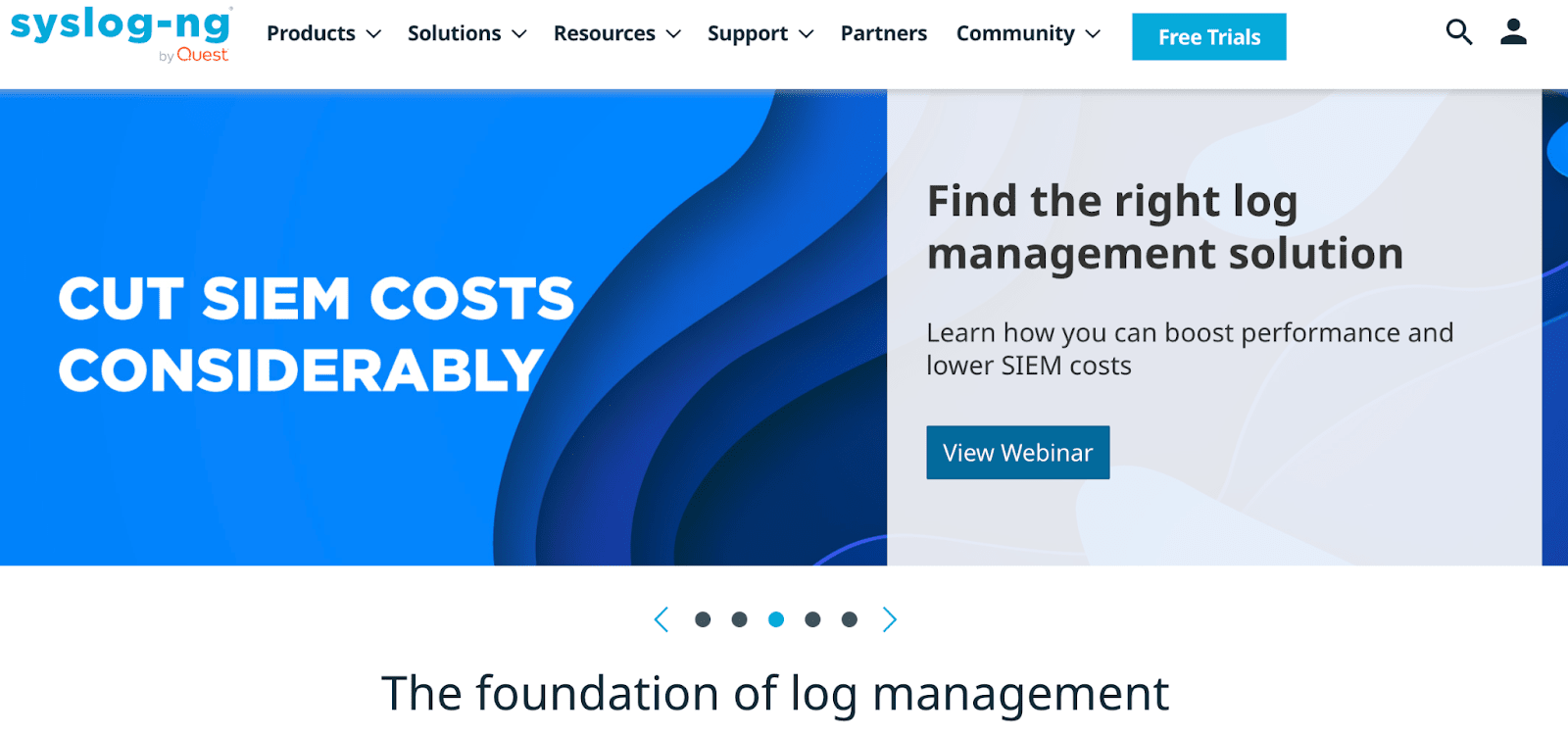 Syslog-ng seeks to use log management to improve the performance of your current SIEM by improving the quality of data ingested for reporting, monitoring and alerting purposes The platform is built for big data ingestion and offers a number of ways for users to send their data from common sources such as Hadoop, MongoDB, Kafka and Elasticsearch.
Syslog-ng seeks to use log management to improve the performance of your current SIEM by improving the quality of data ingested for reporting, monitoring and alerting purposes The platform is built for big data ingestion and offers a number of ways for users to send their data from common sources such as Hadoop, MongoDB, Kafka and Elasticsearch.
Key Features:
- Open source log management
- Big data ingestion
- Optimise SIEM
- Rapid search
41. XpoLog
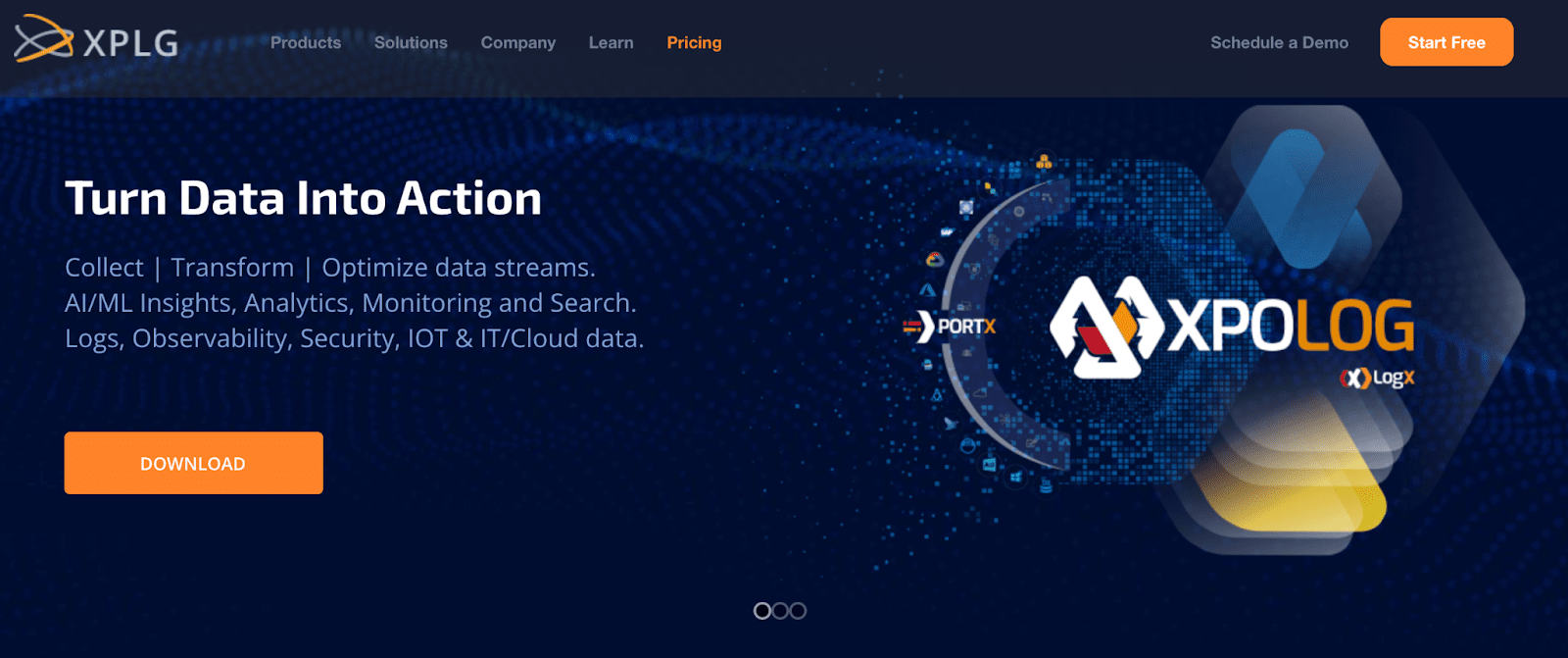 XpoLog is a log management and analysis platform that is built for transforming and optimising data streams from AI and machine learning applications, security platforms & IoT devices. Their new Logx offering aims to use anomaly detection for the discovery of previously unknown IT issues before they become critical incidents.
XpoLog is a log management and analysis platform that is built for transforming and optimising data streams from AI and machine learning applications, security platforms & IoT devices. Their new Logx offering aims to use anomaly detection for the discovery of previously unknown IT issues before they become critical incidents.
Key Features:
- Collect, parse, enrich & route log data
- Deep text inspection
- Ship data to ELK
- SIEM
42. Webspy Vantage
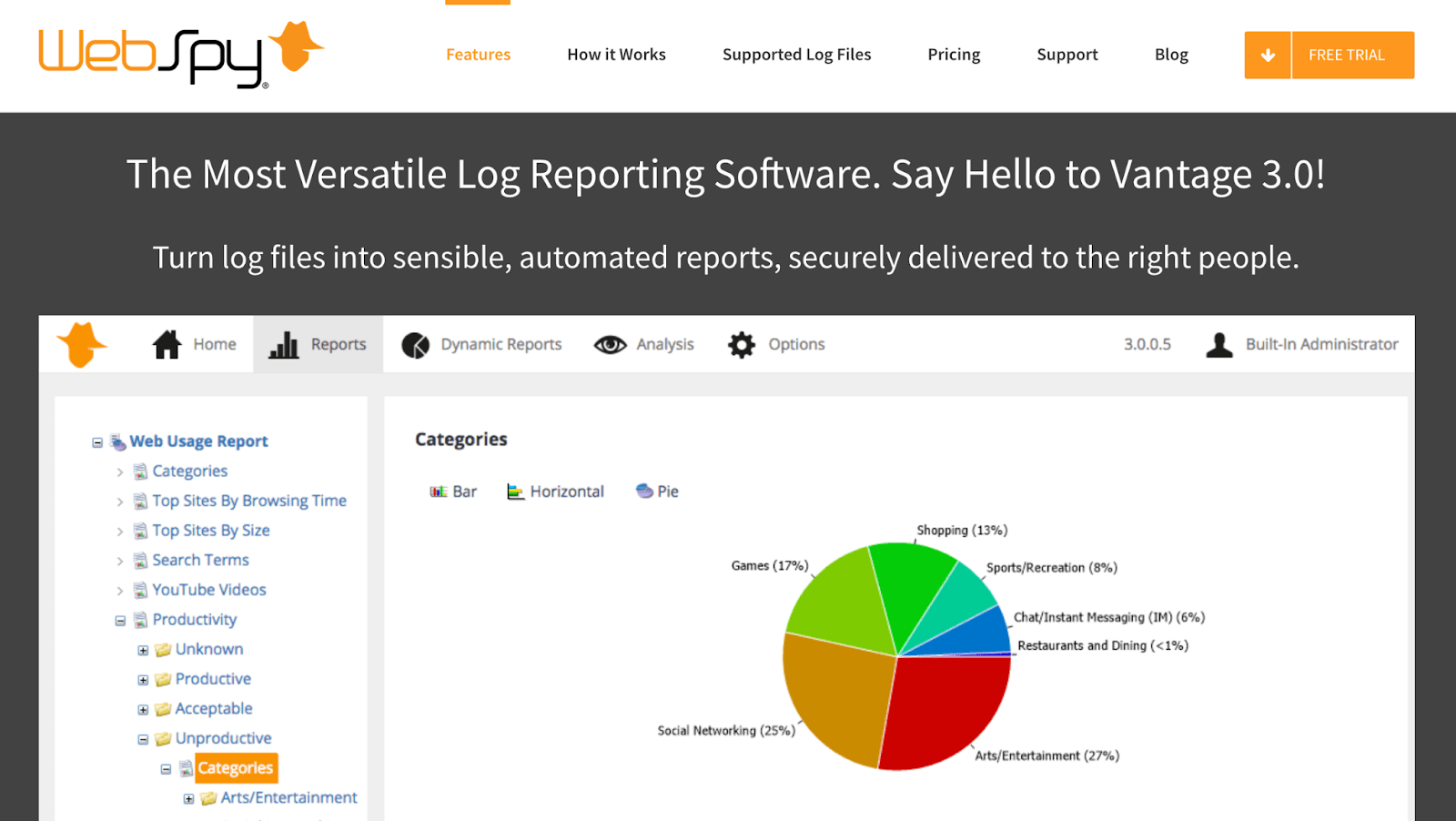 Vantage is a log reporting dashboard that allows engineers to design their own fully automated reports in order to deliver their data-driven insights to key decision makers and team members seamlessly. The release of Vantage 3.0 welcomes several improvements including faster reporting, a redesign of the UI and now also supports the sending of logs over SCP & SFTP.
Vantage is a log reporting dashboard that allows engineers to design their own fully automated reports in order to deliver their data-driven insights to key decision makers and team members seamlessly. The release of Vantage 3.0 welcomes several improvements including faster reporting, a redesign of the UI and now also supports the sending of logs over SCP & SFTP.
Key Features:
- Internet usage reporting
- Automated reports
- SFTP support
- Import logs
43. SolarWinds Log Analyzer
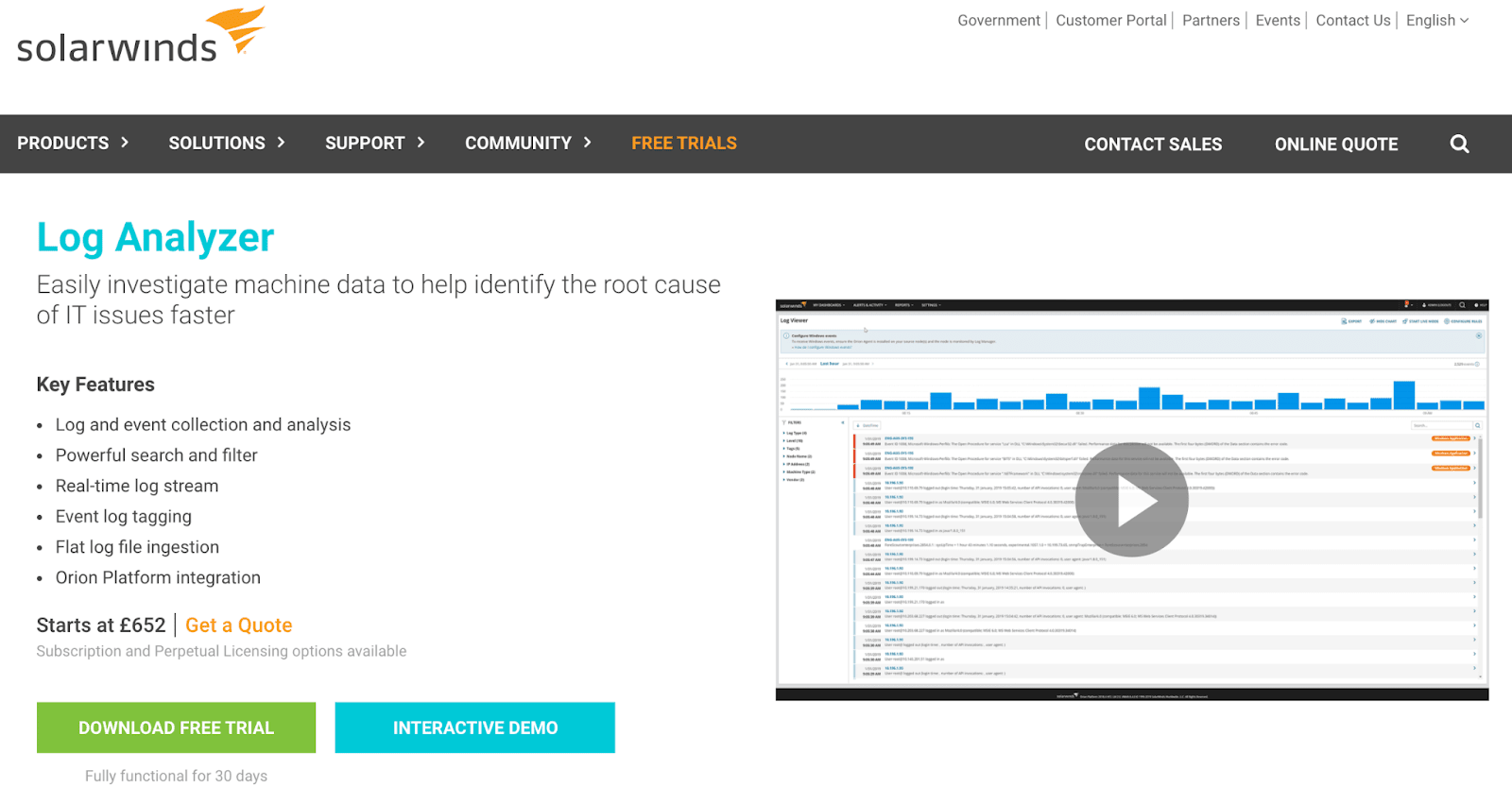 Solarwind’s network log software allows users to use machine data for root cause analysis of many IT issues. The log file types their tool is able to handle include those from workstations, servers, IDS/IPS & firewalls.
Solarwind’s network log software allows users to use machine data for root cause analysis of many IT issues. The log file types their tool is able to handle include those from workstations, servers, IDS/IPS & firewalls.
Key Features:
- Application management
- Database management
- Network monitoring
- ITSM platform
- Log analyser
44. Goaccess
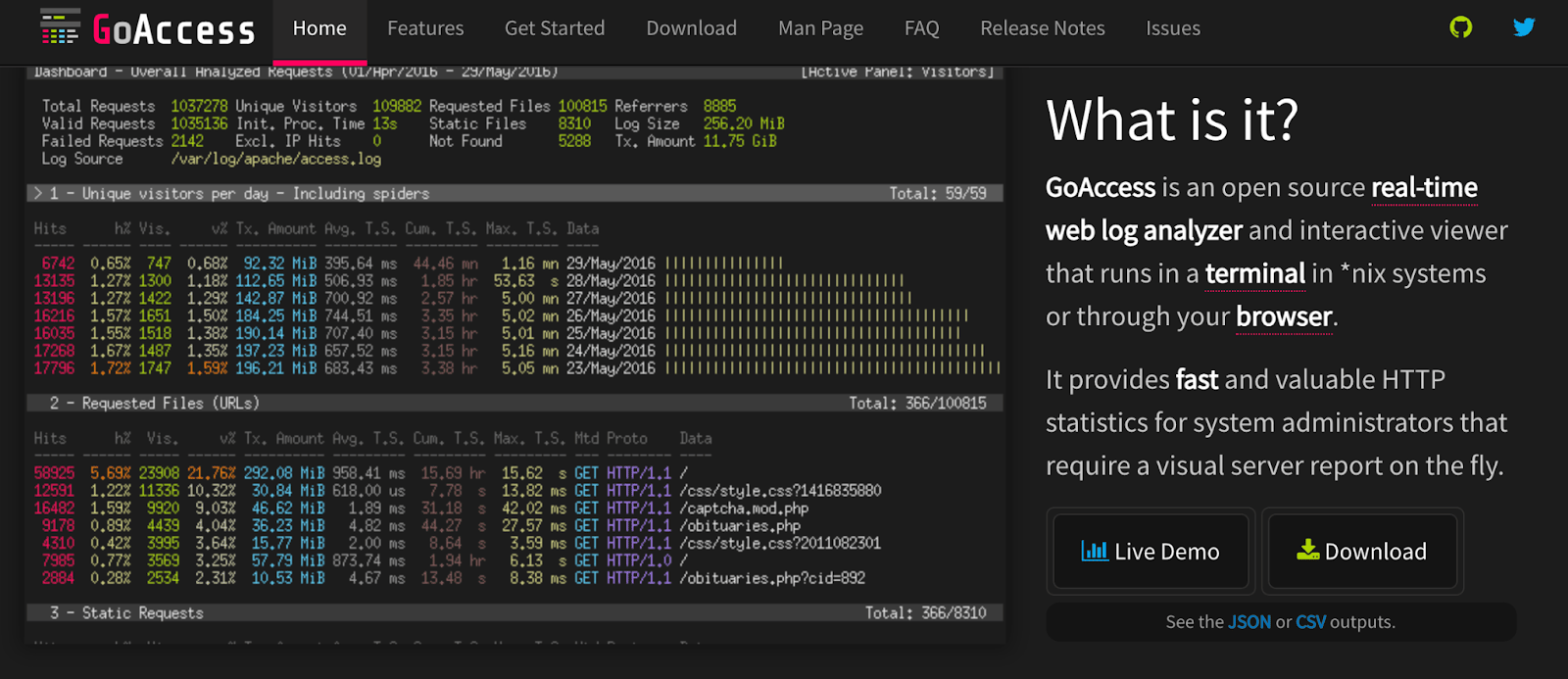 If you require a free log management tool built on open source software and don’t mind the additional cost of hosting the software in-house then the web log analyser offered by Goaccess may be the solution that best fits your requirements. The leading benefits of using this platform include; application response time tracking, incremental log processing and minimal configuration needed in order to get started.
If you require a free log management tool built on open source software and don’t mind the additional cost of hosting the software in-house then the web log analyser offered by Goaccess may be the solution that best fits your requirements. The leading benefits of using this platform include; application response time tracking, incremental log processing and minimal configuration needed in order to get started.
Key Features:
- Minimal configuration
- Terminal dashboards
- Web log analyser
- HTTP statistics
45. Seagence
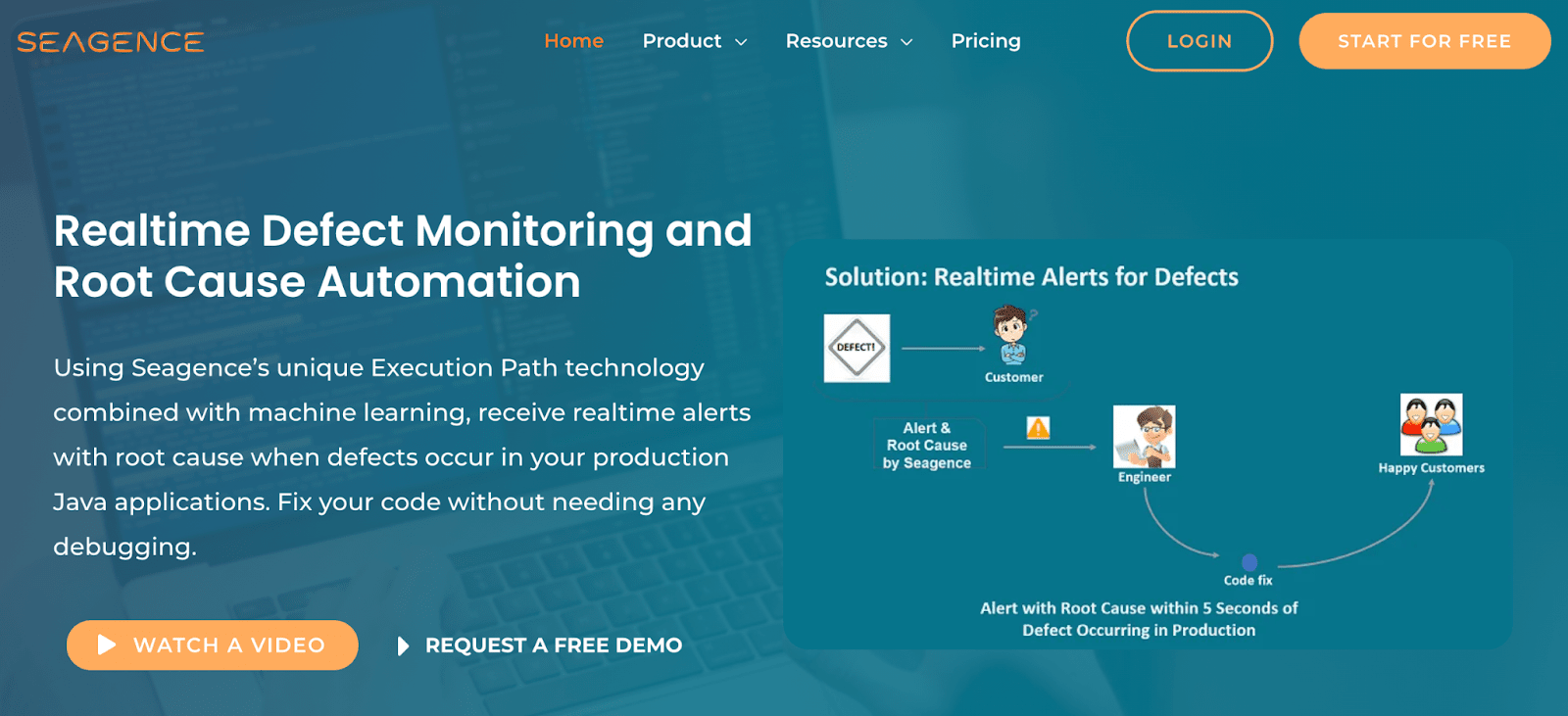 Seagence’s software logging tool offers a modern solution for defect monitoring and provides extensive detail into the debugging process, making it highly useful to Developers in need of effective troubleshooting. Their solution has also implemented machine learning (ML) to bring unique execution path technology to assist and power their real-time alerting feature.
Seagence’s software logging tool offers a modern solution for defect monitoring and provides extensive detail into the debugging process, making it highly useful to Developers in need of effective troubleshooting. Their solution has also implemented machine learning (ML) to bring unique execution path technology to assist and power their real-time alerting feature.
Key Features:
- Source Integrations
- Detect defects
- Dashboards
- Alerting
46. Rookout
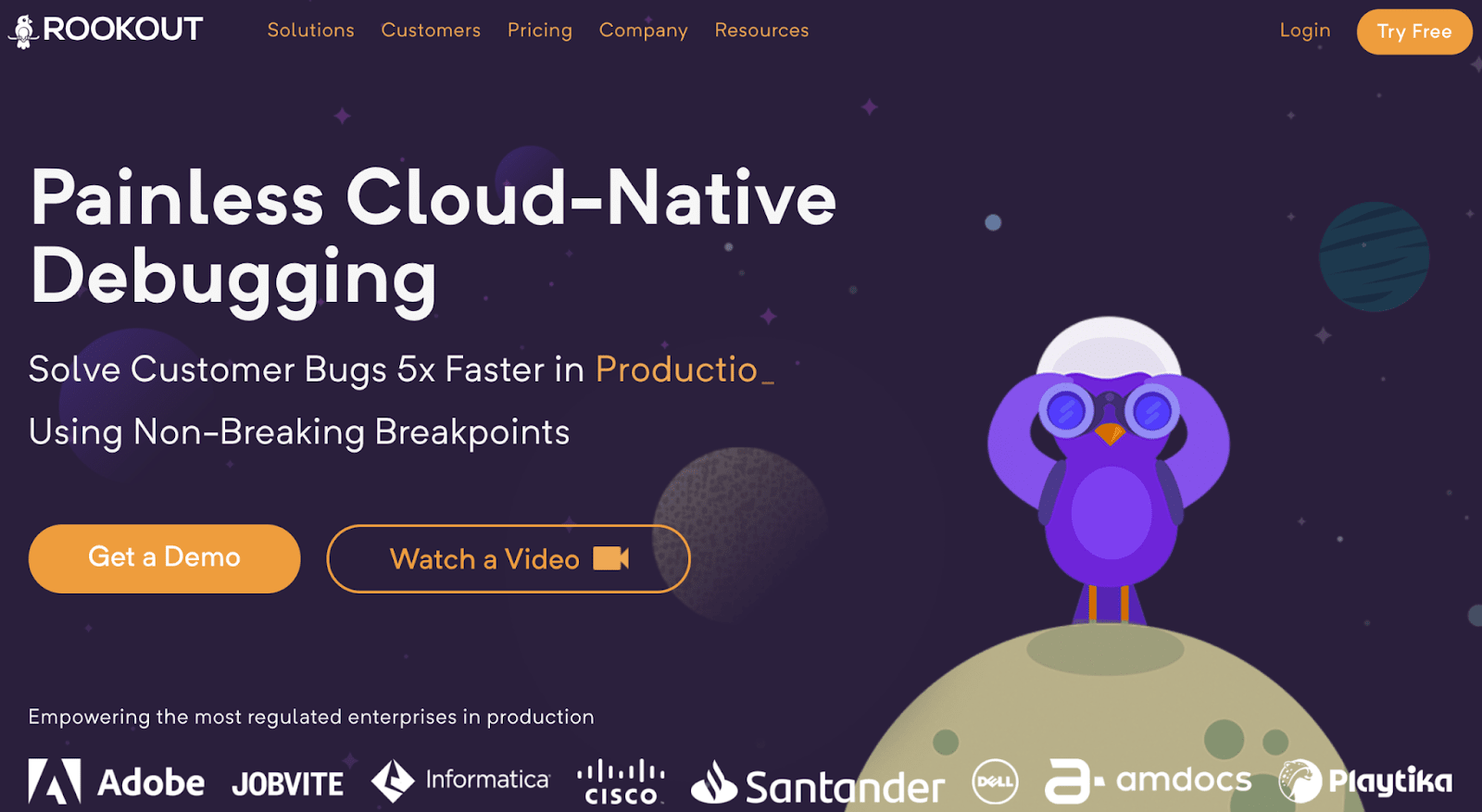 Rookout’s log aggregation tool is an intuitively designed service that enables users to not only stream logs but also engages a dynamic log verbosity filter for an improved level of control within filtering.
Rookout’s log aggregation tool is an intuitively designed service that enables users to not only stream logs but also engages a dynamic log verbosity filter for an improved level of control within filtering.
Key Features:
- Dynamic observability
- Git Integration
- Debug in live
- 24/7 support
47. Rapid7
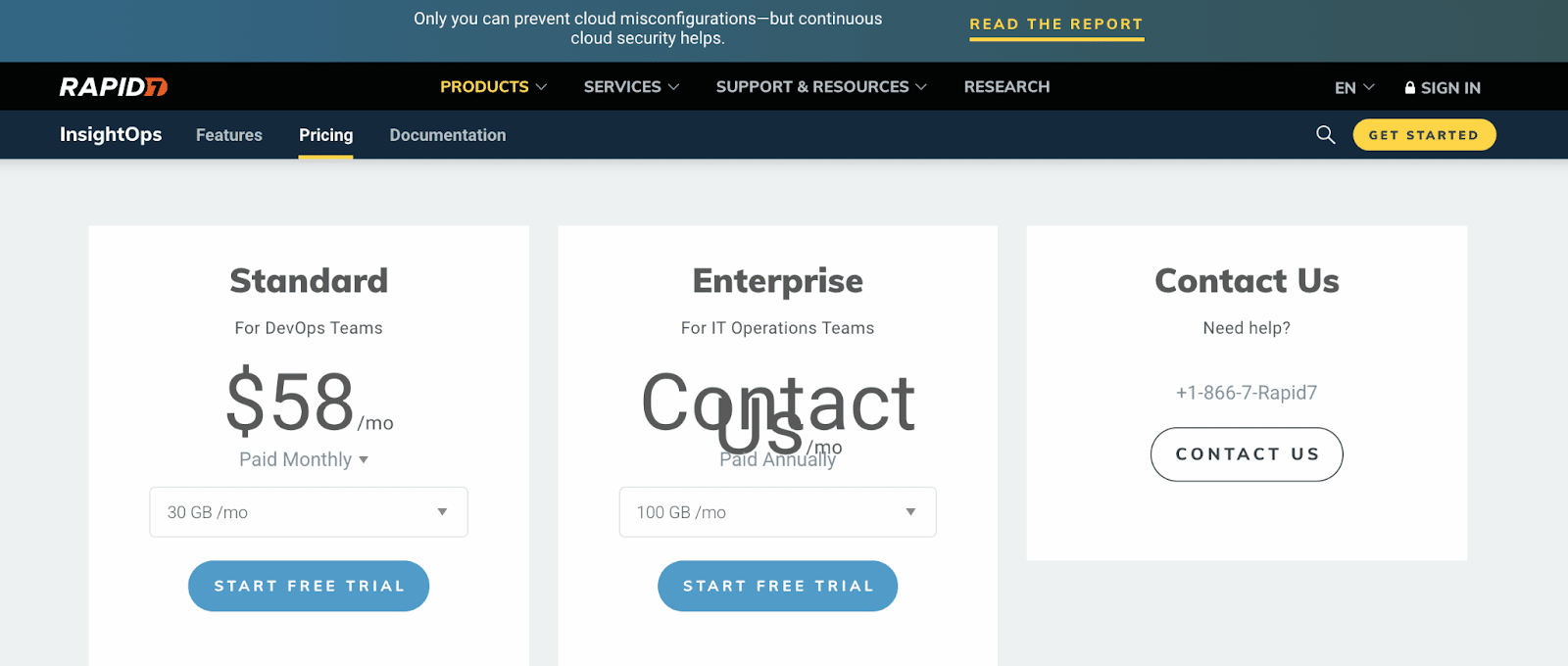 Rapid7 provides log correlation tools that help its users to begin collecting and centralising their logs within five minutes. Rapid7’s offering of InsightOps takes care of the key functionality required of log management by allowing users to visualise, search, alert and generate on-demand log files from a variety of assets.
Rapid7 provides log correlation tools that help its users to begin collecting and centralising their logs within five minutes. Rapid7’s offering of InsightOps takes care of the key functionality required of log management by allowing users to visualise, search, alert and generate on-demand log files from a variety of assets.
Key Features:
- Vulnerability management
- Application security
- Threat intelligence
- Orchestration
48. ERA Search
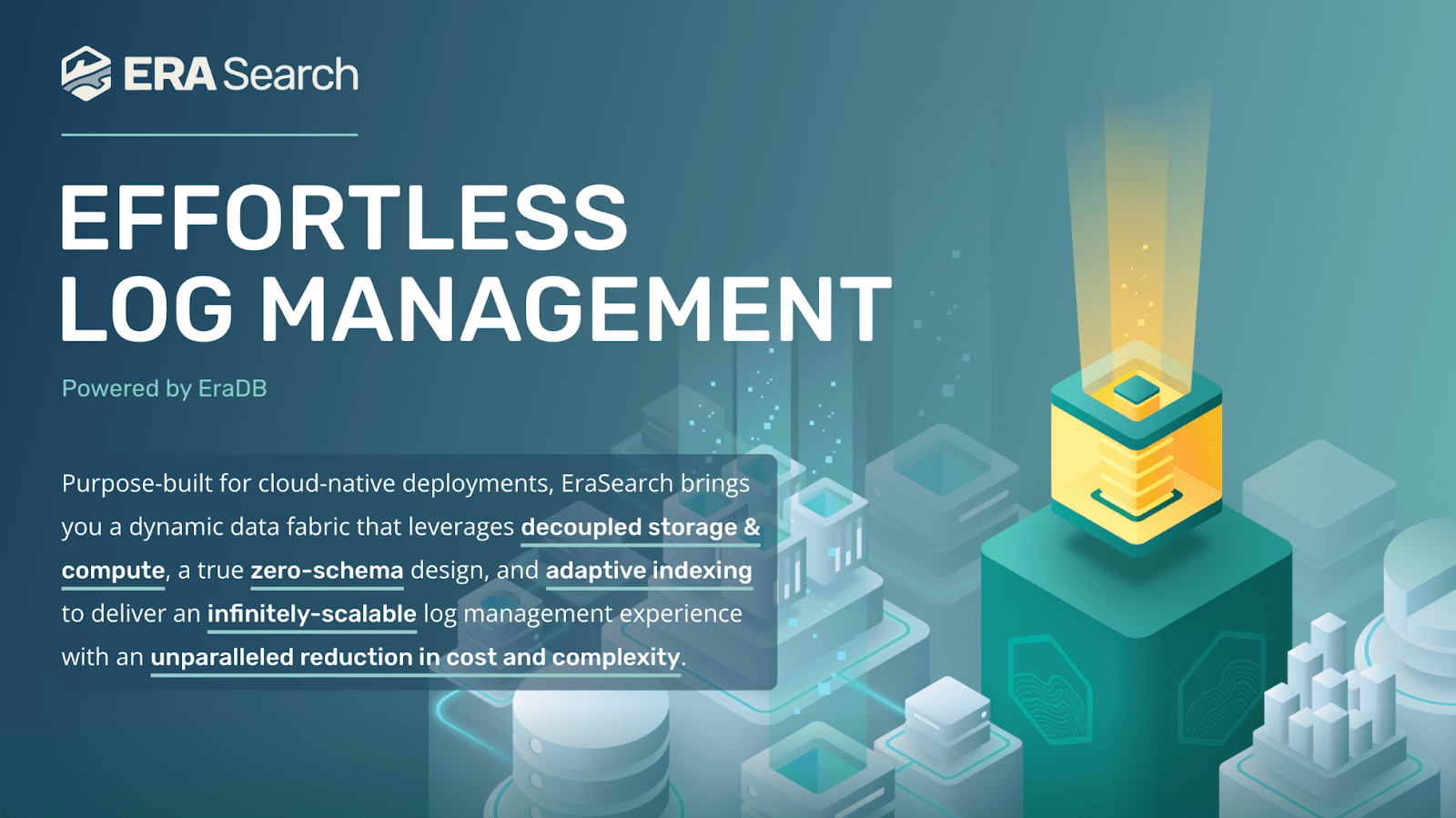 ERA’s log reading tool is built with the cloud in mind and as a result of this focus are able to provide petabyte-scale log analysis, management and ingestion to their platform users. Their storage boasts benefits from requiring zero schema and is highly configurable to any file type that you require secure storage of.
ERA’s log reading tool is built with the cloud in mind and as a result of this focus are able to provide petabyte-scale log analysis, management and ingestion to their platform users. Their storage boasts benefits from requiring zero schema and is highly configurable to any file type that you require secure storage of.
Key Features:
- 1y retention with an annual contract
- Zero schema storage
- Instant scaling
49. Chaossearch
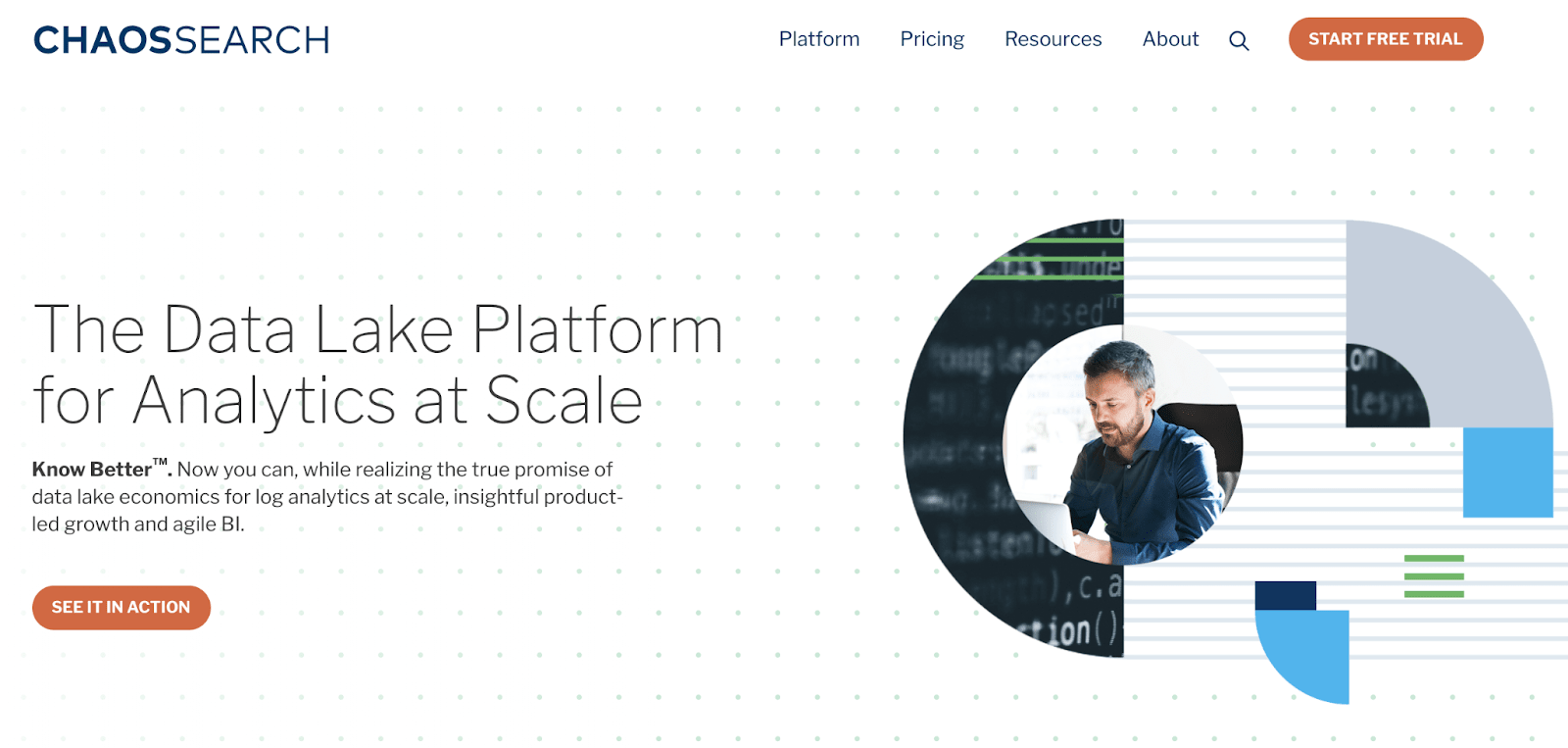 The log processing tool provided by Chaossearch serves as yet another “data lake” based solution which is able to be used for not only IT monitoring but also for business intelligence (BI) purposes. The architecture of Chaossearch’s logging solution is built upon best in class open-source software such as Kibana (providing data visualisation capabilities) and Elasticsearch (as a search and storage backend).
The log processing tool provided by Chaossearch serves as yet another “data lake” based solution which is able to be used for not only IT monitoring but also for business intelligence (BI) purposes. The architecture of Chaossearch’s logging solution is built upon best in class open-source software such as Kibana (providing data visualisation capabilities) and Elasticsearch (as a search and storage backend).
Key Features:
- Unlimited data retention
- Unlimited queries
- Unlimited users
- Data refinery
50. ObservIQ
 ObservIQ’s log file analysis tool provides intuitive data visualisations to developers that require fast setup, transparent pricing and effective log file processing as leading features in their solution of choice.
ObservIQ’s log file analysis tool provides intuitive data visualisations to developers that require fast setup, transparent pricing and effective log file processing as leading features in their solution of choice.
Key Features:
- 60+ data source integrations
- Open telemetry
- Alerting
- Live tail
51. Apex Software
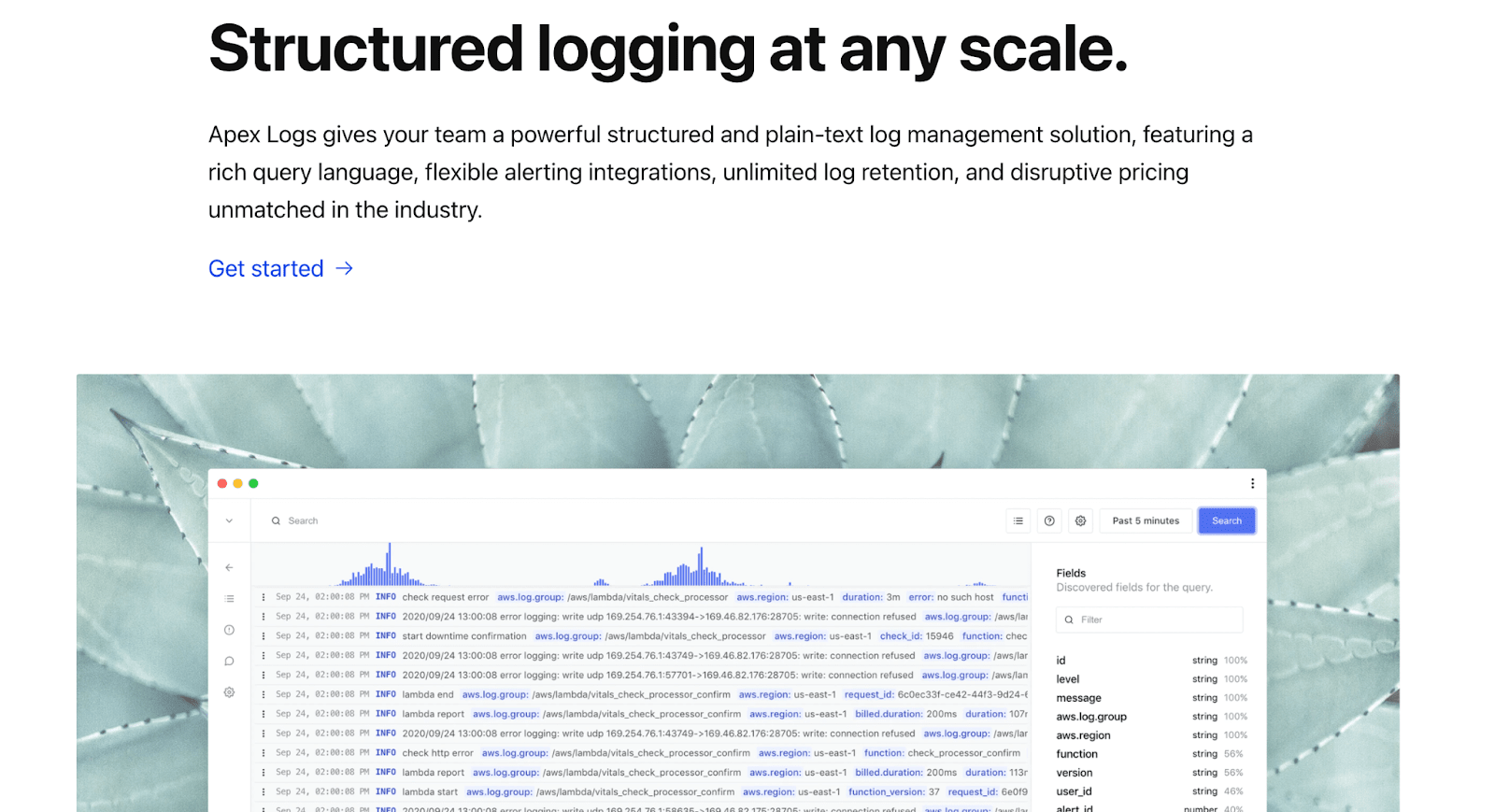 This structured logging solution gives teams the ability to use rich queries, alerting and unlimited retention to manage their logs. Unfortunately, one drawback of this tool is that Apex does not provide hosting for this log parsing and processing platform.
This structured logging solution gives teams the ability to use rich queries, alerting and unlimited retention to manage their logs. Unfortunately, one drawback of this tool is that Apex does not provide hosting for this log parsing and processing platform.
Key Features:
- Flexible alerting integrations
- Unlimited log retention
- Uptime monitoring
- Structured logging
52. LogDNA
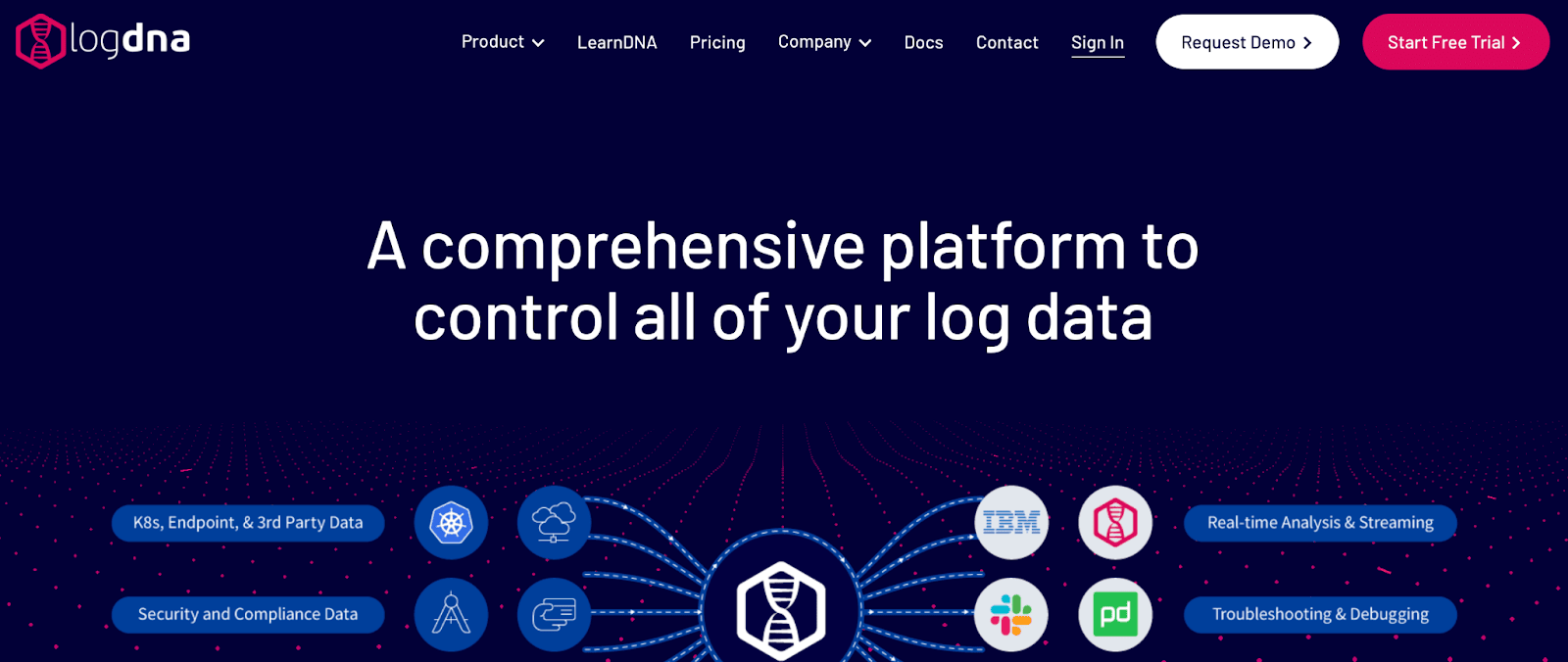 LogDNA’s logging platform provides a wealth of data source integrations for programming languages, platforms, operating systems & different Syslog types. The platform provides a complete solution to highlight the actionable insights from previously unstructured and disparate data sources from across your operating environment.
LogDNA’s logging platform provides a wealth of data source integrations for programming languages, platforms, operating systems & different Syslog types. The platform provides a complete solution to highlight the actionable insights from previously unstructured and disparate data sources from across your operating environment.
Key Features:
- Long-term retention
- Real-time streaming
- Graph alerts
- Debugging
53. New Relic
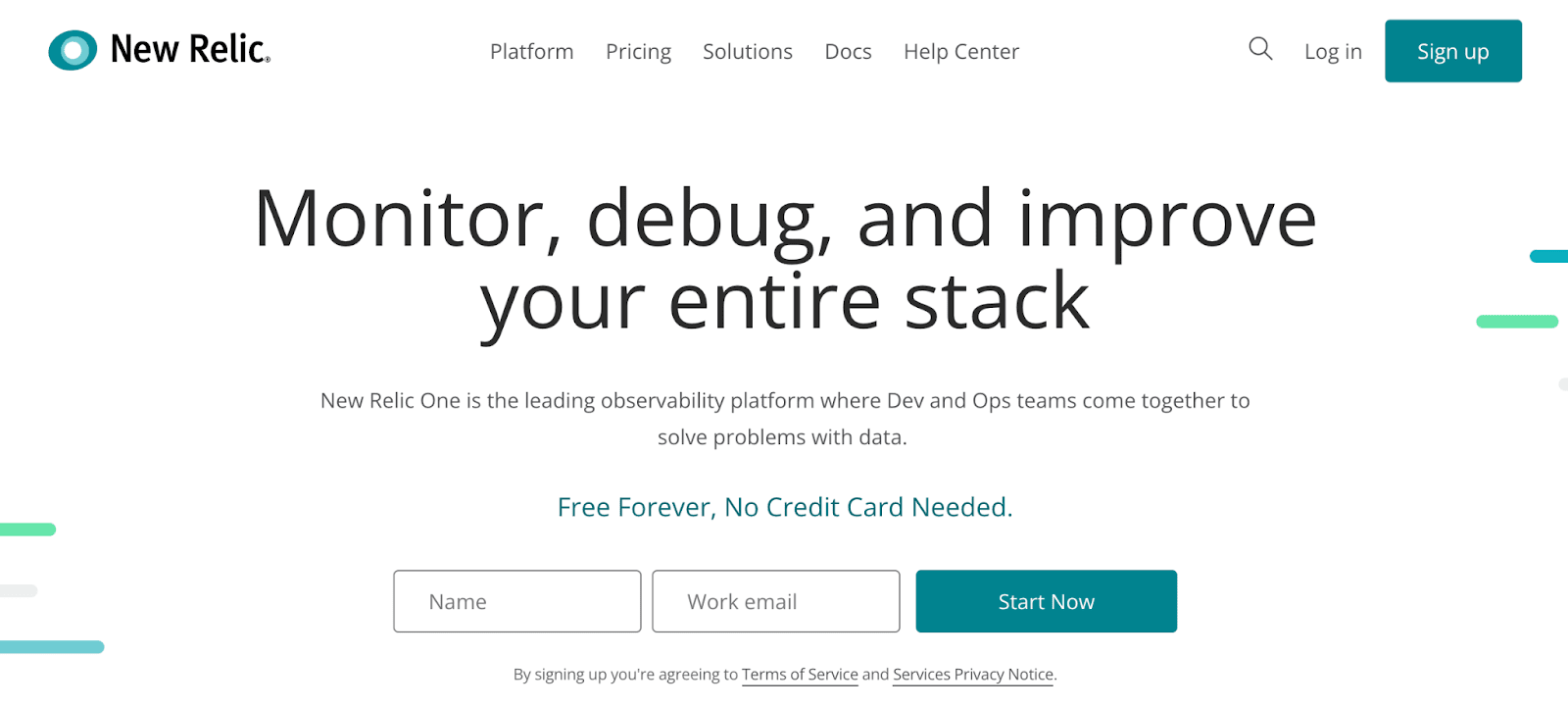 New Relic offers a log management system that is compatible with sending logs from AWS & Microsoft Azure, among other leading cloud providers. The platform was initially created all the way back in 2008 which indicates that New Relic is a company with long term experience in the competitive market environment of log management.
New Relic offers a log management system that is compatible with sending logs from AWS & Microsoft Azure, among other leading cloud providers. The platform was initially created all the way back in 2008 which indicates that New Relic is a company with long term experience in the competitive market environment of log management.
Key Features:
- Incident intelligence events
- Unlimited querying
- Synthetics checks
- APM
54. WhatsUp Gold
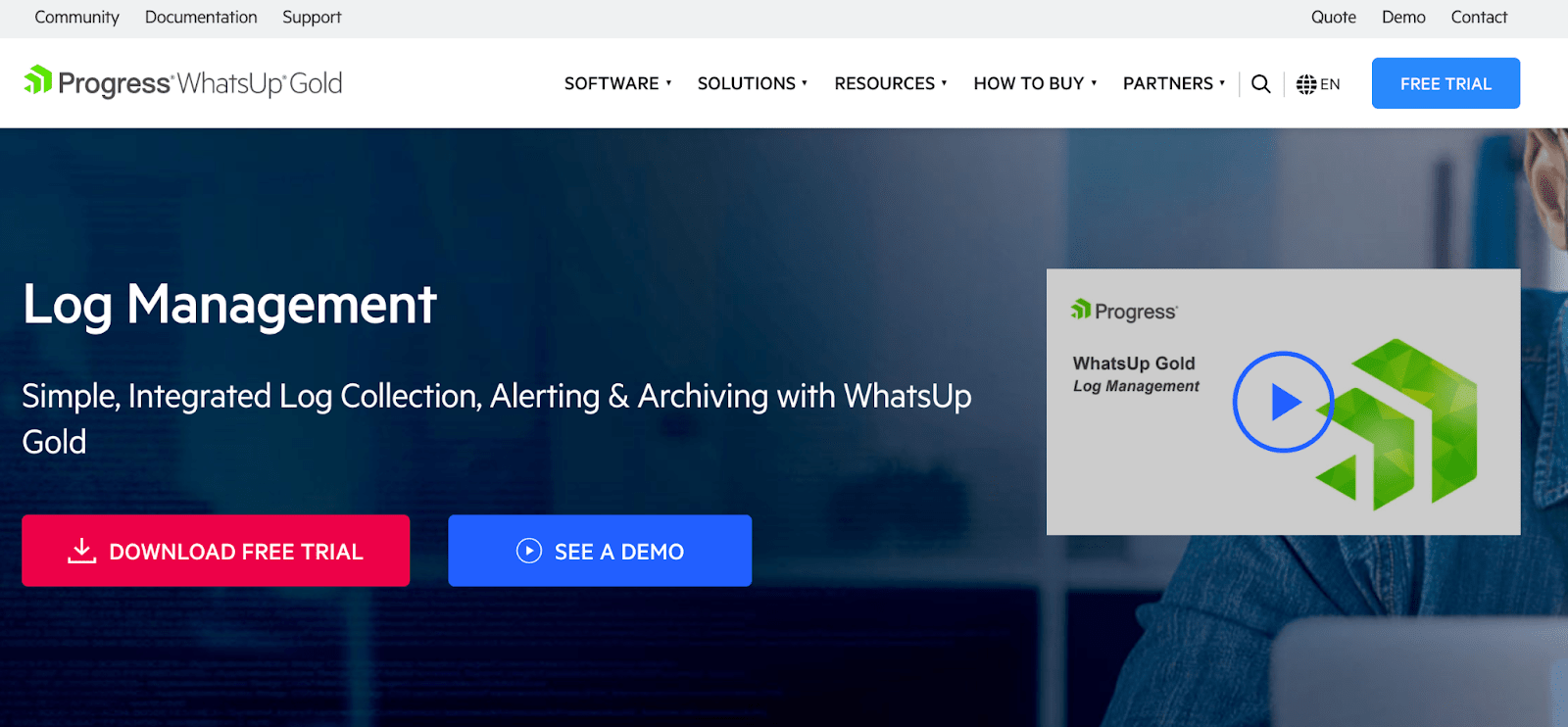 Unlike some of the other tools cited, WhatsUp Gold’s log collection tool provides archiving in addition to the expected features of data ingestion and alerting. Being able to archive log data to a third party tool can help your organisation meet compliance requirements such as retention demands levied against those looking to meet CMMC or NIST compliance.
Unlike some of the other tools cited, WhatsUp Gold’s log collection tool provides archiving in addition to the expected features of data ingestion and alerting. Being able to archive log data to a third party tool can help your organisation meet compliance requirements such as retention demands levied against those looking to meet CMMC or NIST compliance.
Key Features:
- Network monitoring
- Log status
- Alerting
- Arching
55. Clone Systems
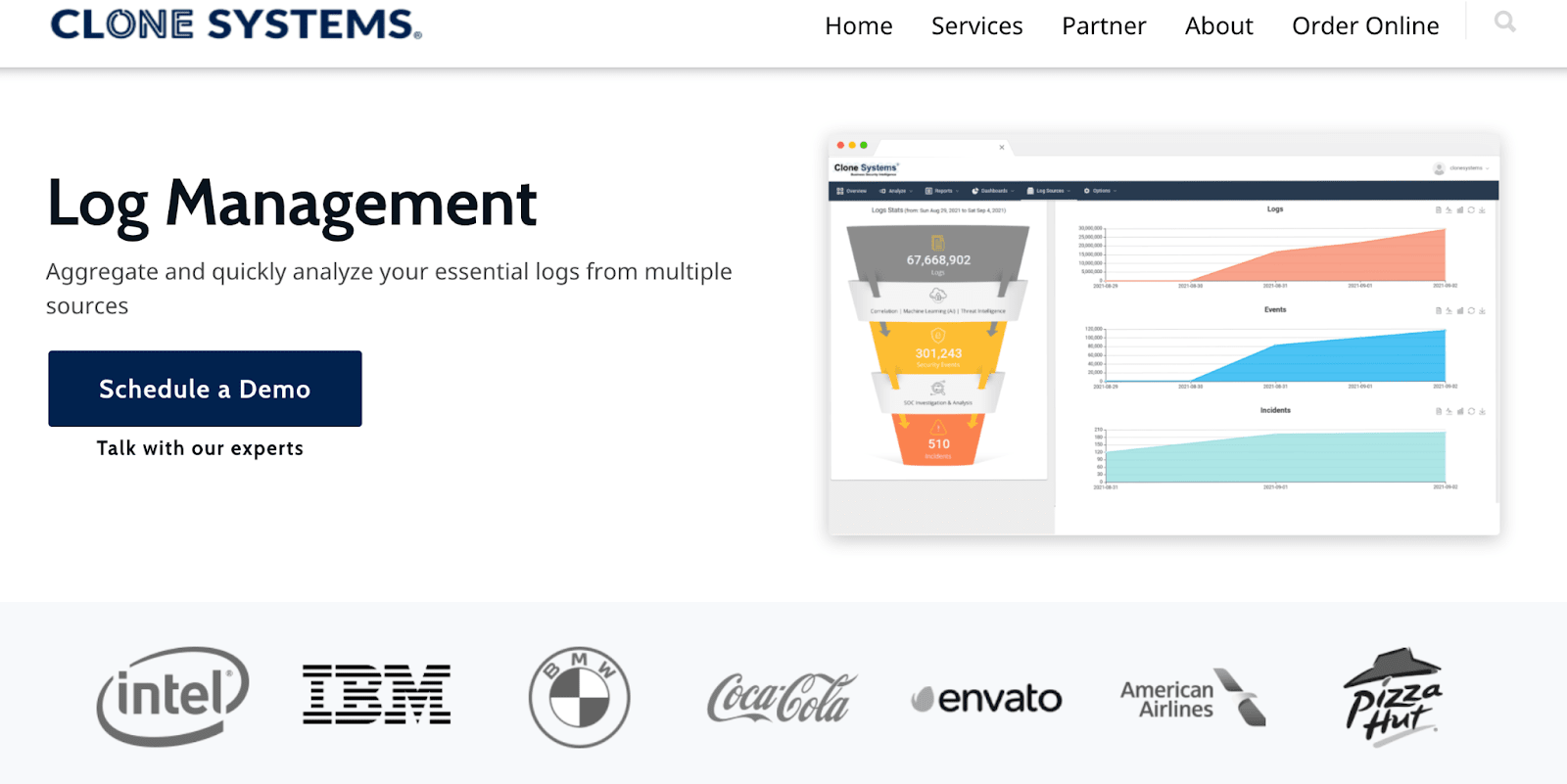 This log management solution provided by Clone Systems allows for the fast aggregation of log file data from numerous disparate sources. The platform makes creating a single portal for storing and analysing multiple log types intuitive and seamless. The Clone System’s UI is able to clearly display Hostname/IP, device type, host group, notification group, log heartbeat checks and log activity status in one of their sample reporting dashboards.
This log management solution provided by Clone Systems allows for the fast aggregation of log file data from numerous disparate sources. The platform makes creating a single portal for storing and analysing multiple log types intuitive and seamless. The Clone System’s UI is able to clearly display Hostname/IP, device type, host group, notification group, log heartbeat checks and log activity status in one of their sample reporting dashboards.
Key Features:
- Offsite long-term storage
- Real-time search
- Aggregate logs
- SOC triaging
56. Snare Solutions
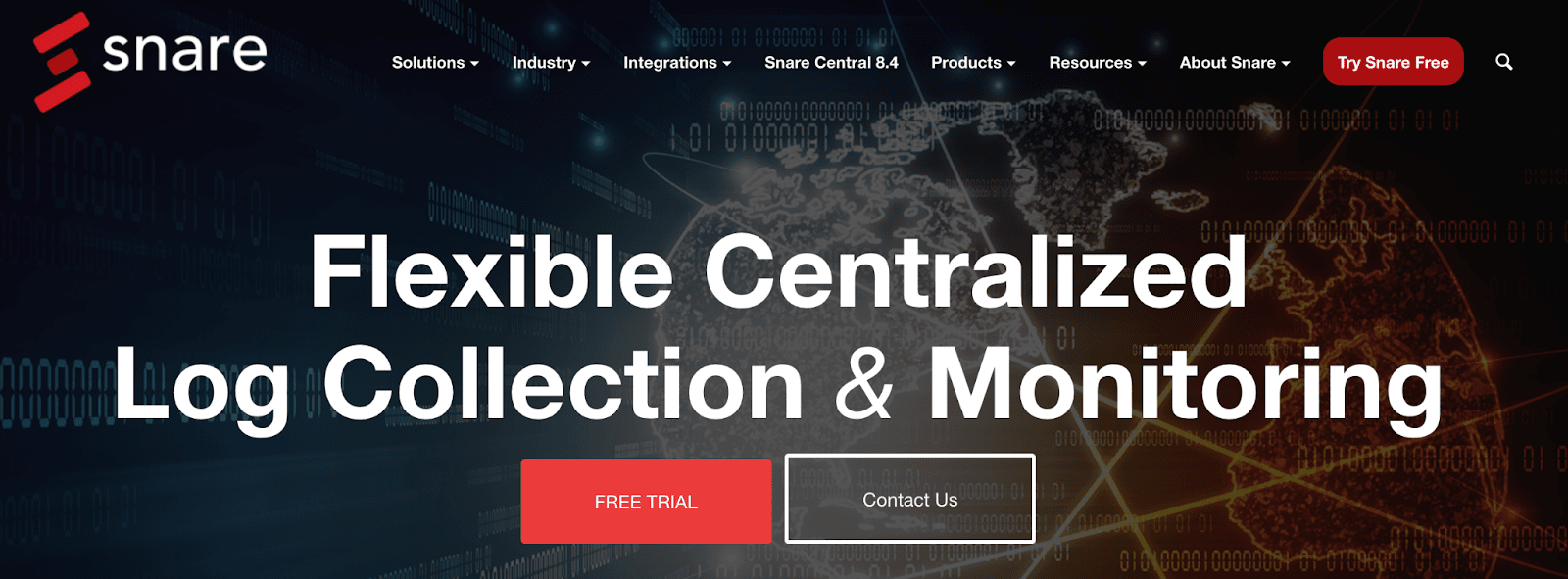 Snare offers a log monitoring system that is most commonly used by MSPs, VARs and technology consultants. The centralised logging platform also enables out of the box compliance reporting so that their users can more readily demonstrate their compliance for several leading international standards.
Snare offers a log monitoring system that is most commonly used by MSPs, VARs and technology consultants. The centralised logging platform also enables out of the box compliance reporting so that their users can more readily demonstrate their compliance for several leading international standards.
Key Features:
- Group policy support
- Compliance reporting
- Centralised logging
- Authentication
57. LanScopeCat
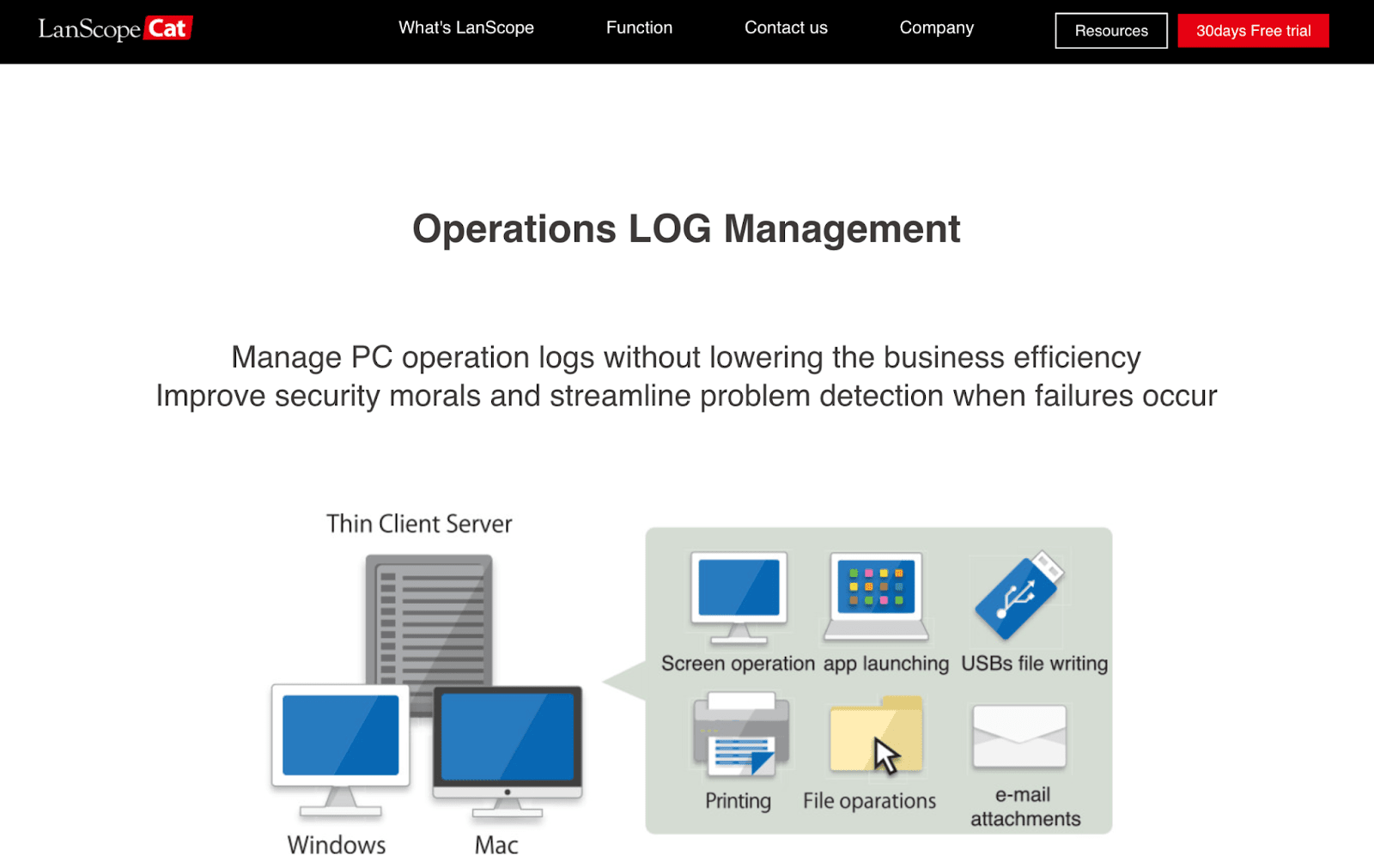 LanScopeCat’s log file management solution is specifically built for managing operations logs to improve visibility for troubleshooting the root cause of errors and identifying security events. Their UI is fully capable of displaying the following event data; group and client name, logon user type, event time, activation time, event status and the name of the program running.
LanScopeCat’s log file management solution is specifically built for managing operations logs to improve visibility for troubleshooting the root cause of errors and identifying security events. Their UI is fully capable of displaying the following event data; group and client name, logon user type, event time, activation time, event status and the name of the program running.
Key Features:
- Application usage management
- Print log management
- User activity report
- Monitor PC logs
58. InTrust
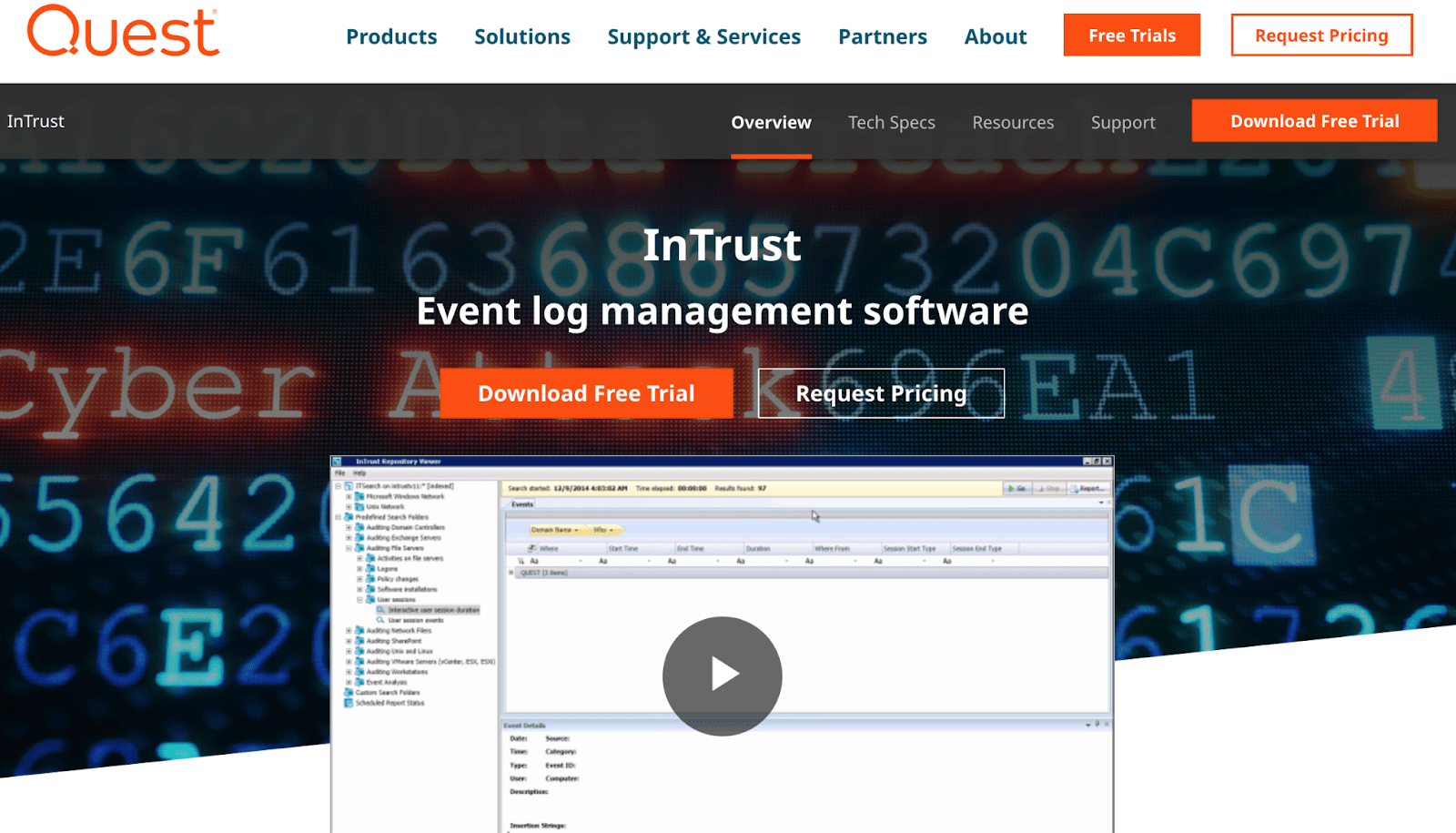 Quest’s InTrust platform offers comprehensive event log management but is primarily used to monitor user workstation and admin activity including logons and logoffs among other similar data types.
Quest’s InTrust platform offers comprehensive event log management but is primarily used to monitor user workstation and admin activity including logons and logoffs among other similar data types.
Key Features:
- Monitor user workstation activity
- Best practice reporting
- Centralise logs
- Alerting
59. LogicMonitor
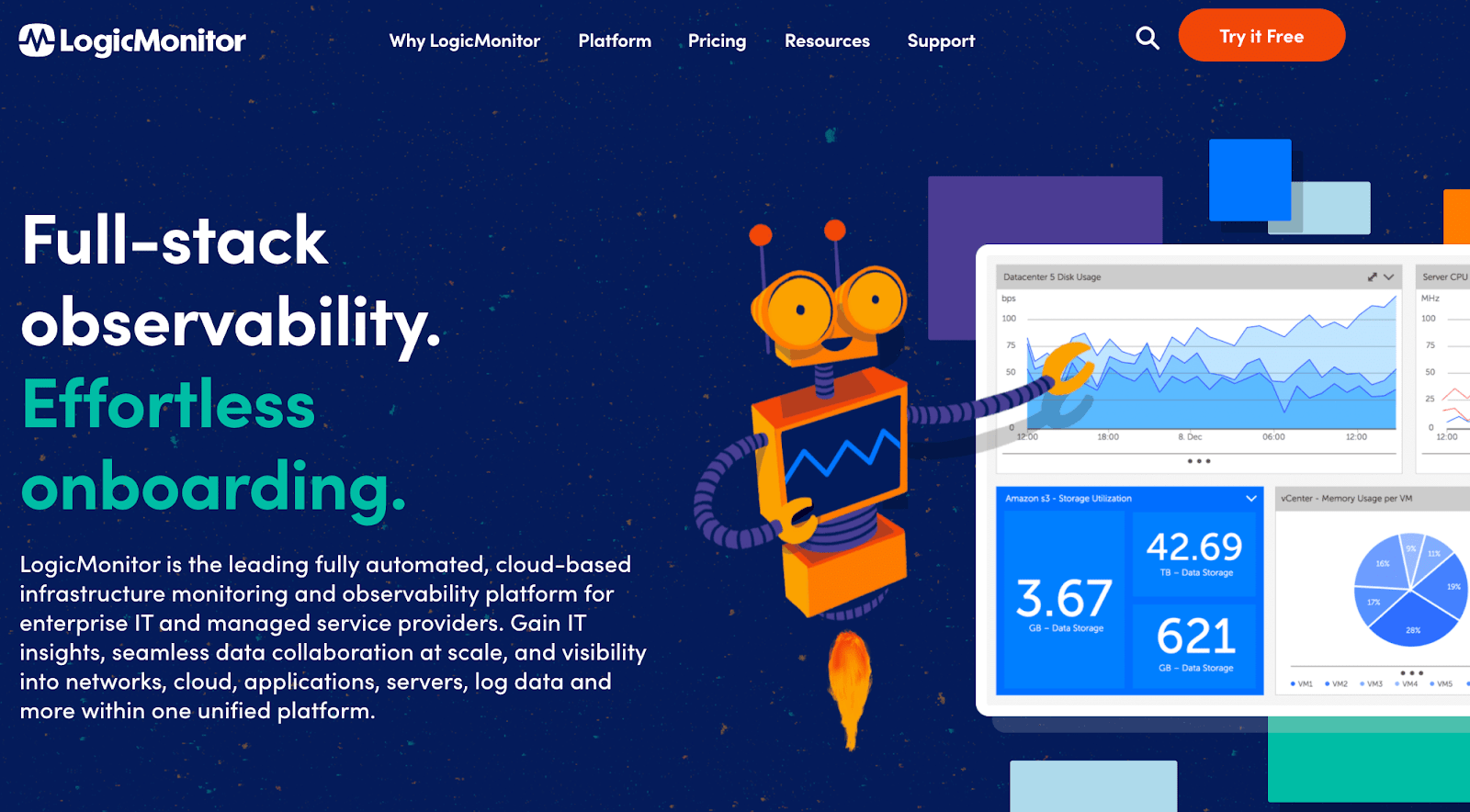 LogicMonitor’s log visualisation tool is suitable for analysing and alerting upon many log files for a variety of sources including OS, MySQL and Tomcat logs. The platform caters to both MSPs & enterprise-level customers by offering fully automated hybrid monitoring for complex IT environments.
LogicMonitor’s log visualisation tool is suitable for analysing and alerting upon many log files for a variety of sources including OS, MySQL and Tomcat logs. The platform caters to both MSPs & enterprise-level customers by offering fully automated hybrid monitoring for complex IT environments.
Key Features:
- Configuration monitoring
- Database monitoring
- Monitor 199 devices
- Dashboards
60. LogPoint
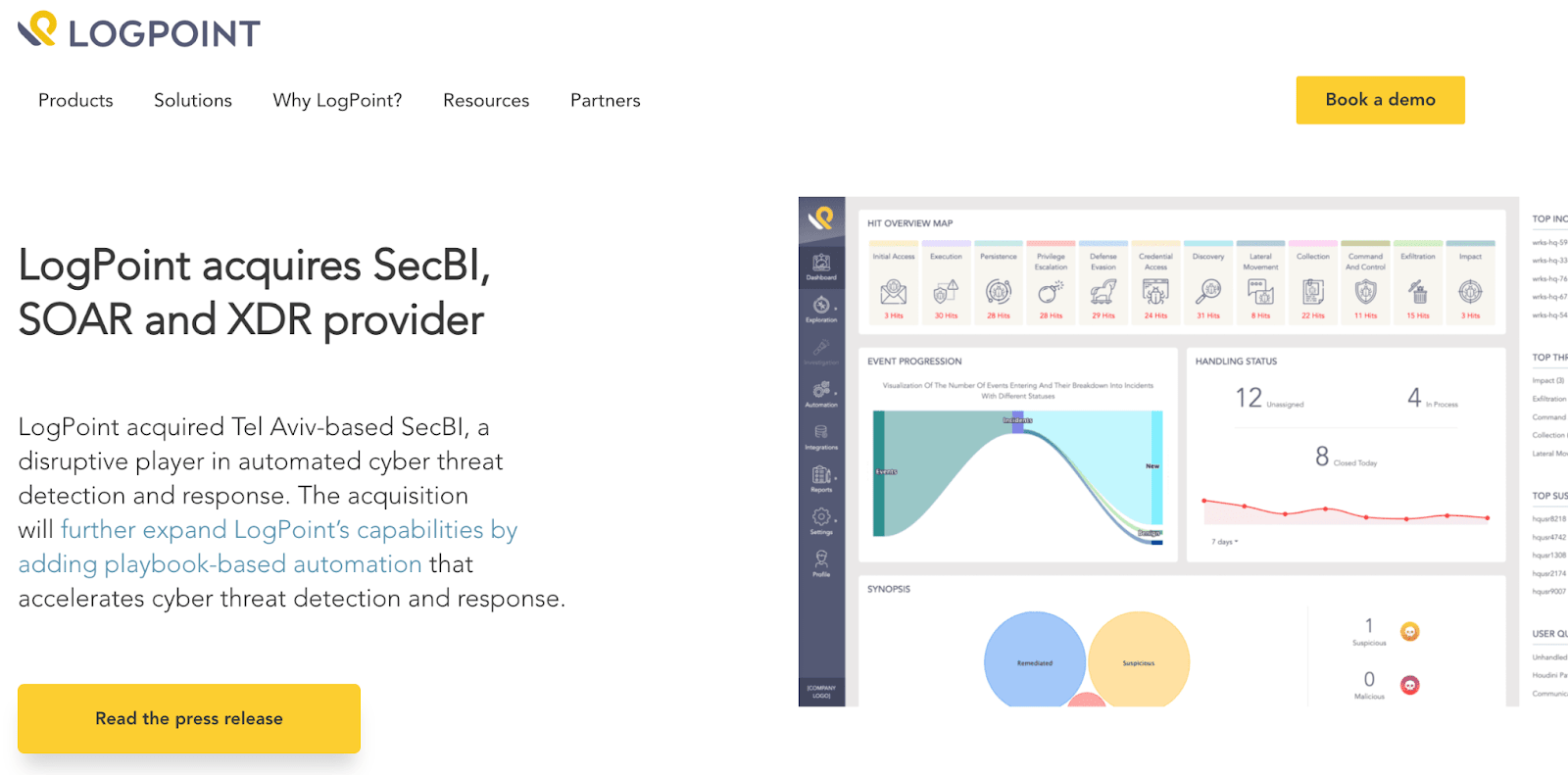 The LogPoint log tool offers centralised risk management features and can also be used as a SIEM solution for the early detection of suspected breaches. LogPoint’s recent technology acquisitions signify a move to add further functionality and features to their continuously evolving platform.
The LogPoint log tool offers centralised risk management features and can also be used as a SIEM solution for the early detection of suspected breaches. LogPoint’s recent technology acquisitions signify a move to add further functionality and features to their continuously evolving platform.
Key Features:
- Log aggregation
- Community support
- Unlimited users
- SIEM
Summary Table
| Tool | Key Features | Strengths | Limitations | Ideal For | Pricing / Free Trial |
|---|---|---|---|---|---|
| Logit.io | Overusage protection, 2FA | Easy setup, scalable | Subscription cost | DevOps, SRE teams | 14-day free trial |
| Scalyr | No query expertise, fast search | Easy to use, fast data | Automated billing issues | Engineers | Paid, usage-based billing |
| Splunk | Monitoring, alerts, compliance | Comprehensive features | Expensive | Enterprise users | Paid, free trial available |
| Datadog | Profiling, alerting, CI visibility | Real-time debugging | High cost | Developers, IT pros | Paid, free trial available |
| Sumo Logic | Queries, streaming, analytics | Strong querying, support | Data ingestion delay | Enterprises | Paid, free trial available |
| Middleware | Log collection, custom alerts | Free developer account | Monthly limits on free plan | Small to medium businesses | Free developer account |
| Retrace by Stackify | Combines APM and logs | Proactive monitoring | High cost | Engineers | Paid, free trial available |
| Logz.io | Parsing, aggregation, dashboards | Scalable, pre-built | Slower performance | Enterprises | Paid, free trial available |
| Log Harvestor | Multi-user, alerting | User-friendly, support | Limited features | Small businesses | Free, paid plans available |
| Backtrace | Deduplication, CLI access | Game developer focus | High cost | Game developers | Paid, free trial available |
| Dockter | Aggregation, GUI | Docker-specific, low-overhead | Limited to Docker | Docker users | Free, open-source |
| Elysium Analytics | Search, data collection, alerting | Data compression, structured | High cost | DevOps, IT-Ops, SecOps | Paid, free trial available |
| Humio | Storage optimization, ingestion | Large-scale logging | Expensive | Enterprise users | Paid, free trial available |
| Bulletlog | Integrations, error traceback | Data unification, support | Limited to error tracking | Developers | Paid, free trial available |
| Zebrium | RBAC, ML-based structuring | Anomaly detection, on-premise | Expensive | Enterprises | Paid, free trial available |
| Netwitness | Log monitoring, compliance | SIEM, forensics tool | Complex setup | Enterprises | Paid, free trial available |
| Exambeam | Natural querying, unlimited logs | SIEM, threat detection | High cost | Enterprises | Paid, free trial available |
| ALog ConVerter | Archiving, server monitoring | Agentless, easy server log | Limited to server logs | IT admins | Paid, free trial available |
| Motadata | Multi-cloud monitoring, insights | Actionable insights | Limited features | Enterprises | Paid, free trial available |
| CloudPhysics | Knowledgebase, data feeds | Datacenter analytics | High cost | Enterprises | Paid, free trial available |
| Corner Bowl | Compliance reports, Azure AD | Multiple support options | High cost | IT admins | Paid, free trial available |
| Blesk | Port mirroring, reports | ITSM suite, on-premise | High system requirements | Enterprises | Paid, free trial available |
| Wrble | Data ingestion, querying | Ingest data from various | Limited API on basic plan | Small to medium businesses | Paid, free trial available |
| i-Vertix | ETL, log normalization | Real-time analysis | High cost | IT admins | Paid, free trial available |
| LogFusion Pro | Custom logging, highlighting | Real-time log management | High cost | IT professionals | Paid, free trial available |
| Logiq.ai | Threat patterns, visualization | Large-scale ingestion | Expensive | Enterprises | Paid, free trial available |
| Papertrail | Access control, archiving | Cloud-based, seamless | Expensive | Sysadmins, DevOps | Paid, free trial available |
| Logtail | SQL-compatible, dashboards | SQL querying, easy setup | Newer platform | Developers | Paid, free trial available |
| Graylog | Collector configuration, SIEM | Established, open-source | Complex setup | Sysadmins | Free, paid plans available |
| dbForge | Rollback transactions, recovery | SQL logs, user-friendly | Limited to SQL logs | Database admins | Paid, free trial available |
| Devo | Cloud-native logging, detection | High performance, NIST | Expensive | Cybersecurity pros | Paid, free trial available |
| Exceptionless | Error reporting, grouping | Easy setup, live events | Limited to error tracking | Developers | Free, paid plans available |
| FrameFlow | Health monitoring, SNMP browser | IT asset observability | High cost | IT leaders | Paid, free trial available |
| Observe | Structured logging, worksheets | Intuitive dashboard | Expensive | Enterprises | Paid, free trial available |
| LogRhythm | Compliance, fast indexing | Scale data collection | Expensive | Enterprises | Paid, free trial available |
| Logary | Metric and log analysis, F# code | Open-source, flexible | Limited to F# and .Net | F# and .Net developers | Free, open-source |
| Loggly | Centralized logs, summaries | Integrations, easy setup | Expensive | Developers, Sysadmins | Paid, free trial available |
| Cloudlytics | Cloud-agnostic, dashboards | AWS, GCP, and Azure | Limited features | Enterprises | Paid, free trial available |
| SenseLogs | CloudWatch viewer, fast log library | Serverless logging, TS | Limited to NodeJS | NodeJS developers | Free, open-source |
| Syslog-ng | Tamper-proof storage, SIEM | Open-source, rapid search | Complex setup | Sysadmins, IT pros | Free, open-source |
| XpoLog | Data enrichment, anomaly detection | AI/ML optimization, SIEM | Expensive | Enterprises | Paid, free trial available |
| Webspy Vantage | Automated reports, SFTP | Customizable reports | Expensive | Enterprises | Paid, free trial available |
| SolarWinds Log Analyzer | Monitoring, analysis | IT monitoring | Expensive | IT professionals | Paid, free trial available |
| GoAccess | Minimal config, dashboards | Open-source, free | Requires in-house hosting | Small businesses | Free, open-source |
| Seagence | Source integrations, detect defects | Modern defect monitoring | Limited to defect tracking | Developers | Paid, free trial available |
| Rookout | Dynamic observability, Git | Intuitive, log filtering | Expensive | Developers | Paid, free trial available |
| Rapid7 | Vulnerability management | Easy setup, logging | Expensive | Security pros | Paid, free trial available |
| ERA Search | Schema-less storage, scaling | Cloud-focused, configurable | Expensive | Enterprises | Paid, free trial available |
| Chaossearch | Data retention, Kubernetes | Open-source, BI | Expensive | Enterprises | Paid, free trial available |
| ObservIQ | Data integrations, live tail | Fast setup, transparent | Expensive | Developers | Paid, free trial available |
| Apex Software | Alerting, unlimited retention | Rich queries, structured | No hosting | IT professionals | Paid, free trial available |
| LogDNA | Retention, streaming | Integrations, insights | Expensive | Developers, IT pros | Paid, free trial available |
| New Relic | Anomaly detection, checks | Integrations, experience | Expensive | Enterprises | Paid, free trial available |
| WhatsUp Gold | Log status, alerting, archiving | Compliance archiving | Expensive | IT professionals | Paid, free trial available |
| Clone Systems | Storage, real-time search | Fast aggregation, UI | Expensive | IT professionals | Paid, free trial available |
| Snare Solutions | Compliance reporting, centralized | Out-of-the-box compliance | Expensive | MSPs, tech consultants | Paid, free trial available |
| LanScopeCat | Application usage, activity report | Detailed event data | Limited to operations logs | IT professionals | Paid, free trial available |
| InTrust | User activity, centralize logs | Event log management | Expensive | IT admins | Paid, free trial available |
| LogicMonitor | Services monitoring, dashboards | Automated hybrid monitoring | Expensive | MSPs, enterprise customers | Paid, free trial available |
| LogPoint | Data source integration, SIEM | Breach detection, support | Expensive | Enterprises | Paid, free trial available |
If you're interested in finding out more about Log Management from Logit.io, don't hesitate to get in touch or begin exploring yourself with a 14-day free trial.
If you enjoyed this guide then why not check out our blog on open source SIEM or our blog all about Elasticsearch interview questions next?
